Alex Adjei, MD, PhD, FACP
Chairman, Cleveland Clinic Taussig Cancer Institute, Cleveland, OH
Douglas Adkins, MD
Professor of Medicine, Director, Section of Head and Neck and Thyroid Medical Oncology, Division of Medical Oncology, Washington University School of Medicine, St. Louis, MO
Laura Alder, MD
Assistant Professor of Medicine, Division of Medical Oncology, Department of Medicine, Duke University Medical Center, Durham, NC
Haniel A. Araujo, MD
Assistant Professor, Department of Thoracic/Head and Neck Medical Oncology, The University of Texas MD Anderson Cancer Center, Houston, TX
Leah M. Backhus, MD, MPH, FACS
Thelma and Henry Doelger Professor of Cardiovascular Surgery, Director, Faculty Development, Associate Program Director, Thoracic Surgery Residency Program, Department of Cardiothoracic Surgery, Stanford University, Section Chief Thoracic Surgery, VA Palo Alto Health Care System, Palo Alto, CA
Ani S. Balmanoukian, MD
Director of Thoracic Oncology at, The Angeles Clinic and Research Institute, a Cedars-Sinai Affiliate, Tarzana, CA
Dhruv Bansal, MD, MBA
Assistant Professor, Northshore Department of Medicine,, University of Chicago, Chicago, IL
George R. Blumenschein, MD
Professor of Medicine, Department of Thoracic-Head & Neck Medical Oncology, Division of Cancer Medicine, The University of Texas MD Anderson Cancer Center, Houston, TX
Julie Brahmer, MD, MSc
Professor of Oncology,Co-Director of the Upper, Aerodigestive Department, Co-Director, Cancer Immunology Program, Director, Thoracic Oncology, Bloomberg~Kimmel Institute for Cancer, Immunotherapy, Johns Hopkins Medicine, Baltimore, MD
Jeremy Paul Cetnar, MD, MSHPR
Associate Professor, Knight Cancer Institute, Oregon Health & Science University, Portland, Oregon
Joseph M. Chan, MD, PhD
Assistant Attending Physician, Department of Medicine, Thoracic Oncology Service, Assistant Member, Human Oncology & Pathogenesis Program, Memorial Sloan Kettering Cancer Center, New York, NY
Alberto Chiappori, MD
Senior Member of Oncology and Medicine, Thoracic Oncology Program, H. Lee Moffitt Cancer Center and Research Institute, Tampa, FL
Jeffrey Melson Clarke, MD
Associate Professor of Medicine, Member of the Duke Cancer Institute, Department of Medicine, Duke University School of Medicine, Durham, NC
A. Dimitrios Colevas, MD
Professor of Medicine (Oncology), Professor (By courtesy), Otolaryngology (Head and Neck Surgery), Professor (By courtesy), Radiation Oncology – Radiation Therapy, Stanford University, Stanford, CA
Angelica D’Aiello, MD
Assistant Professor of Oncology, Montefiore Medical Park at Eastchester, 1695 Eastchester Road, Bronx, NY
Millie (Roy) Das, MD
Clinical Professor, Department of Medicine, Stanford University School of Medicine, Stanford CA
Sid Devarakonda, MBBS, MD
Director, Thoracic Medical Oncology, Swedish Cancer Institute, Paul G. Allen Research Center, Associate Professor, Elson S. Floyd School of Medicine, Washington State University, Seattle, WA
Jonathan Dowell, MD
Professor, UT Southwestern Medical Center, Hematology/ Oncology Division, Dallas, TX
Shirish Madhav Gadgeel, MD
Chief of Division of Hematology & Oncology, Associate Director, Medical Oncology, Henry Ford Cancer, Institute, Department of Internal Medicine, Henry Ford Hospital, Detroit, MI
Christine A. Garcia, MD, MPH
Assistant Professor of Medicine, Director of Hematology & Oncology Fellowship Program, Director of Quality and Patient Safety, Thoracic Oncology & Benign Hematology, Division of Hematology and Medical Oncology, Weill Cornell Medicine, New York, NY
Maura L. Gillison, MD, PhD
Professor of Medicine, Department of Thoracic/Head and Neck Medical Oncology, Division of Cancer Medicine, The University of Texas MD Anderson Cancer Center, Houston, TX
Ramaswamy Govindan, MD
Professor of Medicine, Anheuser Busch Chair in Medical Oncology, Director, Section of Medical Oncology, Division of Oncology, Washington University School of Medicine, St. Louis, MO
David H. Harpole, Jr, MD
Professor of Surgery and Pathology, George Barth Geller Endowed Professor for Research in Cancer, Division of Thoracic Surgery, Department of Surgery, Duke University Medical Center, Chief of Cardiothoracic Surgery, Durham Veterans Affairs Medical Center, Durham, NC
John Heymach, MD, PhD
Chair; Professor, David Bruton, Jr Chair in Cancer Research, Department of Thoracic/Head and Neck Medical Oncology, Division of Cancer Medicine, The University of Texas MD Anderson Cancer Center, Houston, TX
Chris Holsinger, MD, FACS
Professor of Otolaryngology – Head & Neck Surgery, Stanford University, Affiliated Faculty, Center for Artificial Intelligence in, Medicine and Imaging, Member, Stanford Cancer Institute, Palo Alto, CA
Robert Hsu, MD
Assistant Professor of Clinical Medicine, Department of Internal Medicine, Division of Medical Oncology, University of Southern California/Norris Comprehensive Cancer Center, Los Angeles, California
Puneeth Iyengar, MD, PhD
Director, Metastatic Program, Department of Radiation Oncology, Memorial Sloan Kettering Cancer Center, New York, NY
Hari B. Keshava, MD MS FACS
Assistant Clinical Professor of Surgery, Thoracic Surgery, Division of Thoracic Surgery, Department of Surgery, University of California, Irvine — School of Medicine, Orange, CA
Chul Kim, MD
Associate Professor, Georgetown University, Attending Physician, MedStar Georgetown University Hospital, Washington, DC
Robert Kratzke, MD
Professor of Medicine, John Skoglund Chair in Lung Cancer, University of Minnesota Medical School, University of Minnesota, Minneapolis, MN
Corey J. Langer, MD, FACP
Director of Thoracic Oncology, Abramson Cancer Center, Professor of Medicine, Perelman School of Medicine, University of Pennsylvania, Philadelphia, PA
Xiuning Le, MD, PhD
Associate Professor, Department of Thoracic/Head and Neck Medical Oncology, Division of Internal Medicine, The University of Texas MD Anderson Cancer Center, Houston, TX
Natasha Leighl, MD, MMSc, FRCPC, FASCO
Lead Medical Oncologist, Clinician Investigator, Clinical Research Unit (CCRU), Princess Margaret Cancer Centre Professor, Department of Medicine University of Toronto, Toronto, ON
Jessica Lin, MD
Associate Professor, Medicine, Harvard Medical School, Clinical Assistant in Medicine, Hematology/Oncology, Massachusetts General Hospital, Boston, MA
Jennifer Marks, MD
Instructor in Medicine, Harvard Medical School, Affiliate Staff, Brigham and Women’s Hospital, Medical Oncologist, Dana-Farber Cancer Institute, Lowe Center for Thoracic Oncology, Boston, MA
Nitin Ohri, MD, MS
Professor, Radiation Oncology, Montefiore Einstein, Bronx, NY
Kelsey Pan, MD, MPH
MD Anderson Chief Fellow of Education, Hematology/Oncology Fellow, PGY-6, Division of Cancer Medicine, MD Anderson Cancer Center, Houston, TX
Cathleen Park, MD
Assistant Clinical Professor (Thoracic Oncology), Division of Hematology/Oncology, University of California Irvine Health, Orange, CA
Sandip P. Patel, MD
Professor, Member, Thoracic Oncology, Cancer Immunotherapy Programs, Department of Medicine, Division of Hematology/Oncology, UC San Diego Moores Cancer Center, La Jolla, CA
Shetal A. Patel, MD, PhD
Assistant Professor, Division of Oncology, University of North Carolina at Chapel Hill , Lineberger Comprehensive Cancer Center, Chapel Hill, NC
Carolyn J. Presley, MD MHS
Associate Professor with Tenure, Section Chief Thoracic Medical Oncology, Thoracic Oncology/Geriatric Oncology, Co-Director of the Cancer and Aging Resiliency (CARE) Clinic, Associate Medical Director of the Oncogeriatrics Program, The Ohio State University Comprehensive Cancer Center, The James Cancer Hospital/Solove Research Institute, Columbus, OH
Suresh Ramalingam, MD, FACP, FASCO
Professor, Department of Hematology and Medical OncologyRoberto C. Goizueta Distinguished Chair for Cancer Research, Winship Cancer Institute, Emory University, School of Medicine, Atlanta, GA
Estelamari Rodriguez, MD, MPH
Clinical Research Lead Thoracic Site Disease Group, Associate Director for Community Outreach, Sylvester Comprehensive Cancer Center, University of Miami Miller School of Medicine, Aventura, FL
Anjli Rohatgi, MD, PhD
Assistant Professor, Medicine, Division of Internal Medicine, Section of Medical Oncology, Washington University, St. Louis, MO
Logan N. Roof, MD, MS
Assistant Professor, Thoracic Medical Oncology, The Ohio State University Comprehensive Cancer Center, Columbus, Ohio
Ari J. Rosenberg, MD
Assistant Professor of Medicine, Section of Hematology/Oncology, Department of Medicine, University of Chicago, Chicago, IL
Samuel S. Rosner, MD
Assistant Professor of Medicine, Marlene & Stewart Greenebaum Cancer Center, University of Maryland, Baltimore, MD
Julia Rotow, MD
Medical Oncologist, Dana-Farber Cancer Institute , Lowe Center for Thoracic Oncology , Assistant Professor of Medicine, Harvard Medical School, Boston, MA
Nabil Saba, MD, FACP
Professor and Vice Chair for Quality and Safety, Department of Hematology and Medical Oncology, Emory University School of Medicine, Co-Director, Head and Neck Cancer, Multidisciplinary Program, Winship Cancer Institute of Emory University, Atlanta, GA
Joshua K. Sabari, MD
Assistant Professor, Department of Medicine , NYU Grossman School of Medicine, NYU Langone Health, Director, High Reliability Organization Initiative, Perlmutter Cancer Center, New York, NY
Jacob Sands, MD
Assistant Professor, Medicine, Harvard Medical School, Physician, Thoracic Oncology, Dana-Farber Cancer Institute, Boston, MA
Ashish Saxena, MD, PhD
Associate Professor of Clinical Medicine, Weill Cornell Medical College, New York, NY
Jaime Schneider, MD, PhD
Attending Physician, Center for Thoracic Cancers, MGH Cancer Center, Assistant in Medicine, Massachusetts General Hospital, Instructor in Medicine, Harvard Medical School, Boston, MA
Kasmintan (Intan) Schrader, MBBS, FRCPC, PhD, DABMG
Assistant Professor, Department of Medical Genetics, The University of British Columbia, Program Medical Co-Director Hereditary Cancer, BC Cancer, Vancouver, BC, Canada
Eric Kumar Singhi, MD
Assistant Professor, General Oncology, Assistant Professor, Thoracic/Head and Neck Medical Oncology, The University of Texas MD Anderson Cancer Center, Houston, TX
Ferdinandos Skoulidis, MD, PhD, MRCP
Associate Professor, Department of Thoracic/Head and Neck Medical Oncology, The University of Texas MD Anderson Cancer Center, Houston, TX
Fangdi Sun, MD
Fellow, Hematology & Medical Oncology, Stanford University School of Medicine, Stanford, CA
Salomon Tendler, MD, PhD
Advanced Medical Oncology Fellow & Research Associate, Memorial Sloan Kettering Cancer Center, New York, NY
Ana I. Velázquez Mañana, MD, MSc, FASCO
Assistant Professor of Medicine | UCSF Division of Hematology/Oncology at ZSFG , Assistant Director of DEIA for Training | UCSF Helen Diller Family Comprehensive Cancer Center, John A. Watson Scholar, University of California, San Francisco, San Francisco, CA
Ming Sound Tsao, MD, FRCPC, FRSC, FCAHS
Senior Scientist and Consultant Thoracic Pathologist, University Health Network, Princess, Margaret Cancer Centre, Professor of Laboratory Medicine and Pathobiology, Professor of Medical Biophysics, University of Toronto, Toronto, ON
Rajwanth Veluswamy, MD
Associate Professor of Medicine, Perlmutter Cancer Center, NYU Langone Health, New York, NY
Mitchell von Itzstein, MD
Assistant Professor, Department of Internal Medicine, Division of Hematology and Oncology, UT Southwestern Medical Center, Dallas, TX
Heather Wakelee, MD, FASCO
Winston Chen and Phyllis Huang Professor, Professor of Medicine/Chief-Division of Oncology, Stanford University School of Medicine, Deputy Director, Stanford Cancer Institute, Past President, International Association for the , Study of Lung Cancer (IASLC), Stanford, CA
Frank Weinberg, MD, PhD
Assistant Professor, Department of Medicine, Division of Hematology and Oncology, University of Illinois College of Medicine, Chicago, IL
Frederick Wilson, MD, PhD
Assistant Professor of Medicine, Yale School of Medicine, Yale University, New Haven, CT
Francis Paul Worden, MD
Clinical Professor, Endocrine Oncology Clinic, Roger Cancer Center, University of Michigan Health, Ann Arbor, MI
John Wrangle, MD, MPH
Associate Professor, MUSC Hollings Cancer Center, Medical University of South Carolina, Charleston, SC
Evan Wu, MD PhD
Director of Thoracic Oncology, Hawaii Pacific Health, Assistant Professor, Translational and Clinical Research Program, University of Hawaii Cancer Center, Hawaii, HI
Jia Wu
Associate Professor, Department of Thoracic-Head & Neck Medical Oncology, Division of Diagnostic Imaging, Associate Professor, Department of Imaging Physics, The University of Texas MD Anderson Cancer Center, Houston, Texas
Jianjun Zhang, MD, PhD
Professor, Department of Thoracic/Head and, Neck Medical Oncology, Professor, Department of Genomic Medicine, Division of Cancer Medicine, The University of Texas MD Anderson Cancer Center, Houston, TX
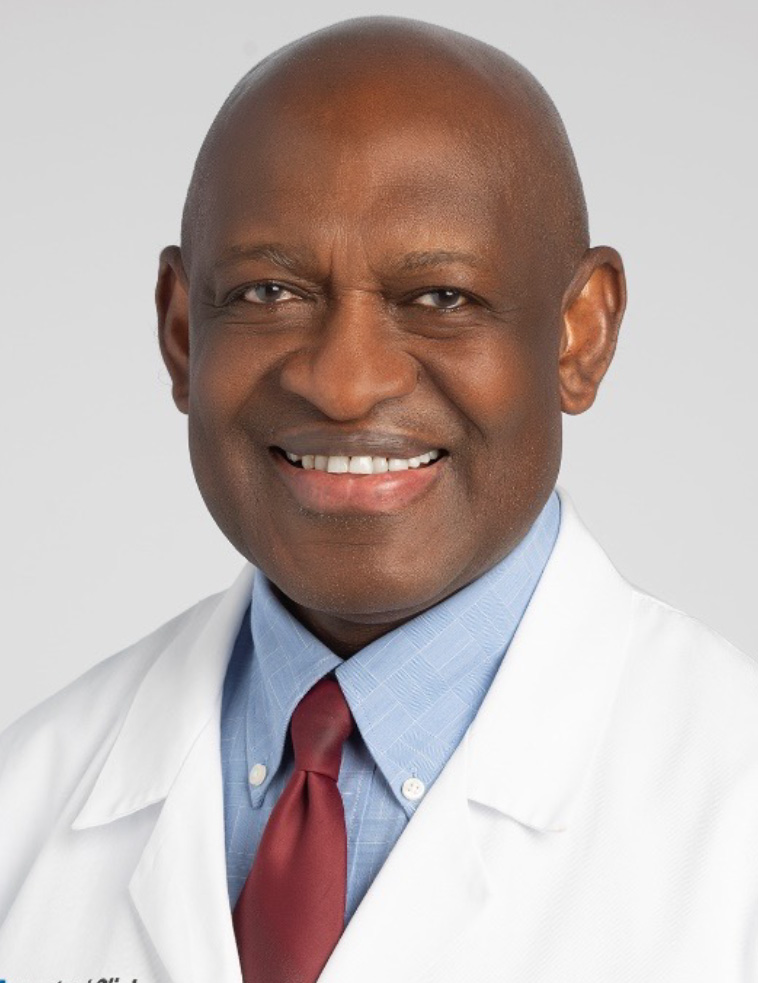
Alex Adjei, MD, PhD, FACP
Chairman Cleveland Clinic Taussig, Cancer Institute, Cleveland, OH
Alex Adjei, MD, PhD, is the new Chair of Cleveland Clinic Taussig Cancer Institute. Previously, he served as Consultant in Oncology, Professor of Oncology and Professor of Pharmacology at Mayo Clinic and Mayo Clinic College of Medicine and Science in Rochester, Minnesota. Dr. Adjei also oversaw oncology drug development, as well as lung cancer research and treatment across various Mayo Clinic sites. Additionally, he co-led the developmental therapeutics program at Mayo Clinic Cancer Center. Throughout his career, Dr. Adjei has focused his research on experimental therapeutics, regulatory science, and clinical drug development. His other research interests include health disparities, global oncology, new drug treatments for lung cancer, and the varying effects of drug toxicities. A multidisciplinary team of clinical and translational researchers under Dr. Adjei’s leadership has evaluated new drug therapies for solid tumors and hematologic malignancies.
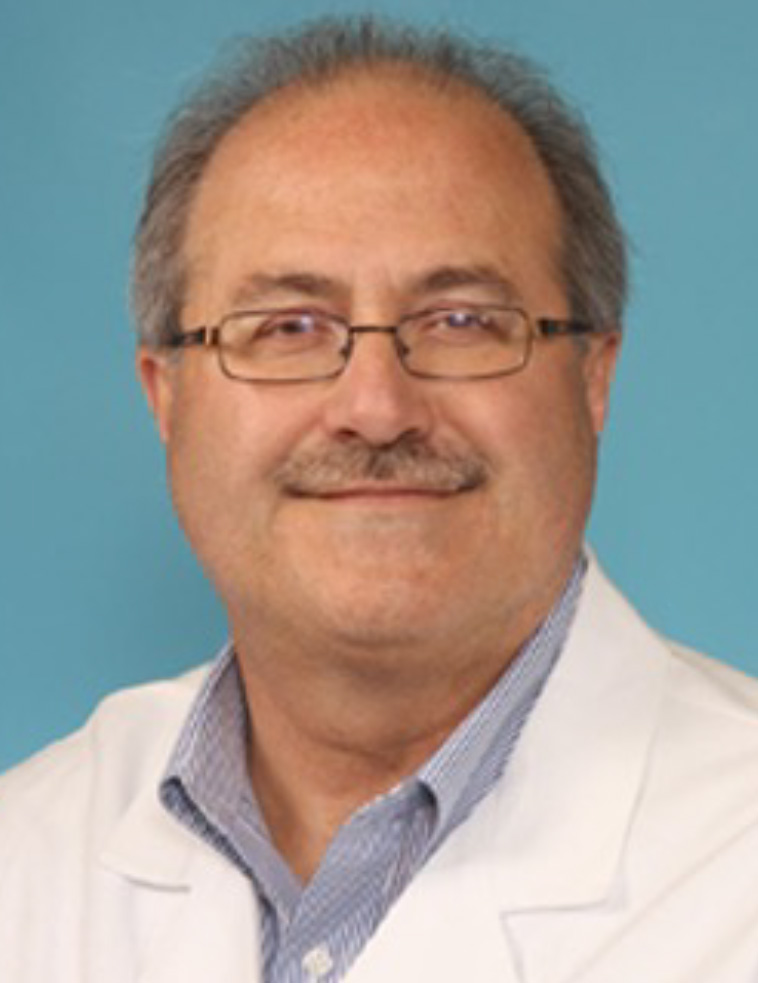
Douglas Adkins, MD
Professor of Medicine, Director, Section of Head and Neck and Thyroid Medical Oncology, Division of Medical Oncology, Washington University School of Medicine, St. Louis, MO
Dr. Douglas Adkins’ research focuses on developing improved therapeutics for patients with locally advanced (LA) and recurrent or metastatic (RM) head and neck squamous-cell carcinoma (HNSCC). He is a clinician-investigator with over 30 years of experience in clinical trials and drug development. Major themes of his investigator-initiated research program includes evaluation of inhibitors of CDK4/6, VEGF(R), PD-1, and PARP, and evaluation of nanoparticle albumin-bound paclitaxel. In collaboration with his colleagues in radiation oncology and otolaryngology, they are also evaluating strategies to de-intensify chemo-radiation therapy for LA human papillomavirus-positive oropharynx cancer.
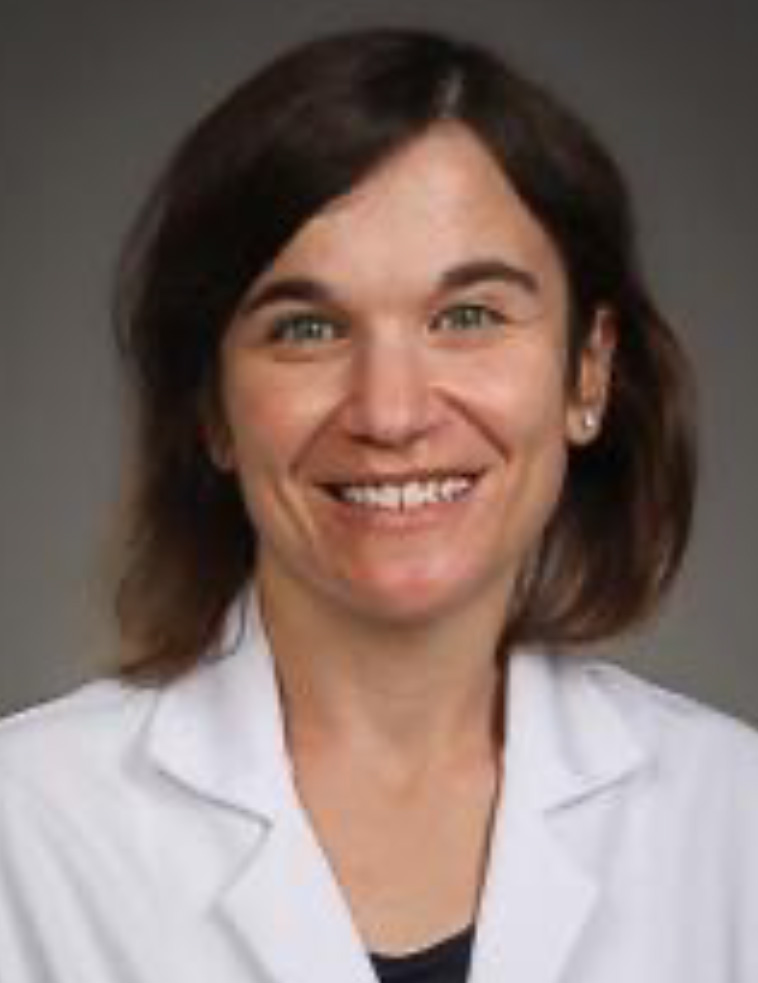
Laura Alder, MD
Assistant Professor of Medicine, Division of Medical Oncology, Department of Medicine, Duke University Medical Center, Durham, NC
Dr Laura Alder is thoracic medical oncologist at the Duke Cancer Center in Durham, North Carolina. She is the Deputy Medical Director of the Duke Center for Brain and Spine Metastasis and works to expand trial and treatment options for patients suffering CNS involvement. Her clinical interests include advancing treatments and improving outcomes for all stages of lung cancer. To this end she also serves on the Duke Phase One Clinical Trials program. Dr Alder is passionate about optimal personalized patient care, advancing clinical trials, and strengthening medical education.
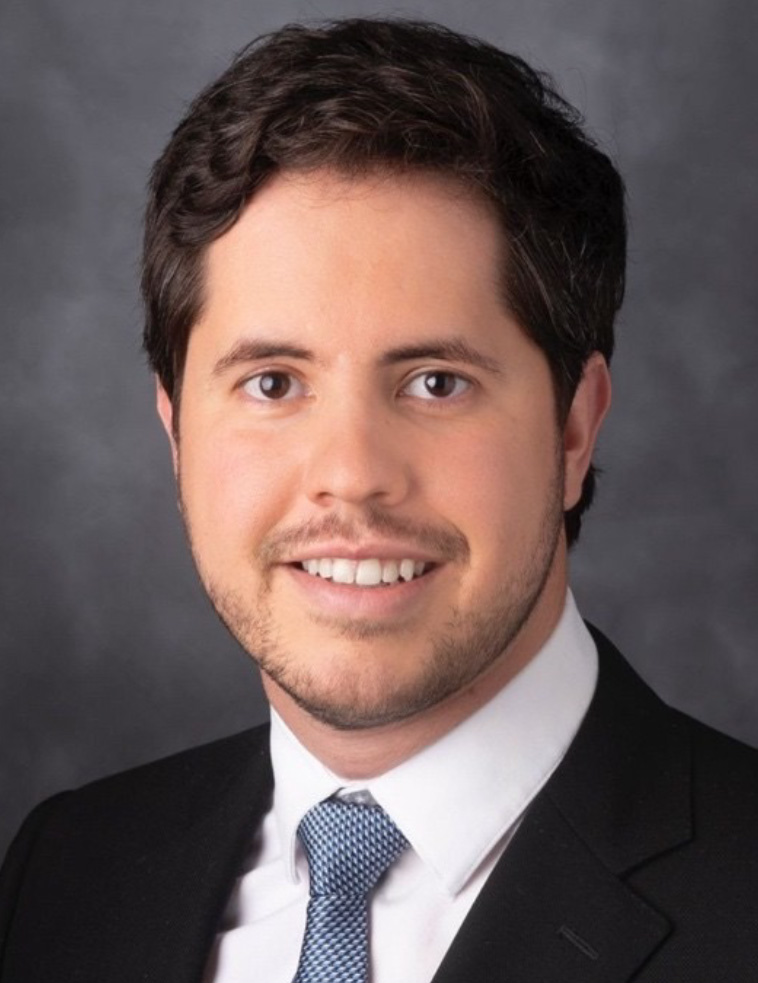
Haniel A. Araujo, MD
Assistant Professor, Department of Thoracic/Head and Neck Medical Oncology, The University of Texas MD Anderson Cancer Center, Houston, TX
Dr. Haniel Araujo is Assistant Professor at the Department of Thoracic/Head and Neck Medical Oncology, the University of Texas MD Anderson Cancer Center. He completed his MD, Residency in Internal Medicine and Fellowship in Medical Oncology from Universidade de São Paulo. He then did Clinical Fellowship in Thoracic and Head and Neck Medical Oncology. Dr. Araujo has research interest in understanding mechanisms of response and tolerance to active RAS inhibition in KRAS-mutant non-small cell lung cancer.
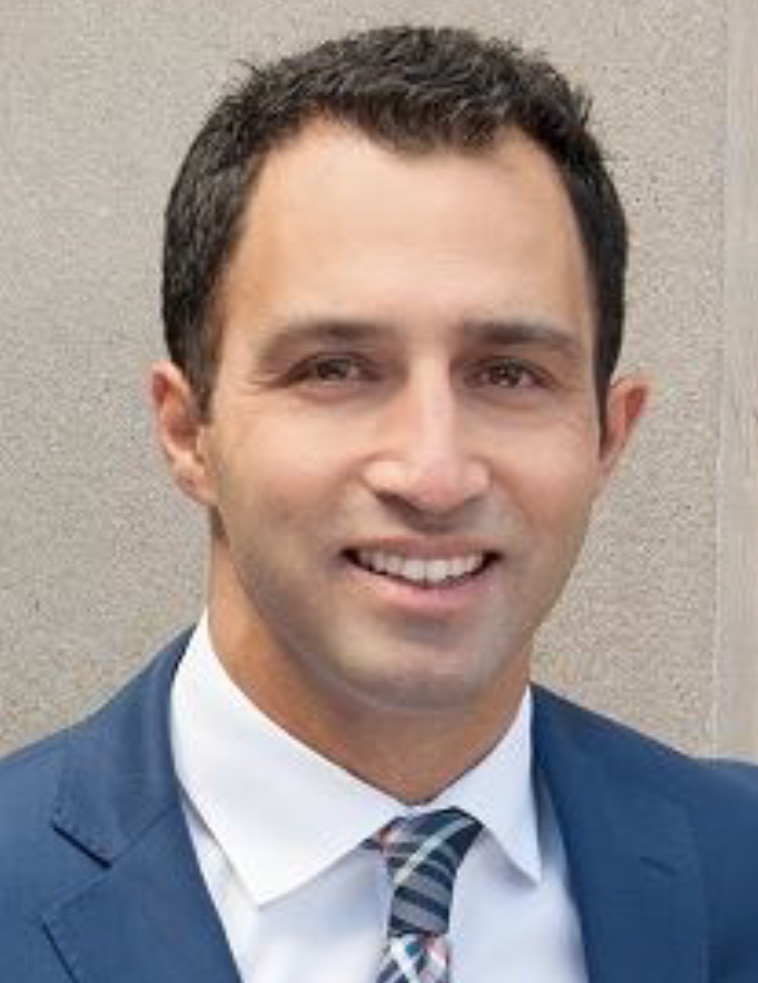
Arya Adjei, MD
Associate Professor, Chief of Thoracic Radiotherapy, City of Hope, National Cancer Center, Department of Radiation Oncology, Duarte, CA
Dr. Arya Amini is an Associate Professor in the Department of Radiation Oncology and Chief of Thoracic Radiotherapy at City of Hope with the responsibility of leading the main center and community network in up to date treatment management and research in lung, skin and head and neck cancer. He has multiple leadership responsibilities at national cooperative groups and societies including ASTRO, SWOG, and ACR. His research has led to over 200 published manuscripts in peer-reviewed journals and has several ongoing trials in lung cancer with the support of multiple grants.Arya Adjei, MD Associate Professor Chief of Thoracic Radiotherapy City of Hope National Cancer Center Department of Radiation Oncology Duarte, California Dr. Arya Amini is an Associate Professor in the Department of Radiation Oncology and Chief of Thoracic Radiotherapy at City of Hope with the responsibility of leading the main center and community network in up to date treatment management and research in lung, skin and head and neck cancer. He has multiple leadership responsibilities at national cooperative groups and societies including ASTRO, SWOG, and ACR. His research has led to over 200 published manuscripts in peer-reviewed journals and has several ongoing trials in lung cancer with the support of multiple grants.
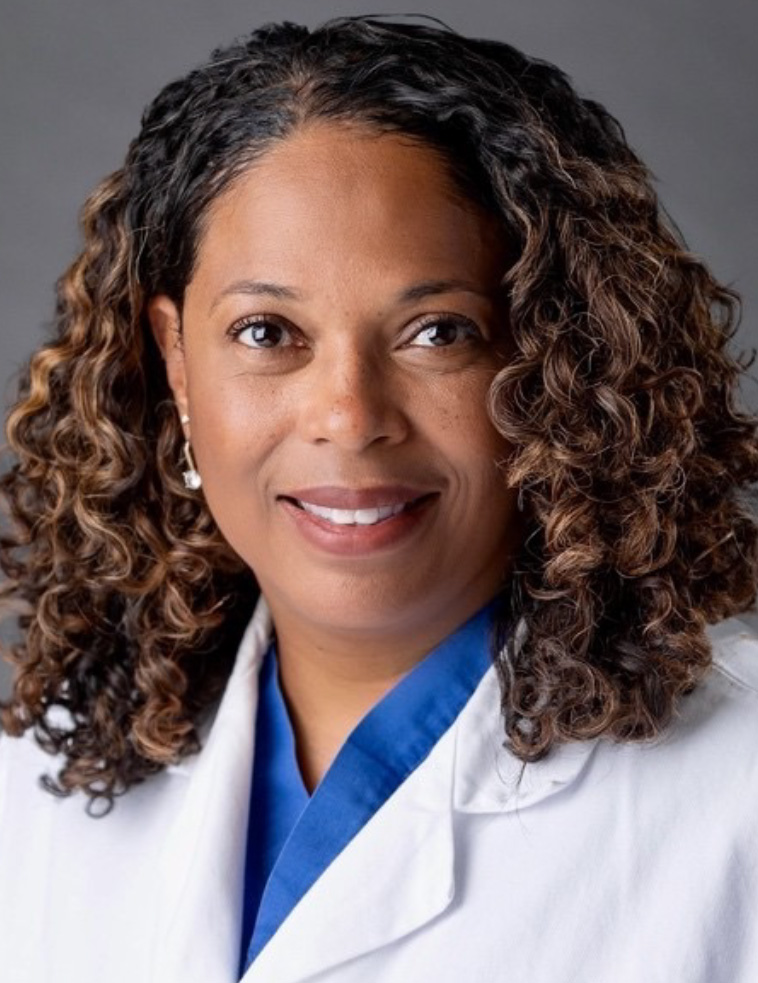
Leah M. Backhus, MD, MPH, FACS
Thelma and Henry Doelger, Professor of Cardiovascular, Surgery Director, Faculty Development, Associate Program Director, Thoracic Surgery Residency Program, Department of Cardiothoracic Surgery, Stanford University, Stanford, CA
Leah Backhus MD MPH FACS is the Thelma and Henry Doelger Professor in the Department of Cardiothoracic Surgery at Stanford University. She trained in general surgery at the University of Southern California and cardiothoracic surgery at the University of California Los Angeles. She practices at Stanford Hospital and is Chief of Thoracic Surgery at the VA Palo Alto. Her surgical practice consists of general thoracic surgery with special emphasis on thoracic oncology and minimally invasive surgical techniques. She heads up the Thoracic Surgical Health Services Research group in the Division of Thoracic Surgery, and has grant funding through the Veterans Affairs Administration with a VA Merit Award and is Co-PI on an NIH RO1 translational study examining diaphragm dysfunction among esophagectomy patients. She is a Charter Member Reviewer for Imaging Guided Interventions and Surgery (IGIS) study section in the NIH. Her current research interests are in cancer surveillance and survivorship care in evaluating needs, quality of life, and adherence to national standards of care. She is a member of the National Lung Cancer Roundtable of the American Cancer Society and has served as a professional member of the Patient Centered Outcomes Research Institute (PCORI) Advisory Panel on Improving Healthcare Systems. She is a member of the American Association for Thoracic Surgery and sits on the Board of Directors of the Society of Thoracic Surgeons (STS). As an educator, Dr. Backhus is the Associate Program Director for the Stanford Thoracic Track Residency program and prior Chair of the ACGME Review Committee for Thoracic Surgery. She is also the recipient of national awards in teaching by the Thoracic Surgery Residents Association and excellence in her field with the STS Extraordinary Women in Cardiothoracic Surgery Award.
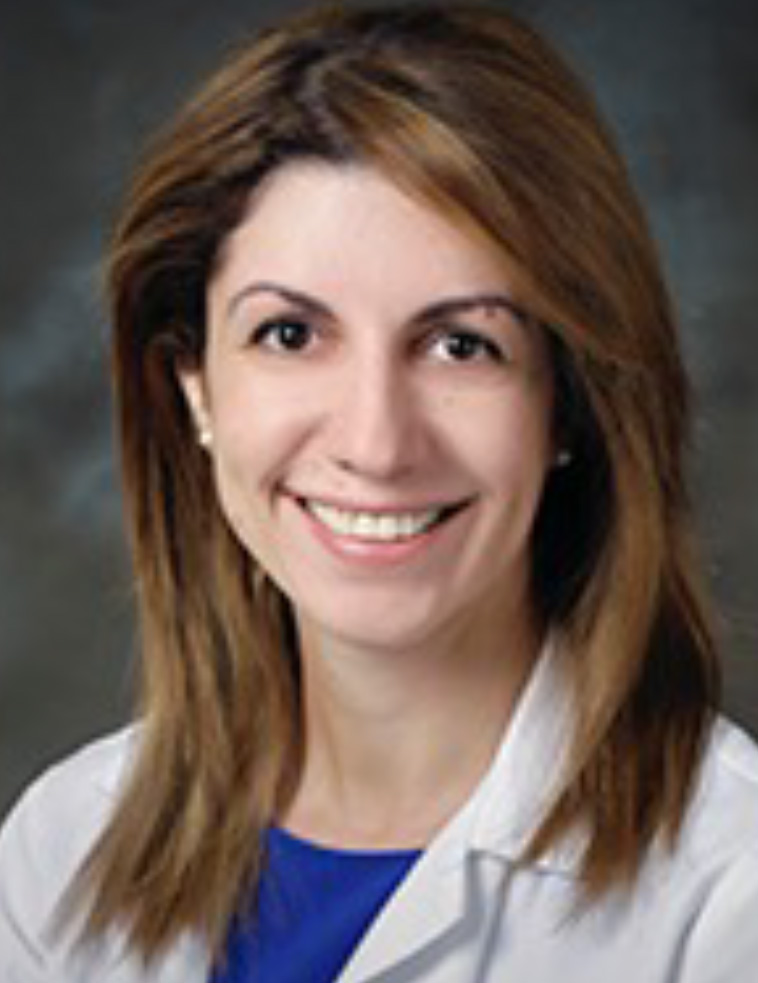
Ani S. Balmanoukian, MD
Director of Thoracic Oncology at The Angeles Clinic and Research Institute, a Cedars-Sinai Affiliate, Tarzana, CA
Dr. Ani Balmanoukian leads the Lung Cancer Clinical Program at The Angeles Clinic and Research Institute. She received her medical degree from New York Medical College. She completed a residency in internal medicine at Johns Hopkins Hospital. She subsequently completed fellowship in hematology and medical oncology at Johns Hopkins Hospital. Dr. Balmanoukian is board certified in internal medicine, hematology and medical oncology. Dr. Balmanoukian’s clinical areas of research include novel targeted agents, immunotherapeutics, and early drug development. Her extensive experience and expertise has enhanced our patients’ experience in the Phase One Program ensuring that throughout her time here our patients have been able to benefit first from major breakthroughs in recent cancer research. Dr. Balmanoukian has led the charge in Immuno-Oncology for Lung Cancers. These include work with PD-1, PD-L1 and CTLA-4 antibodies. Dr. Balmanoukian has presented data at prestigious medical meetings and has had publications in New England Journal of Medicine, Lancet Oncology, and Journal of Clinical Oncology. Dr. Balmanoukian is committed to excellence in comprehensive health care for patients and believes strongly in promoting care through state-of-the-art therapy while always ensuring compassionate care.
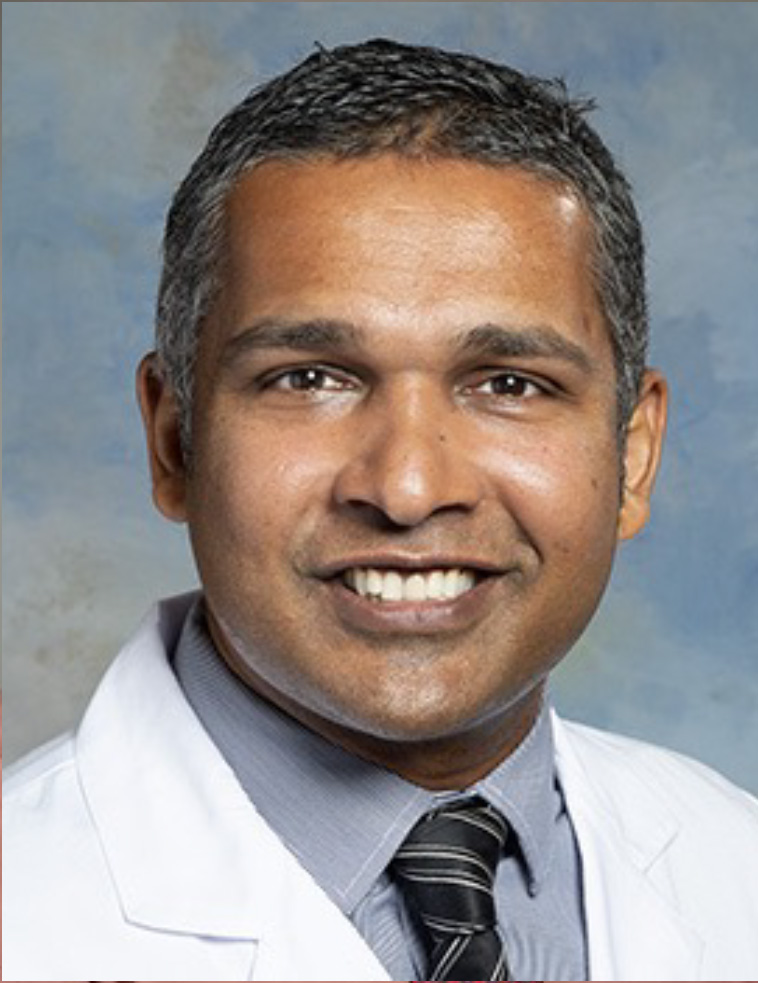
Dhruv Bansal, MD, MBA
Assistant Professor, Northshore Department of Medicine, University of Chicago, Chicago, IL
Dr. Dhruv Bansal is a medical oncologist specializing in Thoracic and Precision oncology. Born and raised in India, he attended medical school in West India and then came to the USA for residency and fellowship. He served as a hospitalist for a few years and then completed his fellowship at Washington University in Saint Louis. He also recently completed an MBA from Washington University in Saint Louis. Dr. Bansal is interested in biomarker discovery and designing clinical trials. He recently led the precision and thoracic oncology teams at Saint Luke’s Cancer Institute in Kansas City and is a member of the Alliance Respiratory Committee. Dr. Bansal has served on the physician advisory committee for ASCO CancerLinq. He is transitioning to a role at the Kellogg Cancer Center in Chicago, where he will serve as the program director for immunotherapy, lead the molecular tumor board and be the academic lead for thoracic medical oncology.
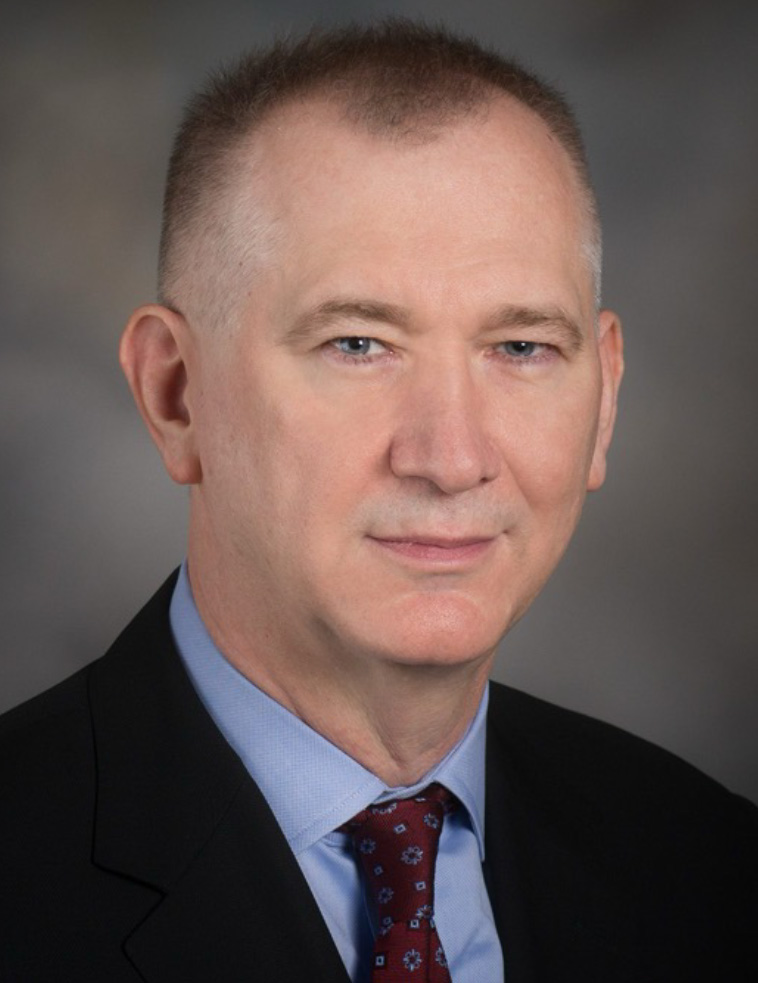
George R. Blumenschein, MD
Professor of Medicine, Department of Thoracic-Head & Neck Medical Oncology, Division of Cancer Medicine, The University of Texas MD Anderson Cancer Center, Houston, TX
Dr. George R. Blumenschein, Jr. is a Professor of Medicine in the Department of Thoracic/Head & Neck Medical Oncology at The University of Texas MD Anderson Cancer Center in Houston, Texas. He received his B.A. from the Vanderbilt University and his M.D. from the University of Texas Medical School in Houston. He completed his residency in internal medicine at The University of Texas Health Science Center in Houston and his fellowship training in medical oncology at The University of Texas MD Anderson Cancer Center. Dr. Blumenschein is a member of ASCO, SITC, SWOG, RTOG, and AACR. He has authored or co-authored papers and book chapters regarding the management of lung and head and neck cancers. Dr. Blumenschein’s area of focus is principal new drug development, adoptive T-cell therapy and multimodality therapy for the treatment of lung and head and neck cancers. Specifically, he is interested in the utilization of compounds with novel mechanisms of action in clinical trials for the treatment of these tumors. He is leading the Adoptive T-cell Program with the goal of developing this class of therapeutics for the treatment of Lung and Head and Neck Cancers. He serves as the principal investigator on a number of research protocols.
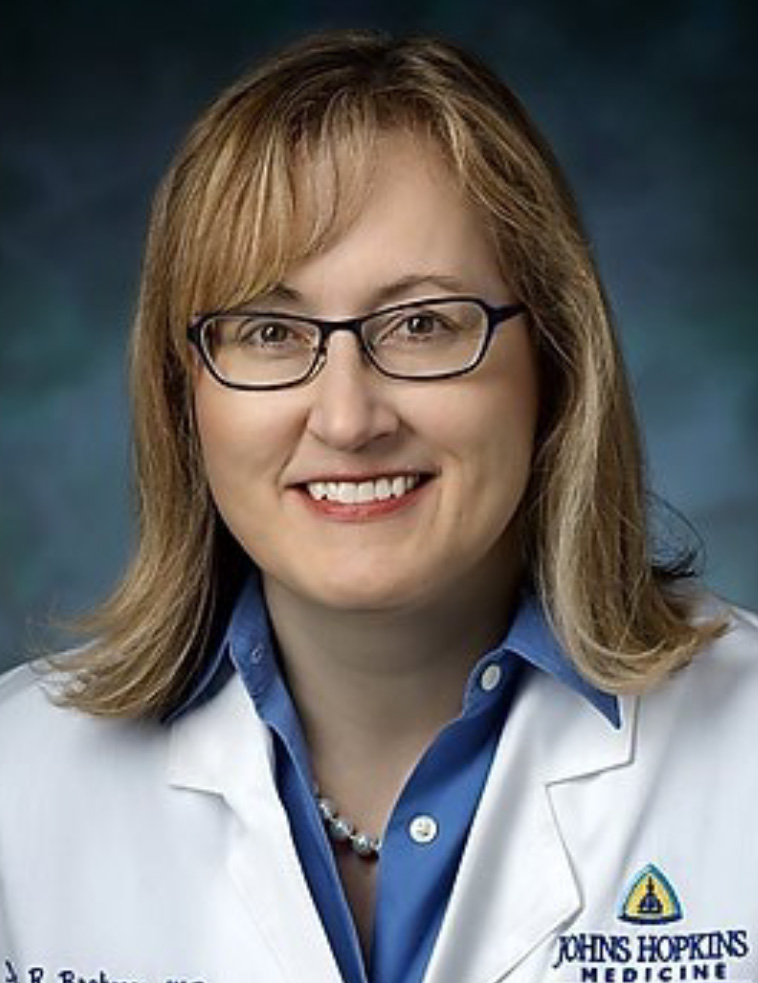
Julie Brahmer, MD, MSc
Professor of Oncology, Co-Director of the Upper Aerodigestive Department, Co-Director, Cancer Immunology Program, Director, Thoracic Oncology, Bloomberg~Kimmel Institute for Cancer Immunotherapy, Johns Hopkins Medicine, Baltimore, MD
Julie R. Brahmer, MD, MSc is the Director of the Thoracic Oncology Program, Professor of Oncology at the Sidney Kimmel Comprehensive Cancer Center at Johns Hopkins and the Marilyn Meyerhoff Professor in Thoracic Oncology. She also directs the Kimmel Cancer Center on the Johns Hopkins Bayview campus and is co-principal investigator on Johns Hopkins’ National Clinical Trials Network. Dr. Brahmer is an active clinical leader in the treatment of lung cancer and mesothelioma. She leads the organization of the multidisciplinary thoracic malignancy conference whose members meet weekly to discuss thoracic malignancy cases that need a multidisciplinary review/approach. Dr. Brahmer’s research and clinical practice focuses on the development of new therapies for the treatment and prevention of lung cancer and mesothelioma. Dr. Brahmer’s research interests include leading early phase immunotherapy trials of anti-PD-1 antibodies, international phase III studies of immunotherapies in lung cancer and investigator-initiated trials evaluating epigenetic therapies in combination with immunotherapies. She is a member of the American Society of Clinical Oncology and the Eastern Cooperative Oncology Group (ECOG) Thoracic Committee and Cancer Prevention Steering Committee. She is one of the founding Board members for the National Lung Cancer Partnership (formerly Women Against Lung Cancer). Within the National Lung Cancer Partnership, she currently serves as a member and the Chairman of the Scientific Executive Committee. She is also on the medical advisory board of the Lung Cancer Research Fund and the Mesothelioma Applied Research Foundation.
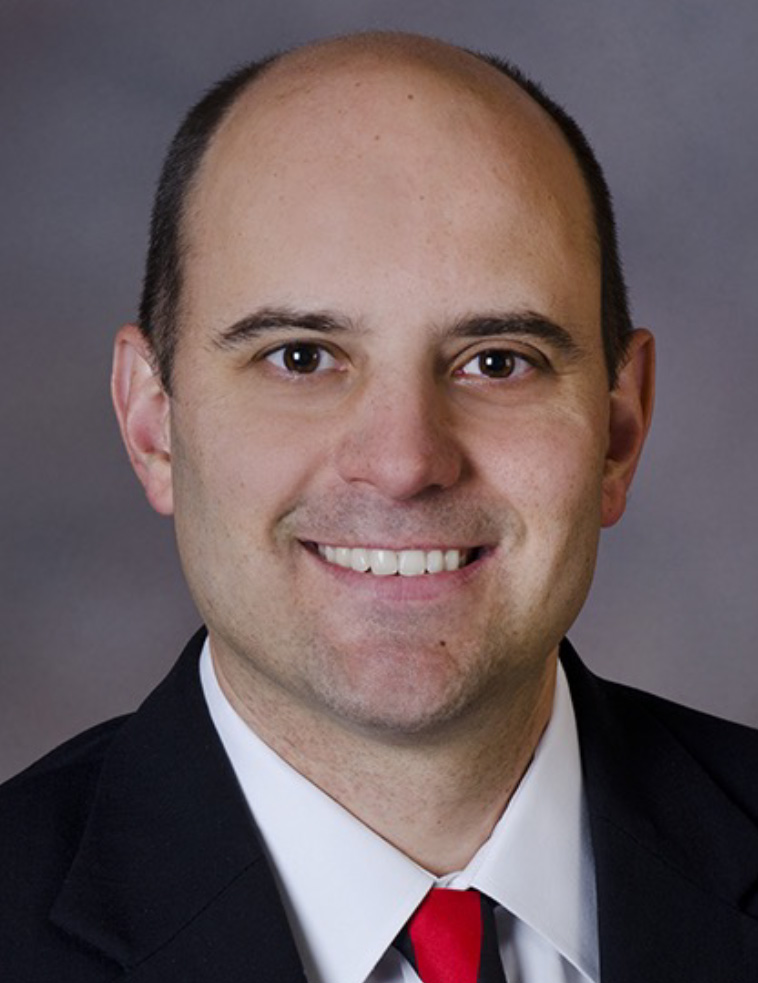
Jeremy Paul Cetnar, MD, MSHPR
Associate Professor, Knight Cancer Institute, Oregon Health & Science University, Portland, OR
Dr. Jeremy Paul Cetnar is a medical oncologist at the Knight Cancer Institute, OHSU Health, and the OHSU School of Medicine. In addition, he is an Associate Professor at the OHSU School of Medicine and a member of the Knight Cancer Translational Oncology Program. Dr. Cetnar earned his medical degree at Loyola University Chicago Stretch School of Medicine, then completed his internship and residency in Internal Medicine at Oregon Health and Science University. He completed a fellowship in Hematology and Medical Oncology at the University of Pennsylvania Health System and then completed Master of Science in Health Policy Research at the University of Pennsylvania School of Medicine. Dr. Cetnar is the program leader of the OHSU Hematology and Medical Oncology Fellowship Program and a member of the American Society of Clinical Oncology. His care of lung cancer patients begins with advanced testing and molecular analysis to pinpoint patients’ lung cancer type, then create a treatment plan that may include a combination of radiation therapy, chemotherapy, immunotherapy, or surgery. He also treats patients with malignant pleural mesothelioma and has participated in professional panels discussing the most innovative options for this rare and challenging disease.Jeremy Paul Cetnar, MD, MSHPR Associate Professor Knight Cancer Institute Oregon Health & Science University Portland, Oregon Dr. Jeremy Paul Cetnar is a medical oncologist at the Knight Cancer Institute, OHSU Health, and the OHSU School of Medicine. In addition, he is an Associate Professor at the OHSU School of Medicine and a member of the Knight Cancer Translational Oncology Program. Dr. Cetnar earned his medical degree at Loyola University Chicago Stretch School of Medicine, then completed his internship and residency in Internal Medicine at Oregon Health and Science University. He completed a fellowship in Hematology and Medical Oncology at the University of Pennsylvania Health System and then completed Master of Science in Health Policy Research at the University of Pennsylvania School of Medicine. Dr. Cetnar is the program leader of the OHSU Hematology and Medical Oncology Fellowship Program and a member of the American Society of Clinical Oncology. His care of lung cancer patients begins with advanced testing and molecular analysis to pinpoint patients’ lung cancer type, then create a treatment plan that may include a combination of radiation therapy, chemotherapy, immunotherapy, or surgery. He also treats patients with malignant pleural mesothelioma and has participated in professional panels discussing the most innovative options for this rare and challenging disease.

Joseph M. Chan, MD, PhD
Assistant Attending Physician, Department of Medicine, Thoracic Oncology Service, Assistant Member, Human Oncology & Pathogenesis Program, Memorial Sloan Kettering Cancer Center, New York, NY
Dr. Chan is a physician scientist, thoracic oncologist, and computational biologist who is an Assistant Member at the Human Oncology and Pathogenesis Program (HOPP) and Department of Medicine at MSKCC. He received a BS from Stanford University and an MD/PhD at Columbia University, followed by internal medicine residency at Weill Cornell Medical Center and medical oncology fellowship at MSKCC. During his MD/PhD, he first became interested in developing computational methods to study how rewiring genomic information promotes rapid evolution. These efforts led to the development of a method to detect oncogenic gene fusions in glioblastoma, including FGFR-TACC fusions that were later found to be recurrent across multiple tumor types, including cholangiocarcinoma and bladder cancer where FGFR inhibition is now standard of care. He also developed a method using algebraic topology to model horizontal evolutionary events in viruses, one of the first cases of topological data analysis applied to biology. His interest in studying evolutionary rewiring of genomes across lineages ultimately seeded his postdoctoral interest in studying lineage plasticity across lung and prostate cancer as a mechanism of acquired resistance. As part of the Human Tumor Atlas Network, he constructed an atlas of SCLC and characterized intratumoral transcriptional tumor subtypes in the context of the surrounding microevironment, including a recurrent, pro-metastatic PLCG2-high SCLC state associated with pro-fibrotic macrophages. He also developed methods to quantify plasticity during the early stages of neuroendocrine transformation in prostate cancer and identified highly correlated gene programs that represent molecular drivers of this process. This strategy implicated FGFR & JAK/STAT inflammation, where combined FGFR and JAK inhibition reversed the early stages of tumor plasticity and restored sensitivity to androgen inhibition. Now, Dr. Chan leads a multidisciplinary lab developing machine learning methods leveraging single-cell and cell-free technologies to understand the epigenetic and environmental determinants of plasticity across lung, prostate, colon, and other tumor primaries, with a particular interest in histological transformation. His work has garnered multiple grants and awards, including the NCI K08 Mentored Clinical Scientist Research Career Development Award; the Conquer Cancer ASCO Harborside Endowed Merit, Young Investigator, and Career Development Awards; the ASCI Young Physician-Scientist Award; ALA Cancer Discovery Award; Concern Foundation Conquer Cancer Now Grant; and the Druckenmiller Lung Center Grant.
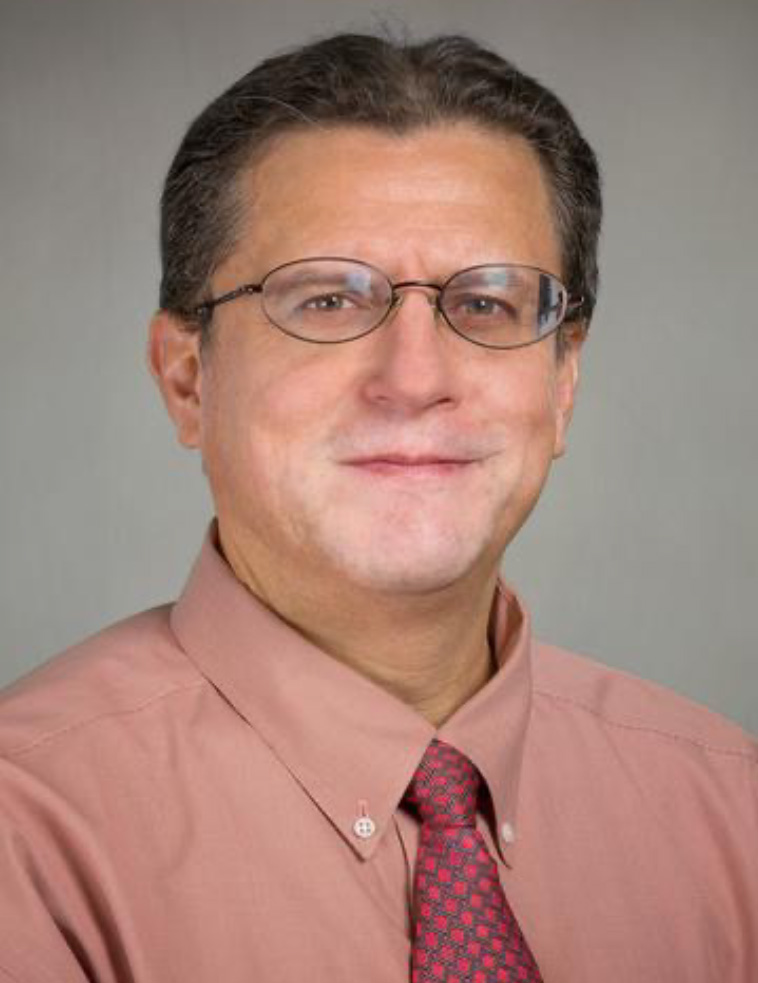
Alberto Chiappori, MD
Senior Member of Oncology and Medicine, Thoracic Oncology Program, H. Lee Moffitt Cancer Center and Research Institute, Tampa, FL
Alberto A. Chiappori, MD currently serves as Senior Member of Oncology and Medicine for the Thoracic Oncology Program at the H. Lee Moffitt Cancer Center and Research Institute in Tampa, Florida. He has been a member of the Thoracic Oncology Program at Moffitt since 2001. Dr. Chiappori received his MD from the Universidad Peruana Cayetano Heredia in Lima, Peru. After graduation, he completed his residency at Southern Illinois University School of Medicine in Springfield, Illinois. He then went on to finish his fellowship and senior fellowship in medical oncology-hematology at Vanderbilt University School of Medicine in Nashville, Tennessee. Dr. Chiappori has been Board Certified in Medical Oncology since 1997. Dr. Chiappori has coauthored numerous articles in journals including Clinical Cancer Research, Journal of Thoracic Oncology, and Journal of Clinical Oncology. He is also an active member of the American Society of Clinical Oncology and the International Association for the Study of Lung Cancer (IASLC).
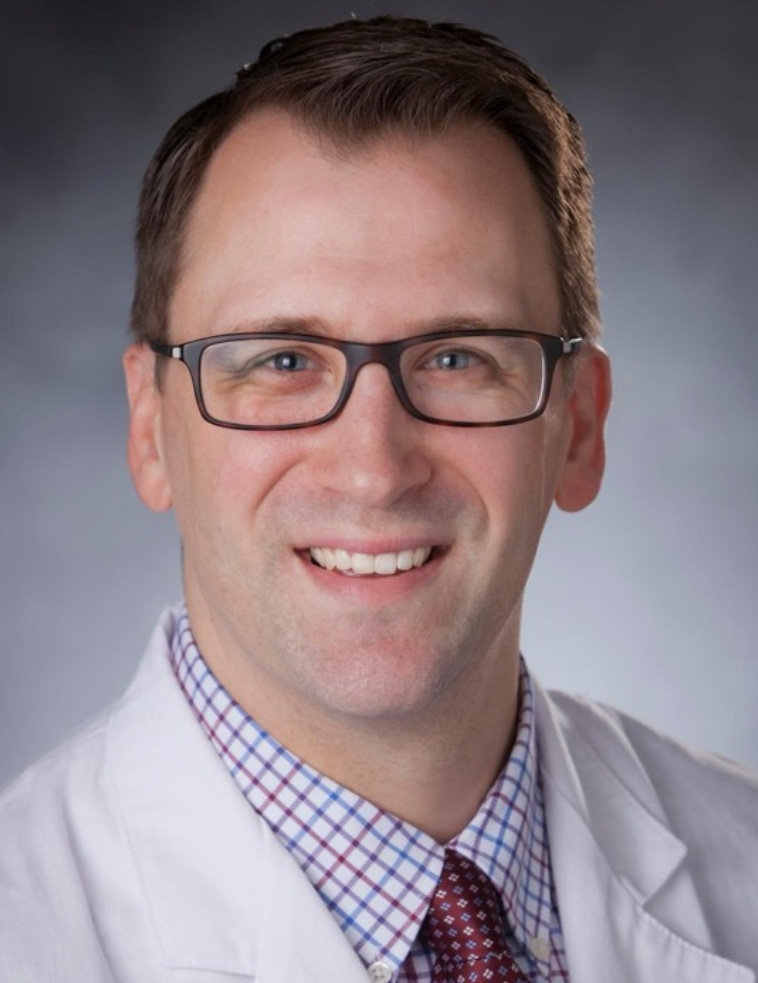
Jeffrey Melson Clarke, MD
Associate Professor of Medicine, Member of the Duke Cancer Institute, Department of Medicine, Duke University School of Medicine, Durham, NC
Dr. Jeffrey Melson Clarke is an esteemed medical oncologist specializing in pleural mesothelioma and lung cancer. He serves as an Associate Professor of Medicine at Duke University School of Medicine and is a member of the Duke Cancer Institute. Dr. Clarke earned his medical degree from Indiana University School of Medicine and completed his residency and fellowship at Duke University Medical Center. At Duke Cancer Center, his clinical focus is on thoracic cancers, including lung cancer and mesothelioma.Jeffrey Melson Clarke, MD Associate Professor of Medicine Member of the Duke Cancer Institute Department of Medicine, Duke University School of Medicine Durham, NC Dr. Jeffrey Melson Clarke is an esteemed medical oncologist specializing in pleural mesothelioma and lung cancer. He serves as an Associate Professor of Medicine at Duke University School of Medicine and is a member of the Duke Cancer Institute. Dr. Clarke earned his medical degree from Indiana University School of Medicine and completed his residency and fellowship at Duke University Medical Center. At Duke Cancer Center, his clinical focus is on thoracic cancers, including lung cancer and mesothelioma.
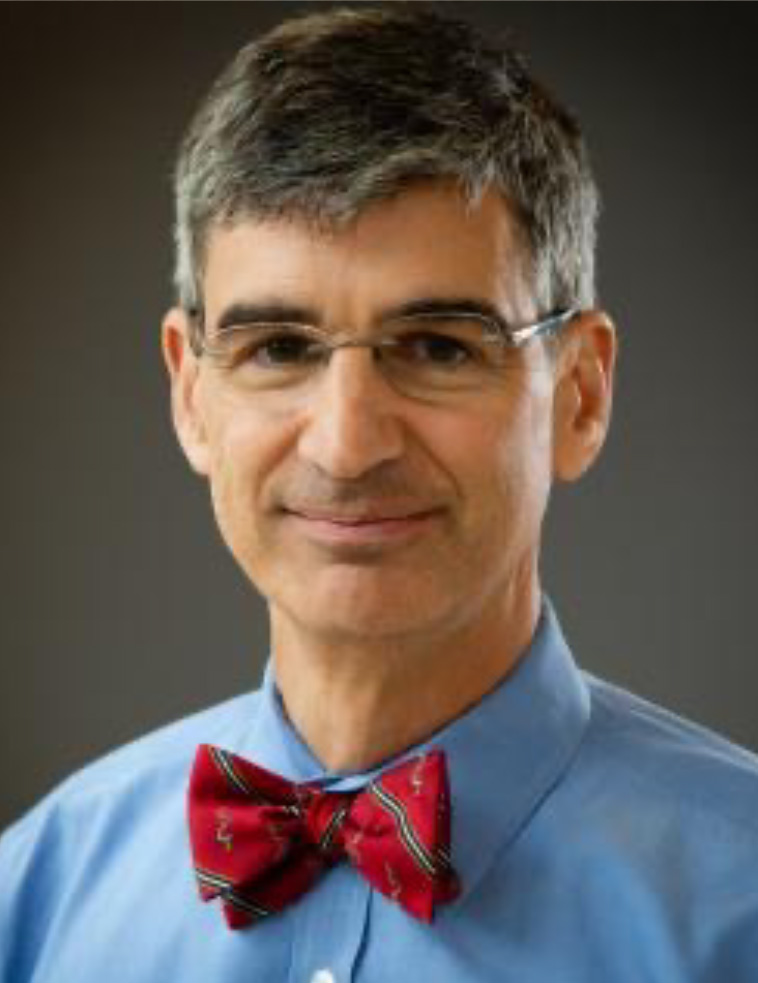
A. Dimitrios Colevas, MD
Professor of Medicine (Oncology), Professor (By courtesy), Otolaryngology (Head and Neck Surgery), Professor (By courtesy), Radiation Oncology – Radiation Therapy, Stanford University, Stanford, CA
Dr. A. Dimitrios Colevas is Professor of Medical Oncology and, by courtesy, of Otolaryngology – Head & Neck Surgery (OHNS) and of Radiation Oncology (Radiation Therapy) at Stanford University. He graduated from Johns Hopkins University School of Medicine and completed his residency in Internal Medicine from Johns Hopkins University School of Medicine and fellowship in Hematology/Oncology from Dana-Farber Cancer Institute. Dr. Colevas is a medical oncologist specializing in head and neck cancers, with a focus on developing new therapeutic strategies and evaluating treatment-related toxicities. His research encompasses developmental therapeutics, investigational new drugs, and the combined use of chemotherapy and radiation therapy, particularly in treating thyroid cancer. Notably, he has led clinical trials investigating novel treatments for Epstein-Barr Virus-positive nasopharyngeal carcinoma, including the first-in-human study of the drug VK-2019.

Angelica D’Aiello, MD
Assistant Professor of Oncology, Montefiore Medical Park at Eastchester, 1695 Eastchester Road, Bronx, NY
Dr. Angelica D’Aiello serves as Assistant Professor of Oncology at Montefiore Einstein. She graduated from Stony Brook University Health Sciences Center School of Medicine and completed her residency in Internal Medicine and fellowship in Hematology and Medical Oncology in Montefiore Medical Center/Albert Einstein College of Medicine. Dr. D’Aiello’s clinical interest lies in neoadjuvant and perioperative immunotherapy in resectable non-small cell lung cancer.
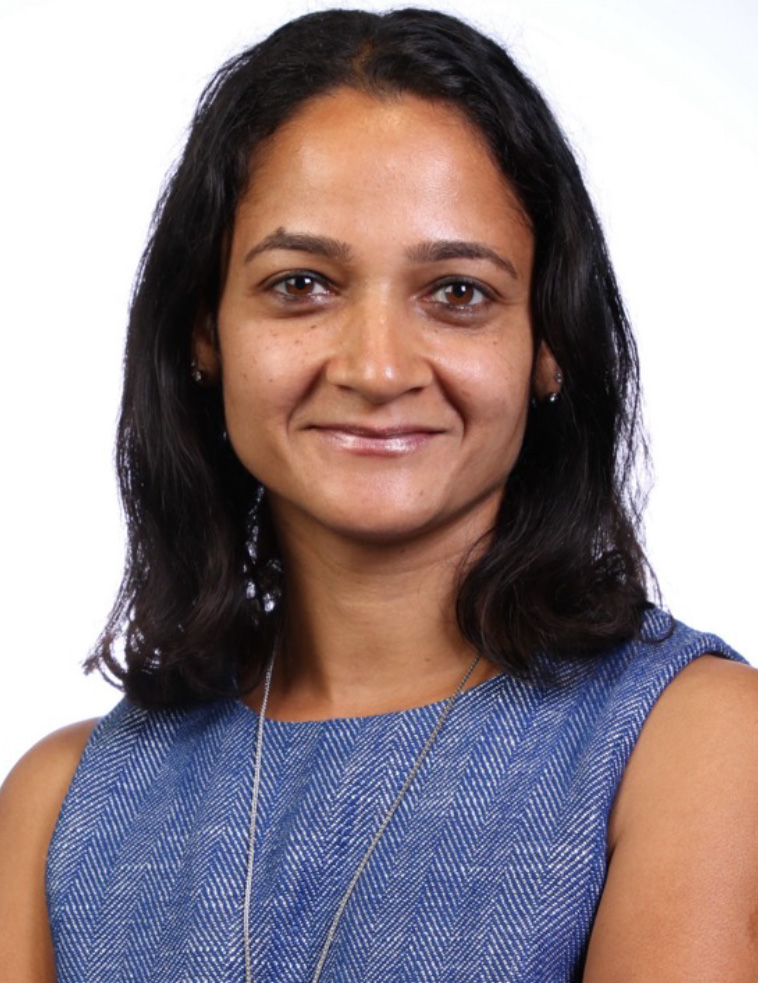
Millie (Roy) Das, MD
Clinical Professor, Department of Medicine, Stanford University School of Medicine, Stanford CA
Dr. Das specializes in the treatment of thoracic malignancies. She sees and treats patients both at the Stanford Cancer Center and at the Palo Alto VA Hospital. She is Chief of Oncology at the Palo Alto VA and is an active member of the VA national Lung Cancer Working Group and Lung Cancer Precision Oncology Program. In 2023, she was elected President the Association of Northern California Oncologists (ANCO), where she displays her passion for patient advocacy and also for clinician education by helping to organize Bay Area focused continuing medical education programs. She is the VA site director for the Stanford fellowship program and leads the VA thoracic tumor board on a biweekly basis. She has a strong interest in clinical research, serving as a principal investigator for multiple clinical and translational studies at the Palo Alto VA, and also as a co-investigator on all of the lung cancer trials at Stanford.
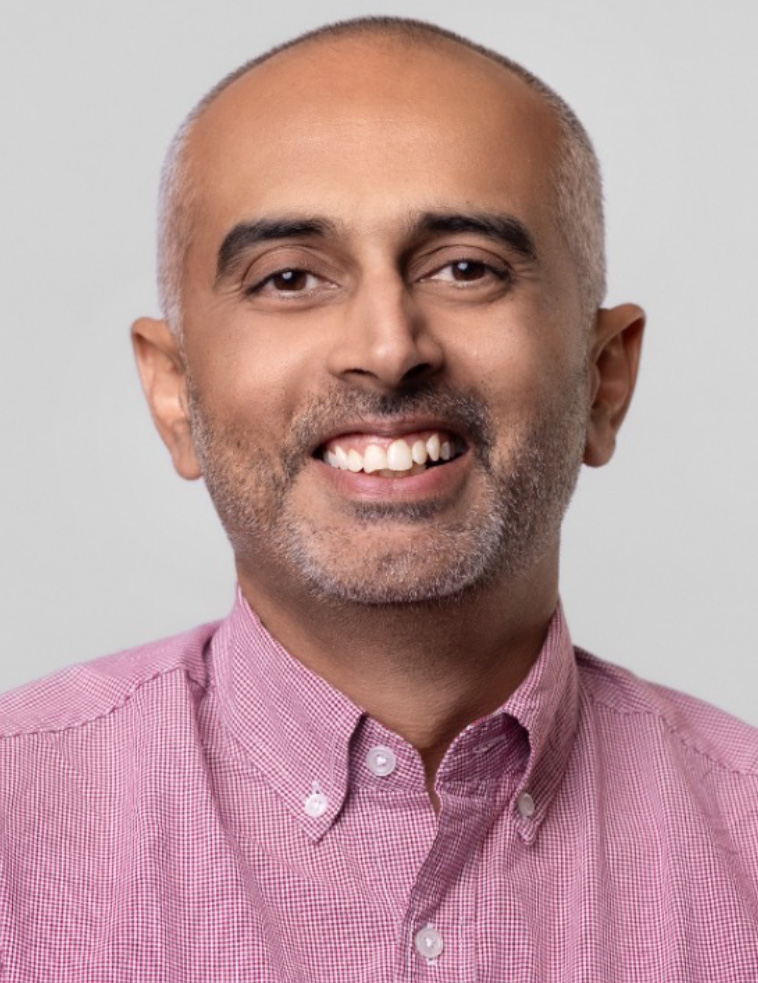
Sid Devarakonda, MBBS, MD
Director, Thoracic Medical Oncology, Swedish Cancer Institute, Paul G. Allen Research Center, Associate Professor, Elson S. Floyd School of Medicine, Washington State University,
Seattle, WA
Sid Devarakonda trained and worked on faculty at the Washington University in St. Louis before joining Swedish Cancer Institute in Seattle as the Director of Thoracic Medical Oncology, Lead for the Initiative of Molecular and Genomic Evaluation of Cancer at the Paul G Allen research institute and Associate Professor at the Washington State University. His research is focused on understanding cancers utilizing sequencing technologies. He has been a part of consortia such as TCGA and LACE-Bio. He is particularly interested in understanding the molecular underpinnings of never-smoker lung cancer and mechanisms of treatment resistance in small cell lung cancers.
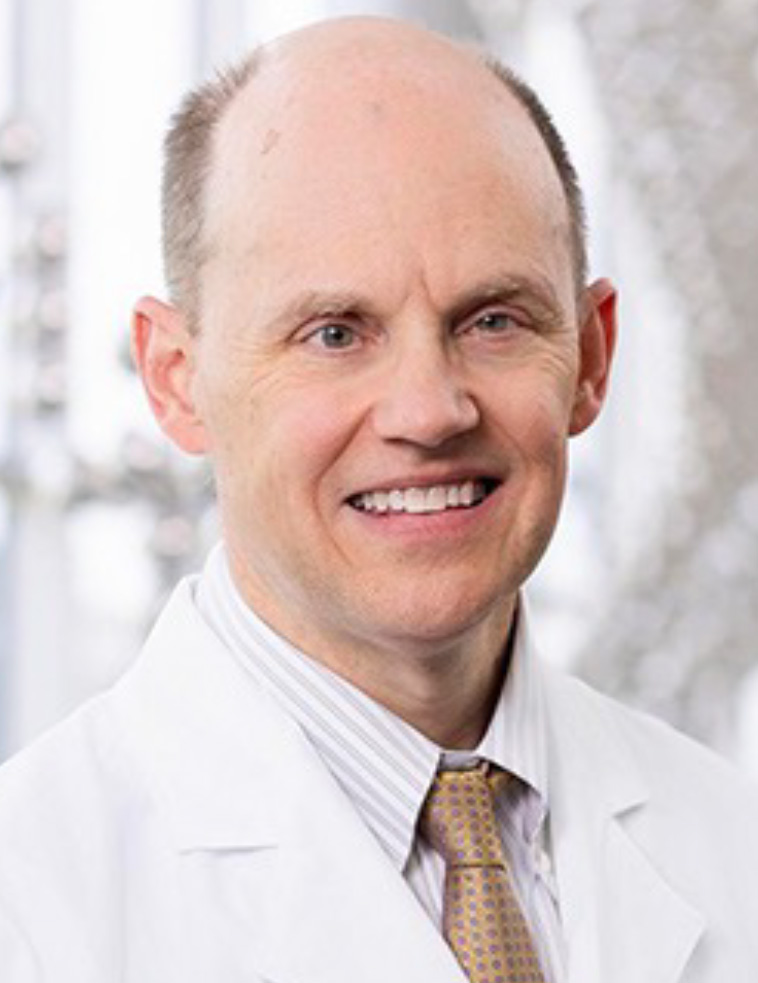
Jonathan Dowell, MD
Professor, UT Southwestern Medical Center Hematology/ Oncology Division, Dallas, TX
Jonathan Dowell, M.D., is a Professor in the Department of Internal Medicine at UT Southwestern, and a member of the Division of Hematology and Oncology. He also serves as Chief of Hematology/Oncology at the Dallas VA Medical Center. Dr. Dowell specializes primarily in thoracic malignancies, including non-small cell and small cell lung cancers, mesothelioma, and thymoma. Dr. Dowell earned his bachelor’s degree in neuroscience from Amherst College in Massachusetts, where he graduated magna cum laude. He received his medical degree from the University of Chicago’s Pritzker School of Medicine and completed internal medicine residency training at UT Southwestern Medical Center. He then completed advanced training through a fellowship in hematology and oncology at Vanderbilt University in Nashville. Certified by the American Board of Internal Medicine in hematology and in oncology, Dr, Dowell joined the UT Southwestern faculty in 2000. Dr. Dowell’s research interests include thoracic malignancies. His investigations have resulted in over 50 publications in peer-reviewed journals and contributions to more than 50 book chapters, reviews, editorials, and case reports. Additionally, he has presented his findings at scientific conferences throughout the United States and internationally. At UT Southwestern, Dr. Dowell chairs the Simmons Cancer Center Data and Safety Monitoring Committee and serves as the PI for the VISN 17 Veterans Affairs Lung Cancer Precision Oncology Program.
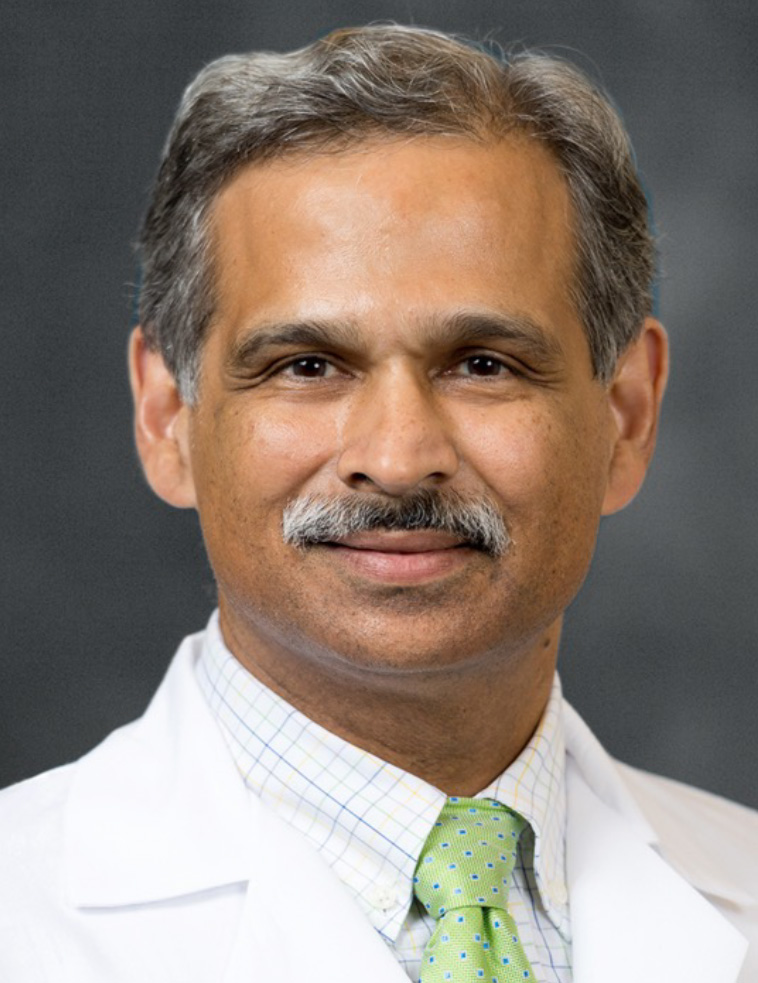
Shirish Gadgeel, MD
Chief, Division of Hematology and Oncology, Department of Internal Medicine, Henry Ford Cancer Institute/Henry Ford Health System, Detroit, MI
Dr. Gadgeel is the Vice-Chief of Division of Hematology/Oncology for Academics at Henry Ford Health. He is also Professor of Internal Medicine at Michigan State University. After graduating with his MBBS medical degree from the University of Bombay in Mumbai, India, he completed his Internal Medicine residency in Mumbai. He also completed residency in Internal Medicine as well as his Hematology/Oncology residency at Wayne State University, in Detroit, MI. Following his fellowship, Dr. Gadgeel served as director of the Thoracic Oncology Program and co-leader of Molecular Therapeutics Program at Karmanos Cancer Institute. Prior to Henry Ford, Dr. Gadgeel was a professor in the Department of Internal Medicine and the Mary Lou Kennedy Research Professor in Thoracic Oncology at the University of Michigan/Michigan Medicine. He is the principal investigator on numerous clinical trials, and has published extensively in peer-reviewed literature, with over 200 publications. His clinical research experience spans 20 years. He is the Associate Editor of Clinical Lung Cancer and a reviewer for many journals, including Clinical Cancer Research, Journal of Clinical Oncology, Lancet Oncology, and Journal of Thoracic Oncology. He has served as faculty for the annual meeting of the American Society of Clinical Oncology (ASCO) and as a member of the education committee of ASCO. He is a member of the Communications committee of the International Association of Study of Lung Cancer (IASLC). He was awarded by the National Cancer Institute the Cancer Clinical Investigator Team Leadership Award in 2012.
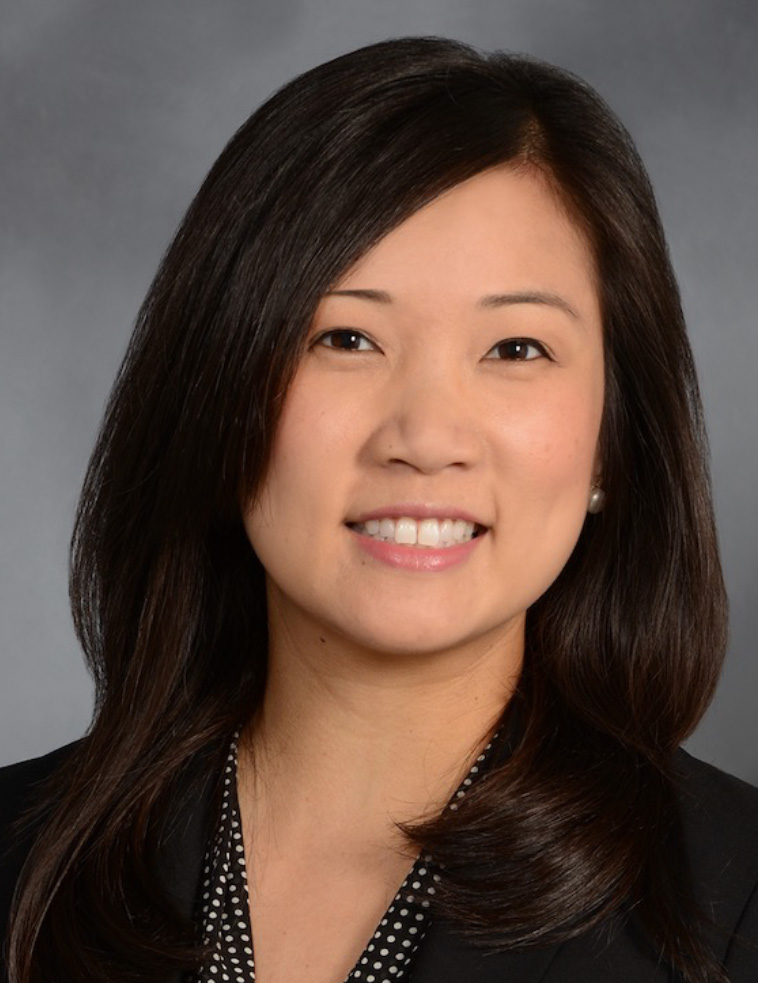
Christine A. Garcia, MD, MPH
Assistant Professor of Medicine, Director of Hematology & Oncology Fellowship Program, Director of Quality and Patient Safety Thoracic Oncology & Benign Hematology, Division of Hematology and Medical Oncology, Weill Cornell Medicine New York, NY
Dr. Christine Garcia is an oncologist and hematologist at Weill Cornell Medicine, specializing in lung cancer care. Her approach centers on empowering patients with compassionate, personalized treatment, ensuring they are well-supported and informed about their health. She is particularly focused on advancing care for EGFR-mutated lung cancer and improving patient outcomes. She also serves as the Director of Quality and Patient Safety and Chair of the Oncology Quality and Patient Safety Committee, leading initiatives that prioritize patient-centered care and safety. She is graduate of the Weill Cornell Medicine Quality Improvement Academy (QIA) and the American Society of Clinical Oncology (ASCO) Quality Training Program, serving as a mentor for trainees and faculty for quality initiatives. In addition to her clinical work, Dr. Garcia is committed to training the next generation of oncologists and hematologists. As Fellowship Program Director at Weill Cornell Medicine, she has expanded the program size and fosters a supportive learning environment. As a Weill Cornell Diversity Center of Excellence Faculty Scholar in Health Equity and an American Society of Clinical Oncology Educational Scholar, she integrates learning science principles into curriculum development, equipping her trainees with essential skills for excellence in patient care and research. She was inducted into the Weill Cornell Institute for Health Equity and Advocacy Leaders (I-HEAL) and serves as a mentor for faculty scholar projects in health equity. Dr. Garcia received her undergraduate degree from the University of Illinois at Urbana-Champaign, an M.P.H. from the University of Illinois at Chicago, and her medical degree with Distinction in Research from St. George’s University. She completed her residency at Stony Brook University Hospital and her fellowship at the University of Pittsburgh Medical Center. Outside of her professional achievements, Dr. Garcia values the support of her family, including her husband, Nick; daughter, Brett; and their Shetland sheepdog, Meeko. She enjoys cooking, yoga, art and volunteering in her free time.
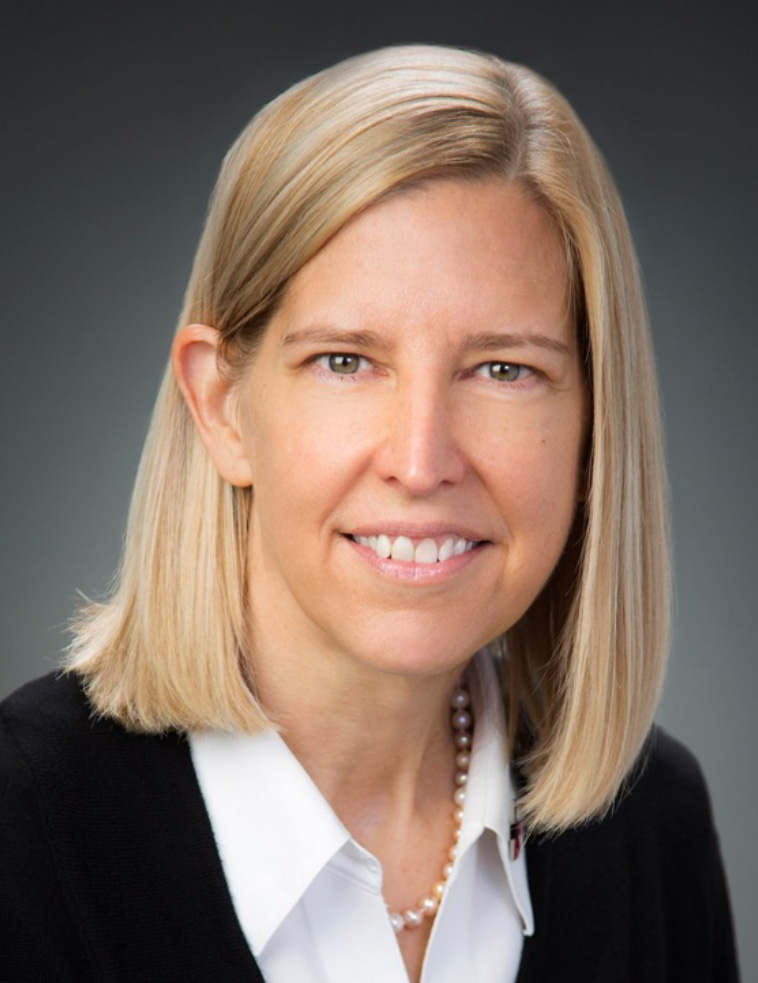
Maura L. Gillison, MD, PhD
Professor of Medicine, Department of Thoracic/Head and Neck Medical Oncology, Division of Cancer Medicine, The University of Texas MD Anderson Cancer Center, Houston, TX
Dr. Maura Gillison is the Professor of Medicine at the Department of Thoracic/Head and Neck Medical Oncology, Division of Cancer Medicine, the University of Texas MD Anderson Cancer Center. She graduated from Johns Hopkins University School of Medicine and completed Clinical Residency from Massachusetts General Hospital and Clinical Fellowship from the Johns Hopkins Oncology Center. Her laboratory focuses on the role of human papillomavirus (HPV) infection in head and neck malignancies. Her work ranges from cohort studies of oral HPV infection to genetic indicators of response to chemoradiotherapy. She is a physician scientist and has made significant contributions to the identification of human papillomavirus as a cause of a distinct subset of head and neck cancer, resulting in a paradigm shift in concepts for risk, diagnosis and therapy of head and neck cancer. As a doctorate-level trained molecular epidemiologist and medical oncologist with expertise in head and neck cancer, she currently investigates the implications of our findings for primary and secondary prevention strategies, diagnostics, prognostics, genomics, molecular therapeutics, clinical decision making and population-level cancer incidence trends in the United States and worldwide.
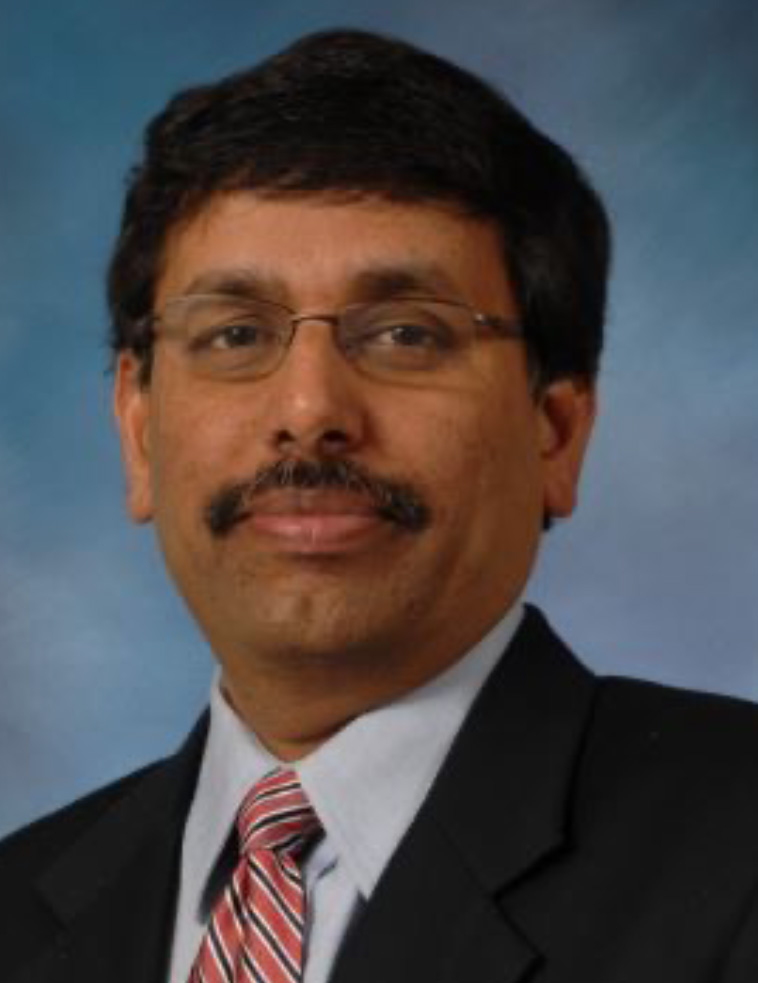
Ramaswamy Govindan, MD
Professor of Medicine Anheuser Busch, Chair in Medical Oncology, Director, Section of Medical Oncology, Division of Oncology, Washington University School of Medicine, St. Louis, MO
Dr. Ramaswamy Govindan is the Director of the Section of Medical Oncology at Washington University School of Medicine in St Louis. As a medical oncologist interested in thoracic malignancies, Dr. Govindan has led a number of institutional and multi- center phase II and III studies in lung cancer over the past decade. Working with The McDonnell Genome Institute at the Washington University School of Medicine and with The Cancer Genome Atlas (TCGA) project (as a co-chair) sponsored by the U.S. National Cancer Institute (NCI), he is actively involved in sequencing the whole genomes and exomes of several hundred patients with lung cancer. He led the group that has recently discovered mechanisms of resistance for chemotherapy in small cell lung cancer. Ongoing work led by him on the genomic alterations in primary and the corresponding brain metastases from patients with lung cancer is expected to provide new insights into how cancer cells metastasize. Dr. Govindan is the Principal Investigator for the NCI funded ALCHEMIST trial to study the role of erlotinib in patients with early-stage EGFR mutated lung cancer. Dr. Govindan is keen on translating genomic discoveries from the laboratory setting to clinical setting to improve the outcomes of patients with lung cancer. Dr. Govindan leads the effort to develop biomarkers in early-stage NSCLC using comprehensive genomic and proteomic analyses. His research is supported by multiple grants from the NCI. He has published over 370 peer- reviewed papers in scientific journals.
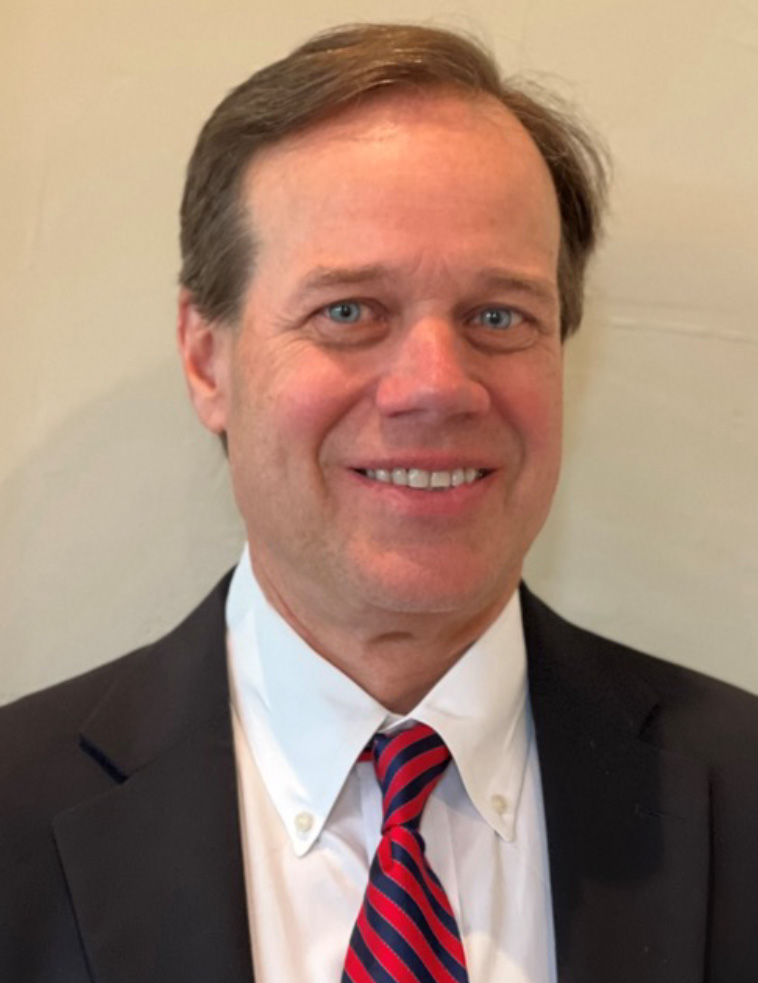
David H. Harpole, Jr, MD
Professor of Surgery and Pathology, George Barth Geller Endowed Professor for Research in Cancer, Division of Thoracic Surgery, Department of Surgery, Duke University Medical Center, Chief of Cardiothoracic Surgery, Durham Veterans Affairs Medical Center, Durham, NC
David H. Harpole, Jr. is the George Barth Geller Distinguished Professor of Surgery in the Division of Thoracic Surgery at the Duke University Medical Center in Durham, North Carolina, where he serves as Director of the Duke Surgical Research Fellowship and leads Duke’s Lung Cancer Research Laboratory and Biorepository. Dr. Harpole received his medical degree from the University of Virginia in Charlottesville, Virginia in 1984 and completed his General and Thoracic Surgery Residencies in 1993 at Duke University. Dr. Harpole is an internationally-recognized expert in thoracic oncology in translational science, clinical research and education. He is also one of the innovators of minimally-invasive approaches to lung cancer and the multi-modality treatment of mesothelioma. He has contributed numerous articles (> 200) and abstracts to the medical literature. He has directed an active translational thoracic oncology research laboratory for more 25 years that has had National Institutes of Health, Veterans Affairs and Department of Defense peer reviewed grant support and has served on NCI and VA grant review study sections for more than 15 years, including chair of the NCI R03, R21, R33 grant review study section for the last 5 years. He has led several large multi-institutional lung cancer clinical trials based on his laboratory efforts.
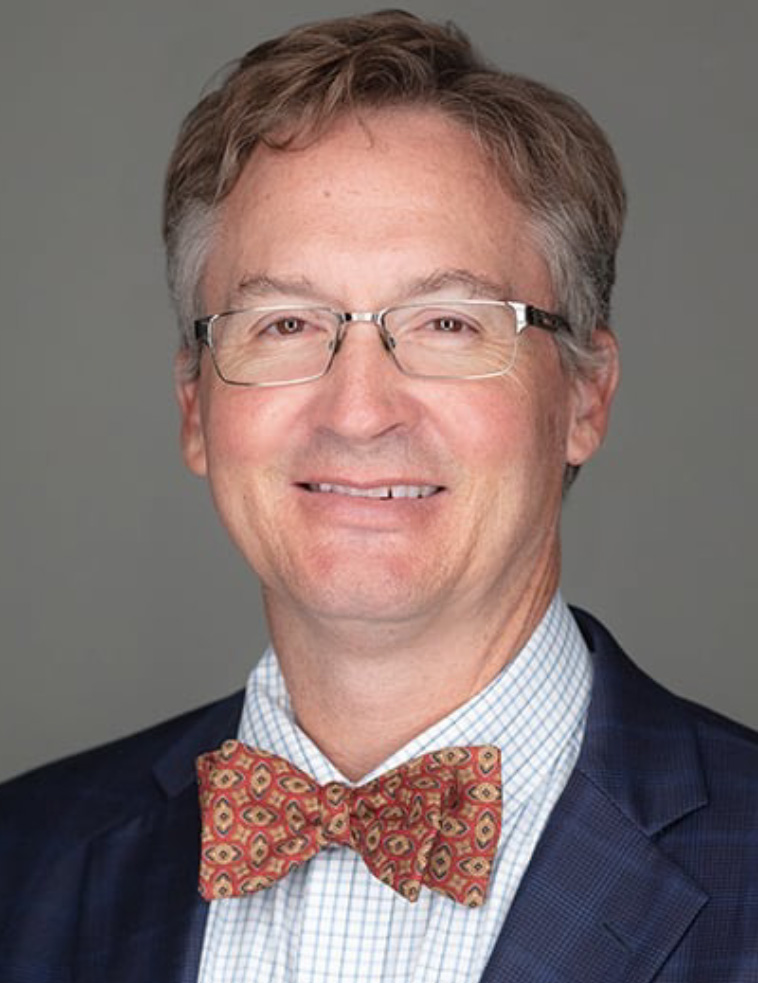
Eric Haura, MD
Associate Clinical Director, Clinical Science, Senior Member, Department of Thoracic Oncology & Drug Discovery, Moffitt Cancer Center, Tampa, FL
Dr. Eric Haura is a Thoracic Medical Oncologist with a laboratory-based research program in signal transduction, cancer proteomics, and experimental therapeutics. He received his M.D. from Duke University in 1994. He completed internal medicine residency at the Johns Hopkins Hospital in 1997 and completed fellowship training in Hematology & Oncology at Duke in 2000. He joined the H. Lee Moffitt Cancer Center and Research Institute in the Department of Thoracic Oncology in 2000 and is currently a Senior Member. He is the Director of the Moffitt Lung Cancer Center of Excellence. He is currently the Associate Center Director for Clinical Science. Dr. Haura’s major contribution has been as a leader in advancing the field of translational cancer proteomics and molecular characterization of cancers using highly integrative mass spectrometry-based proteomics. He has characterized protein architectures that regulate tumor growth and response to therapy. He developed approaches to discern mechanisms of complex drugs in cancer allowing repurposing of drugs and expanded uses. He has published more than 200 papers in top-tier scientific journals including Science Signaling, Nature Chemical Biology, Proceedings of the National Academy of Sciences, Molecular Systems Biology, Journal of Clinical Oncology, and Cancer Research. He has received numerous grants through the National Cancer Institute, industry partners, and private foundations.
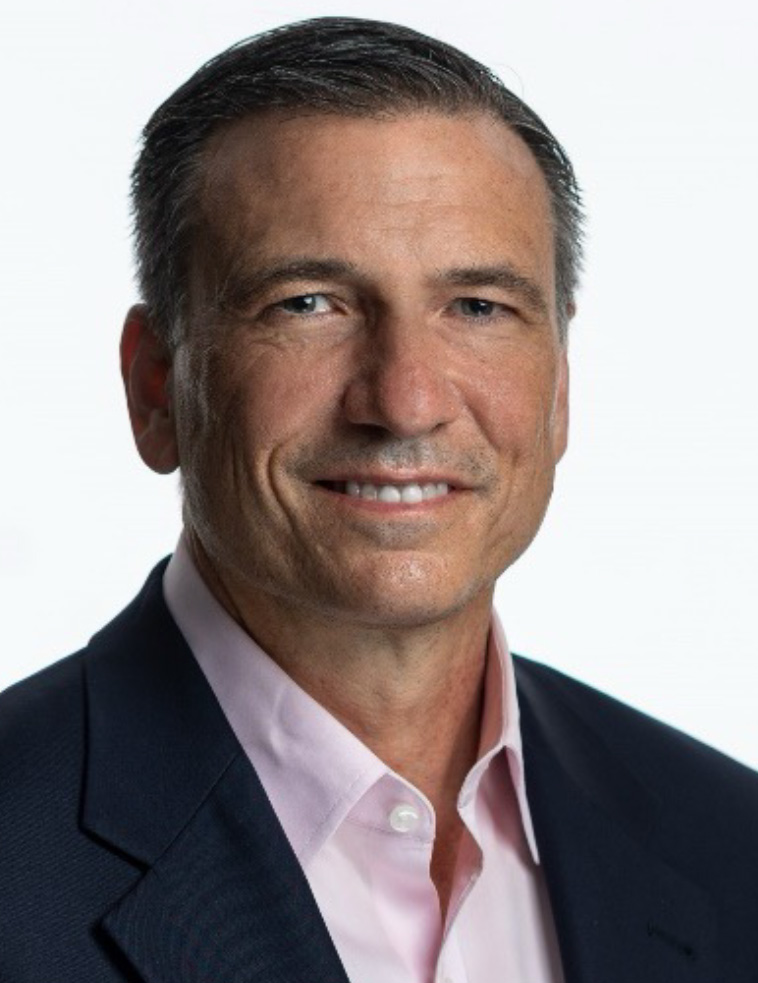
John Heymach, MD, PhD
Chair; Professor, David Bruton, Jr Chair in Cancer Research, Department of Thoracic/Head and Neck, Medical Oncology, Division of Cancer Medicine, The University of Texas MD Anderson Cancer Center, Houston, TX
Dr. Heymach is the Chair of Thoracic/Head and Neck Medical Oncology at MD Anderson Cancer Center. He holds the David Bruton Endowed Chair in Cancer Research. He received his undergraduate degree from Harvard University and his MD/PhD from Stanford. He completed his Internship and Residency at Brigham and Women’s Hospital and his fellowship in Medical Oncology from the Dana Farber/Mass General Brigham program. As a physician-scientist, Dr. Heymach’s research focuses on investigating mechanisms of therapeutic resistance to targeted agents, understanding the regulation of angiogenesis in lung cancer, and the development of biomarkers for targeted agents and immunotherapy. His research has led to new therapeutic approaches for KRAS mutant lung cancer, small cell lung cancer (SCLC), EGFR mutant non-small cell lung cancer (NSCLC), adenoid cystic carcinoma, and oligometastatic NSCLC, many of which are now considered standard of care regimens or undergoing clinical testing. He serves as PI on 4 R01 awards investigating molecular subsets of lung cancer, and on an U01 focused on SCLC. He serves as the MDACC PI for the SU2C-ACS Lung Cancer Dream Team targeting KRAS mutant lung cancers, as the leader of the Lung CCSG Program, and the co-leader of the Lung Cancer Moon Shot. He is also the co-PI and project leader of the Lung SPORE. As a clinical investigator, he leads a number of biomarker-directed clinical trials using targeted and immunotherapy agents in lung cancer. He has directly mentored numerous fellows, including physician-scientists, and serves as chair of the NCI Molecular Cancer Therapeutics-1 study section.
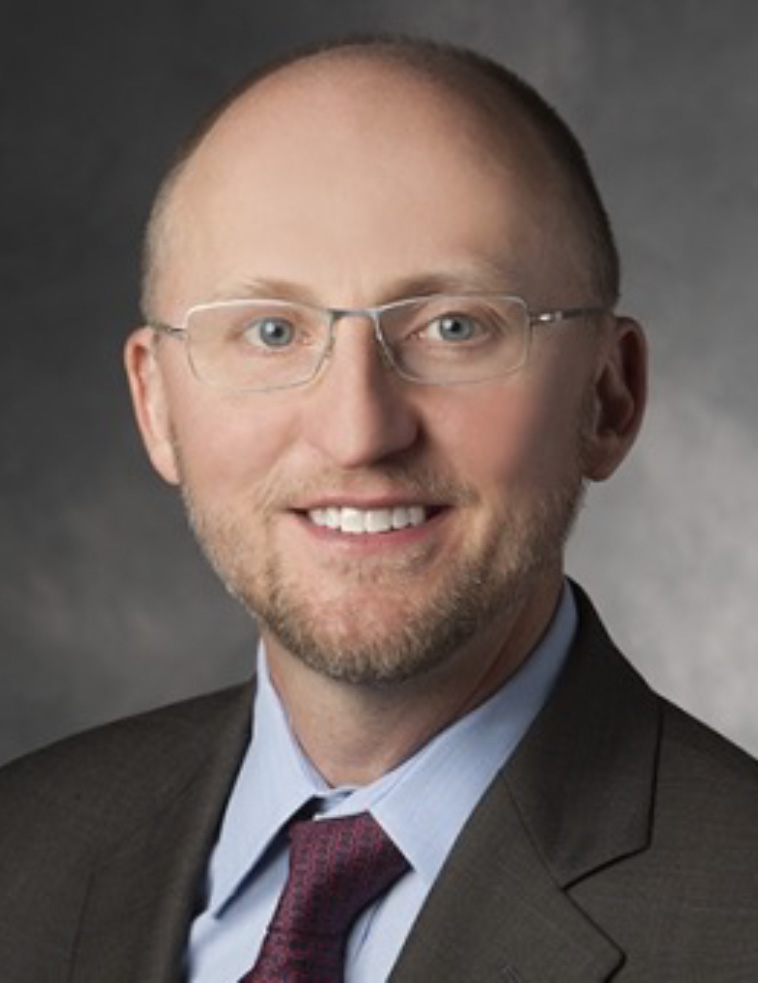
Chris Holsinger, MD, FACS
Professor of Otolaryngology – Head & Neck Surgery, Stanford University, Affiliated Faculty, Center for Artificial Intelligence in Medicine and Imaging, Member, Stanford Cancer Institute, Palo Alto, CA
Dr. Chris Holsinger is Professor of Head and Neck Surgery at Stanford University. He received his medical degree from Vanderbilt School of Medicine, completed his internship and residency at Baylor College of Medicine and his Fellowship in head and neck surgical oncology at The University of Texas M. D. Anderson Cancer Center. Dr. Holsinger’s research focuses on surgical innovation, AI, and clinical trials. He serves as surgical principal investigator for RTOG920 and coordinated surgeon-credentialing for ECOG 3311, a prospective clinical trial to study robotic head and neck surgery. Dr. Holsinger’s surgical practice focuses on the surgical management of thyroid as well as head and neck cancer. His areas of research interest include endoscopic head and neck surgery, including transoral robotic surgery and transoral laser microsurgery, as well as time-honoured approaches of conservation laryngeal surgery and supracricoid partial laryngectomy.
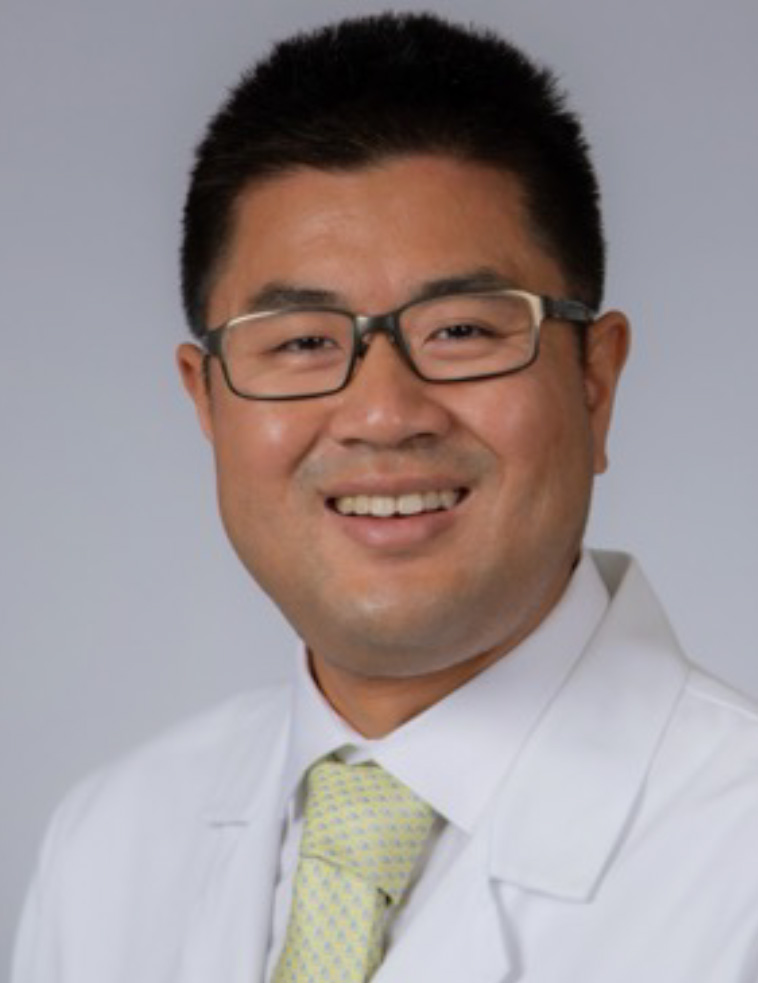
Robert Hsu, MD
Assistant Professor of Clinical Medicine, Department of Internal Medicine, Division of Medical Oncology, University of Southern California/Norris Comprehensive Cancer Center,
Los Angeles, CA
Dr. Robert Hsu is an Assistant Professor of Medicine in the Division of Medical Oncology at University of Southern California. His research interests are focused on lung cancer research along with cancer disparities across multiple solid tumor types. His research includes projects involving analysis of comprehensive genomic profiling of novel biomarkers in lung cancer, retrospective database work characterizing the lung cancer population treated at USC in Hispanic and young lung cancer patients, epidemiological research studying risk factors and mortality trends in lung and thyroid cancer incorporating the California Cancer Registry, and translational research studying the immune tumor microenvironment. Dr. Hsu was part of the IASLC Academy in 2024 and a recipient of the Robert A. Winn Excellence in Clinical Trials Career Development Award, a program focused on improving diversity in clinical trials.
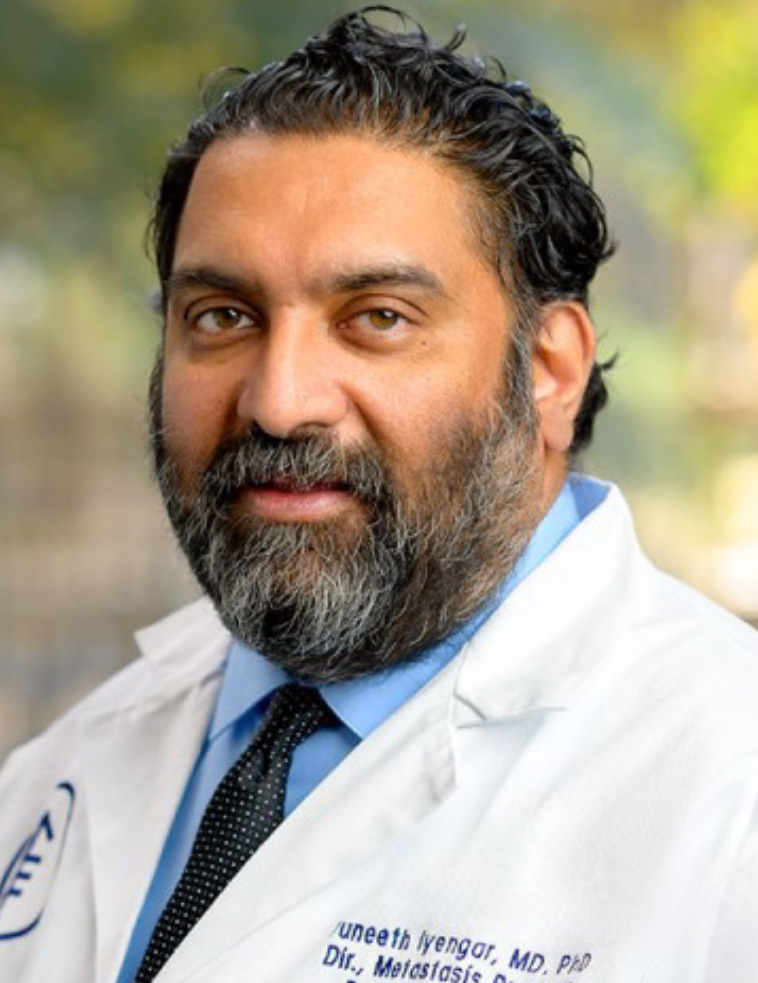
Puneeth Iyengar, MD, PhD
Director, Metastatic Program, Department of Radiation Oncology Memorial Sloan Kettering Cancer Center New York, NY Director, Metastatic Program, Department of Radiation Oncology Memorial Sloan Kettering Cancer Center, New York, NY
Dr. Puneeth Iyengar works as Director (Metastatic Program) at the Department of Radiation Oncology at Memorial Sloan Kettering Cancer Center. He received his MD, PhD degrees at Albert Einstein College of Medicine (NYC), following which he completed his residency in Radiation Oncology at MD Anderson Cancer Center. Dr. Iyengar’s clinical focus is on investigating the use of local therapy (SBRT) in the setting of oligometastatic NSCLC (Iyengar et al, JCO 2014, Iyengar et al, JAMA Oncology 2017), hypofractionated therapies for stage III NSCLC (Iyengar et al, JAMA Oncology 2021). He is principal investigator of NRG LU 002, a phase III randomized trial assessing the benefits of immunotherapy -/+ local therapy on overall survival for stage IV NSCLC. Dr. Iyengar also runs an independent NIH-funded research laboratory studying cancer cachexia from a basic science and translational perspective.
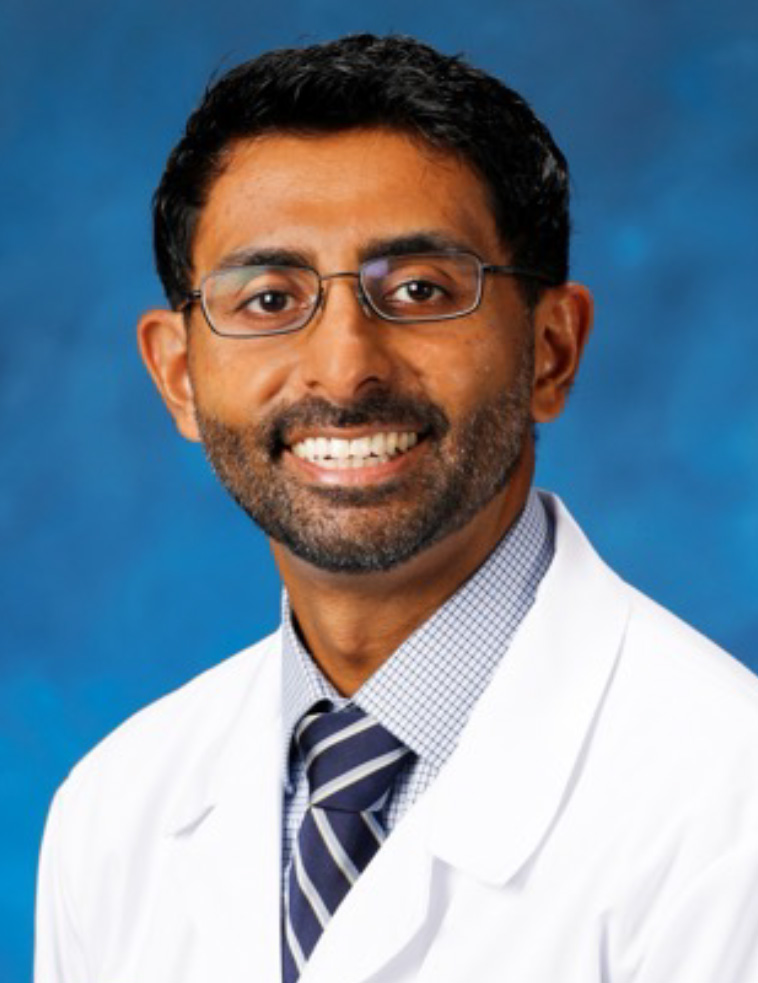
Hari B. Keshava, MD, MS, FACS
Assistant Clinical Professor of Surgery, Thoracic Surgery, Division of Thoracic Surgery, Department of Surgery, University of California, Irvine – School of Medicine, Orange, CA
Dr. Hari Keshava is a UCI Health thoracic surgeon who specializes in disorders of the chest, including lung cancer, metastatic lung cancer, mesothelioma, esophageal cancer and malignancies of the thymus. His clinical focus also includes gastroesophageal reflux disease (GERD), mediastinal malignancies, tracheal diseases and chest wall deformities. Keshava earned his medical degree from Case Western Reserve University in Cleveland, Ohio, followed by a general surgery internship at UC San Francisco School of Medicine. He completed a residency in general surgery at the Cleveland Clinic in Ohio, as well as a research fellowship in thoracic oncology at Yale-New Haven Hospital in New Haven, Conn. Next he completed a cardiothoracic surgery fellowship at Memorial Sloan Kettering Cancer Center and Weill-Cornell Medical Center in New York City, which included a fellowship in thoracic surgical robotics from the American Association for Thoracic Surgery. Keshava also holds a master’s degree medical device and diagnostic engineering from USC. His research interests include outcomes in lung cancer, esophageal cancer and mesothelioma, as well as cancer survivorship, cancer detection devices and health policy. He is the author or co-author of numerous research articles in peer-reviewed journals, including the European Journal of Surgical Oncology, the Annals of Thoracic Surgery, and the World Journal of Surgery. He also has made presentations at national and international conferences, including the American College of Surgeons, the American Association for Thoracic Surgery, and The International Association for the Study of Lung Cancer.
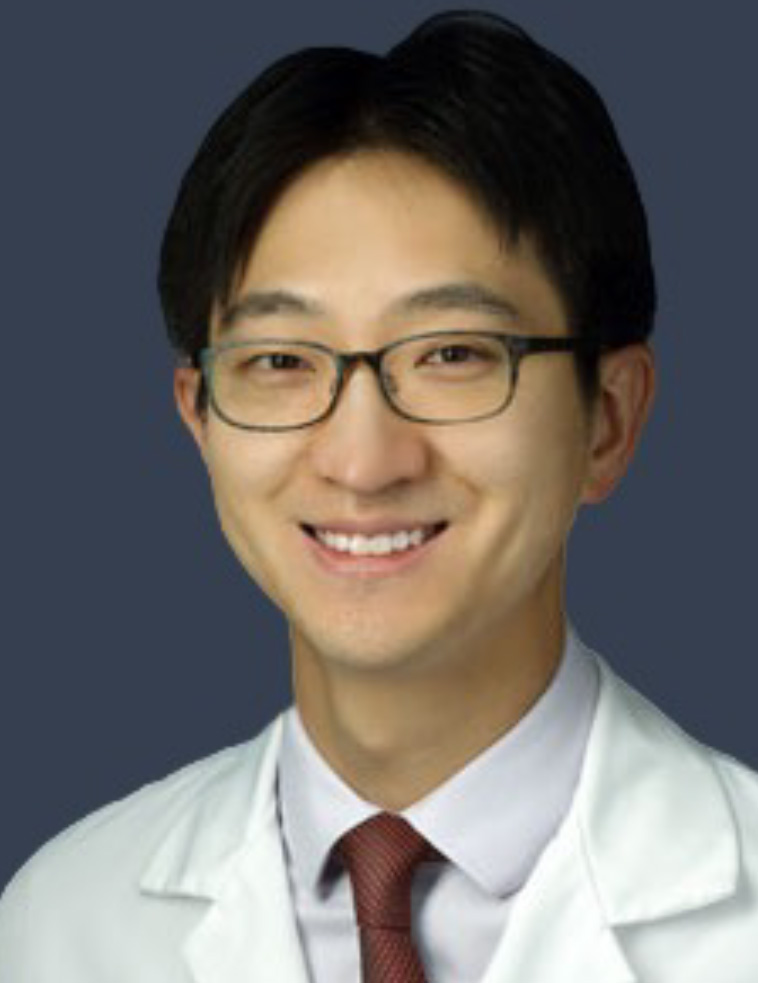
Chul Kim, MD
Associate Professor, Georgetown University, Attending Physician, MedStar Georgetown University Hospital, Washington, DC
Dr. Chul Kim is an Associate Professor at Georgetown University with a focus on thoracic oncology. His goal as a thoracic medical oncologist is to introduce innovative cancer therapies into clinical practice, and he is devoted to formulating clinical trials aimed at promoting personalized cancer treatments. Dr. Kim’s academic journey began at the Sungkyunkwan University School of Medicine in Seoul, South Korea, where he graduated Summa Cum Laude. He furthered his studies at the Harvard School of Public Health, obtaining a Master’s degree in Public Health. His medical training continued at the University of Minnesota where he trained in internal medicine. Later, he became a clinical fellow in hematology and oncology at the National Cancer Institute (NCI) of the National Institutes of Health (NIH). In 2018, Dr. Kim was honored with the Norman Rales Young Investigator Award from the Conquer Cancer Foundation of the American Society of Clinical Oncology (ASCO). In 2021, he received the John F. Potter, MD, Award from Georgetown Lombardi Comprehensive Cancer Center. Dr. Kim has authored more than 60 articles in reputable peer-reviewed journals, including Lancet Oncology, JAMA Oncology, Journal of Thoracic Oncology, Journal for ImmunoTherapy of Cancer, and Clinical Cancer Research. Additionally, he has served as a reviewer for various journals such as Journal of Clinical Oncology, Clinical Lung Cancer, Lancet HIV, Lancet Haematology, and JCO Precision Oncology. He is an active member of the American Society of Clinical Oncology and the International Association for the Study of Lung Cancer.
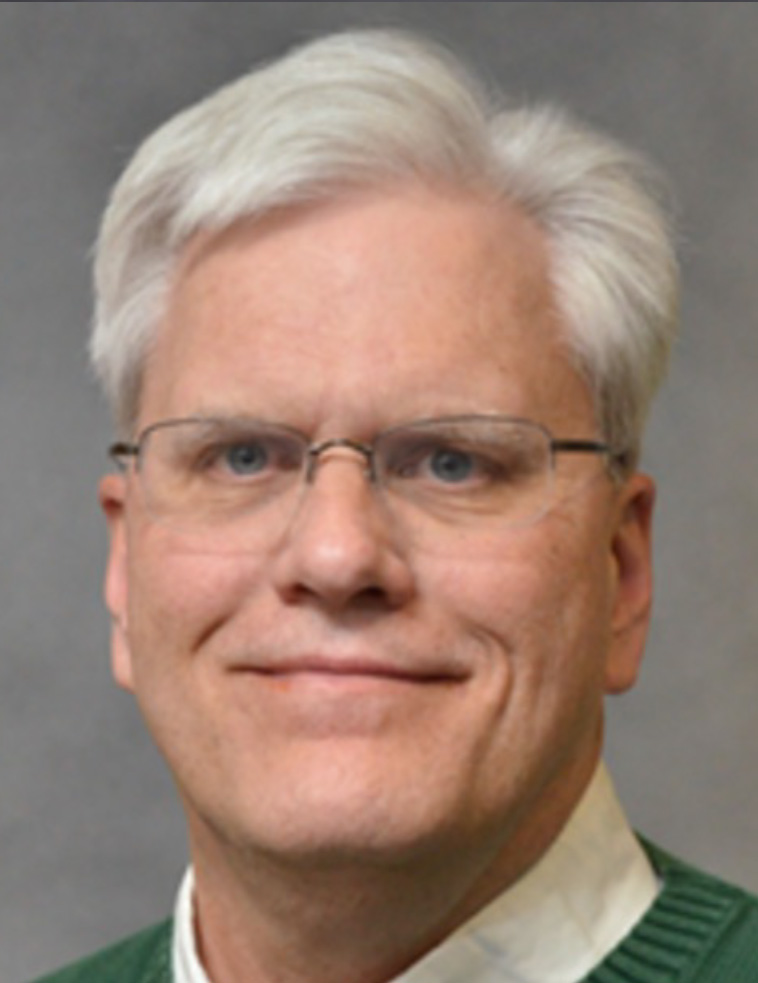
Robert Kratzke, MD
Professor of Medicine, John Skoglund Chair in Lung Cancer, University of Minnesota Medical School, University of Minnesota, Minneapolis, MN
Dr. Kratzke graduated from the University of Washington School of Medicine in 1983 and completed his residency training in Internal Medicine at the University of Wisconsin Hospital and Clinics in 1986. Between 1986 and 1988, he did research at the McArdle Laboratory for Cancer Research at the University of Wisconsin Madison in the laboratory of Dr. Jeff Ross. He was a Medical Oncology Fellow at the National Cancer Institute (NCI) of the National Institutes of Health from 1988 to 1991, and stayed at the NCI doing research with Dr Frederick Kaye until 1994. From 1993 through 1994, Dr. Kratzke was also an Assistant Professor of Medicine at the Uniformed Services University of the Health Sciences in Bethesda, MD. From 1994 to 2004, he was a Staff Physician at the Minneapolis VA Medical Center in the Section of Hematology/Oncology. He has spent his entire career in translational mesothelioma and lung cancer research beginning during his fellowship at the NCI-Navy Medical Oncology Branch (John Minna, Director). Based on his accomplishments in 2004 he was awarded the John Skoglund Chair for Lung Cancer Research at the University of Minnesota. In recent years he has redirected his research interests to projects involving oncolytic virotherapy and improving response to immunotherapy for lung cancer or mesothelioma therapy.
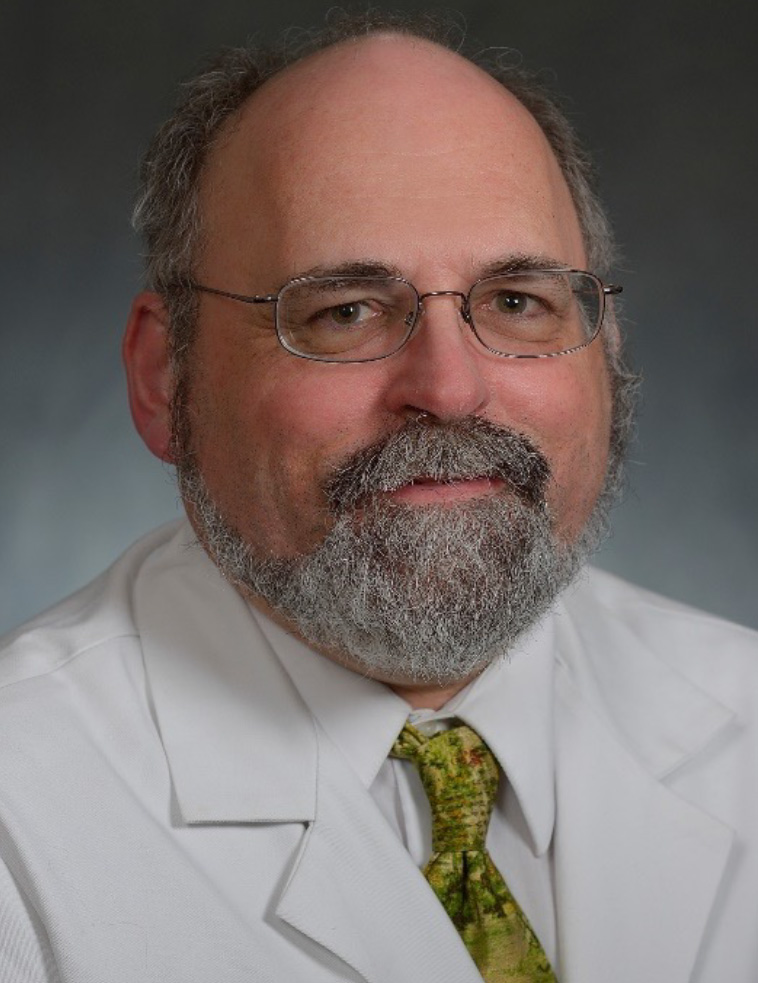
Corey J. Langer, MD, FACP
Director of Thoracic Oncology, Abramson Cancer Center ,Professor of Medicine, Perelman School of Medicine, University of Pennsylvania, Philadelphia, PA
Dr. Langer is a Professor of Medicine at the University of Pennsylvania, Perelman School of Medicine, where he serves as Clinical Director of Thoracic Oncology in the Abramson Cancer Center. Professor Langer received his medical degree from Boston University in 1981 and completed his residency in medicine at the Graduate Hospital, University of Pennsylvania, and his hematology/oncology fellowship at Presbyterian University of Pennsylvania and Fox Chase Cancer Center in 1987. Professor Langer served in the Oncology division of Fox Chase Cancer Center from 1986–2008, leading its Thoracic Oncology Program from 1994–2008. He moved to the University of Pennsylvania in 2008, where he currently leads clinical research efforts in thoracic malignancy as part of the Interdisciplinary Thoracic Oncology Program (I-TOP) and conducts research studies focused on the role of targeted therapy and immunotherapy in NSCLC. He also co-directs the Thoracic Translational Center of Excellence, where he concentrates on the clinical end of bench to bedside projects. Professor Langer is Co-Chair of the Medical Oncology Committee for NRG Cooperative Oncology Group and serves on the core thoracic committees of both NRG and ECOG. Professor Langer is a Fellow of the American College of Physicians and is a member of the American Society of Clinical Oncology (ASCO), the American Association for Cancer Research (AACR) and the International Association for the Study of Lung Cancer (IASLC). Since 2016, he has been Editor-in-Chief of the International Lung Cancer News (ILCN) under the aegis of the IASLC. For the past 34 years, since completing his fellowship, Professor Langer has led or co-led over 140 clinical trials in both small cell (SCLC) and non-small cell lung cancer (NSCLC), as well as mesothelioma and head and neck cancer. Professor Langer has contributed numerous articles and abstracts to the medical literature and is the author or co-author of over 270 peer-reviewed papers.
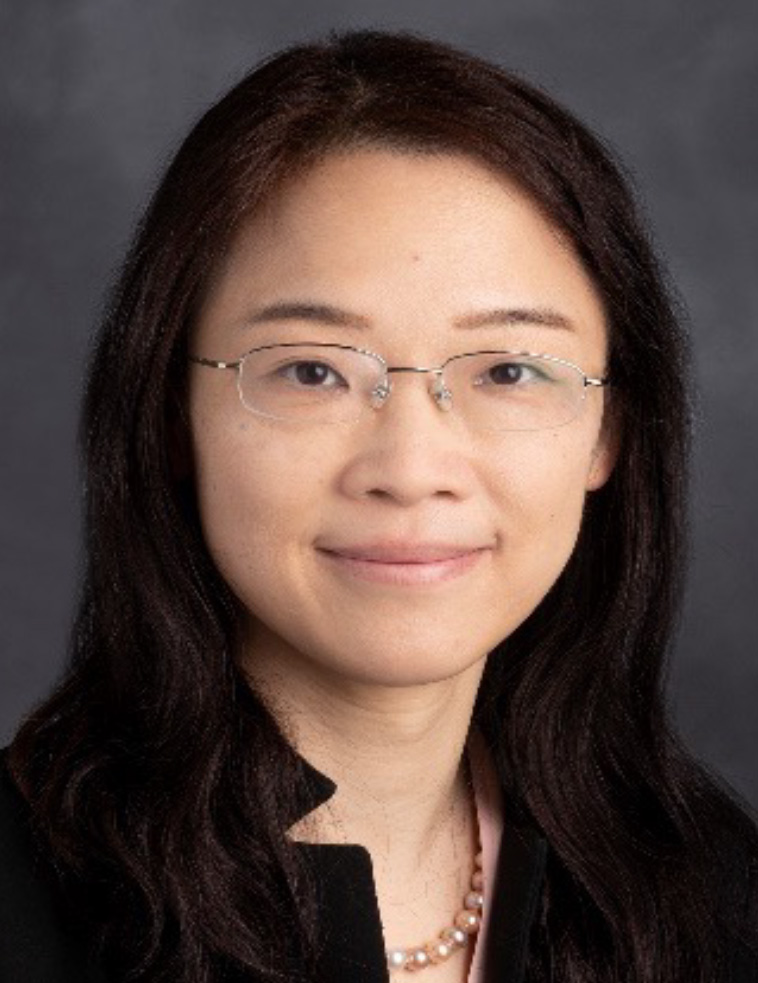
Xiuning Le, MD, PhD
Associate Professor, Department of Thoracic/Head and Neck Medical Oncology, Division of Internal Medicine, The University of Texas MD Anderson Cancer Center, Houston, TX
As Assistant Professor in the Thoracic/Head and Neck department Dr. Le has contributed her knowledge via trials, clinical journals and lectures with focus non-small cell lung cancer with actionable oncogenes. Le earned her medical degree from the Peking Union Medical College. She then went on to earn a degree in Biological and Biomedical Sciences at Harvard Medical School in Boston. She completed her internship and residency at The University of Massachusetts Medical Center in Worcester, MA, an additional residency at the University of Texas. Prior to joining the staff at M.D. Anderson, she also completed a fellowship at Beth Israel Deaconess Medical Center, Harvard Medical School. Board certified in both internal medicine and medical oncology, Dr. Le specializes in thoracic, head, and neck oncology. Dr. Le has published more than 40 articles in the field of lung and head and neck cancer. She was first- or last author of many high-impact papers, including New England Journal of Medicine, Cancer Discovery, Clinical Cancer Research and Journal of Thoracic Oncology. Just recently Dr. Le received the ASCO Young Investigator Award, SU2C-TVF Convergence Program, Claudia Adams Barr for Innovative Cancer Research, ASCO Career Development Award, Paul Calabresi NIH K12 Award and more.
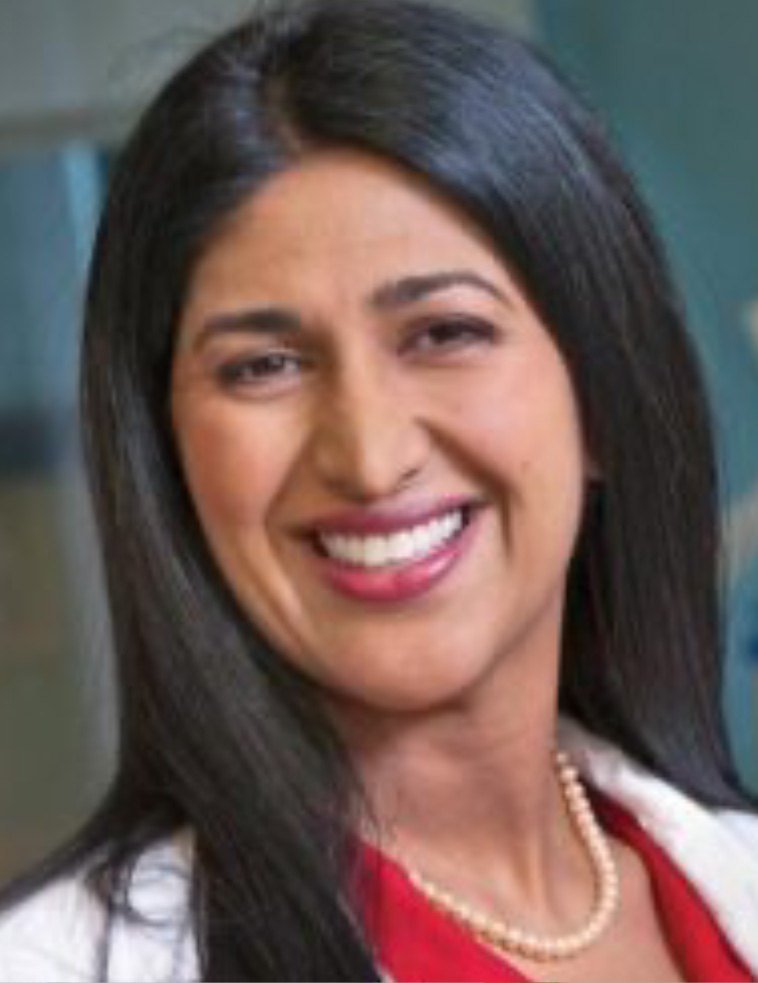
Natasha Leighl, MD, MMSc, FRCPC, FASCO
Lead Medical Oncologist, Clinician Investigator, Clinical Research Unit (CCRU), Princess Margaret Cancer Centre, Professor Department of Medicine, University of Toronto, Toronto, ON
Dr. Natasha Leighl leads the Thoracic Medical Oncology Group at the Princess Margaret Cancer Centre, and is Professor in the Department of Medicine, and Adjunct Professor in the Institute of Health Policy, Management and Evaluation at the University of Toronto. She holds the OSI Pharmaceuticals Foundation Chair in Cancer New Drug Development through the Princess Margaret Cancer Foundation. After receiving her MD from the University of Toronto, Canada, Dr. Leighl completed residencies in internal medicine at the University of Calgary and in medical oncology at the University of Toronto. She subsequently completed her fellowship in thoracic oncology at the Princess Margaret Hospital, Canada and a fellowship in clinical oncology at the University of Sydney, Australia. She received her Masters in Medical Science (MMSc) in clinical epidemiology at the University of Newcastle, Australia. Dr Leighl’s main interest is in developing new treatments in lung cancer and improving lung cancer diagnostics. She is involved in clinical studies of novel agents for the treatment of thoracic cancers, has led several international and cooperative group studies in lung cancer and has served as a member of the Lung Disease Site Group Executive of the Canadian Cancer Clinical Trials Group. She was Co-Chair of the CCTG Committee on Economic Analysis, Congress Co-President of the 2018 WCLC, and serves on multiple committees including the ASCO Thoracic Guidelines Advisory Group, is co-section editor of The Oncologist and Current Oncology, an editorial board member of the Journal of Thoracic Oncology, British Journal of Cancer, a member of the IASLC Quality and Value Committee, on the Scientific Advisory Board of the Lung Cancer Foundation of America, and was recently elected to the Board of Directors of the Americas Health Foundation.
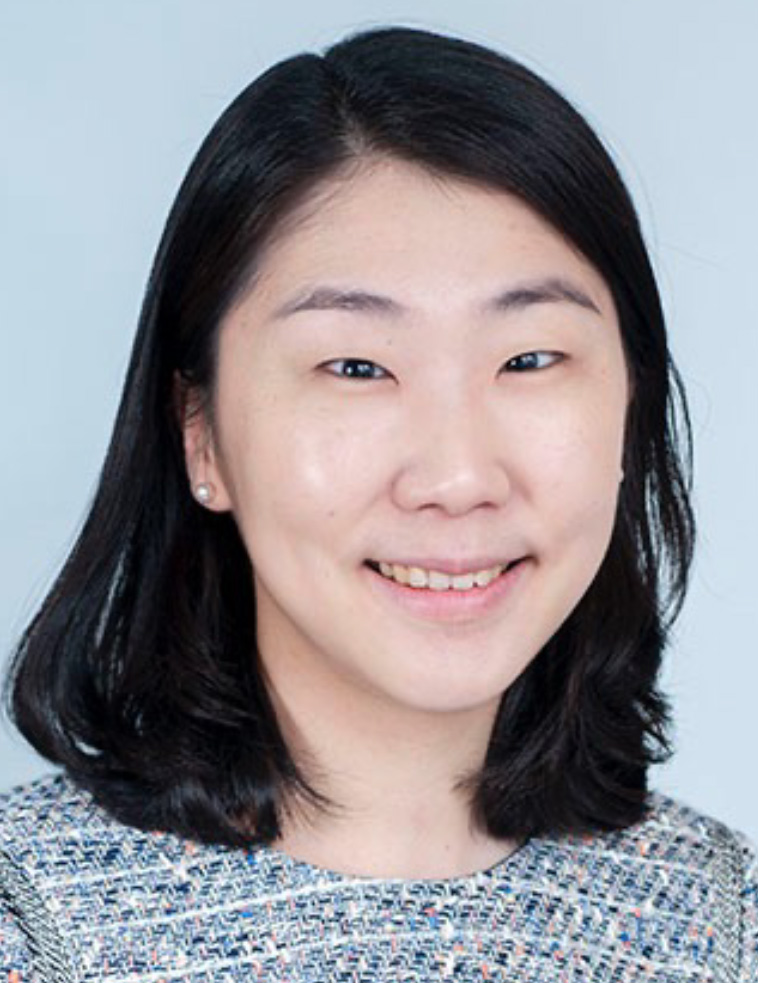
Jessica Lin, MD
Associate Professor, Medicine, Harvard Medical School, Clinical Assistant in Medicine, Hematology/Oncology, Massachusetts General Hospital, Boston, MA
Jessica J. Lin, MD, is an attending physician in the Center for Thoracic Cancers and Henri and Belinda Termeer Center for Targeted Therapies at Massachusetts General Hospital. She is an Associate Professor of Medicine at Harvard Medical School. Dr. Lin earned her bachelor’s degree in Biochemistry at Harvard College and medical degree from Harvard Medical School. She completed her internship and residency in internal medicine at Brigham and Women’s Hospital, serving as Chief Medical Resident at Brigham and Women’s Faulkner Hospital. She subsequently trained in the Dana-Farber/MGH joint hematology/oncology fellowship program. Dr. Lin cares for patients with lung cancer and other thoracic malignancies and additionally performs clinical and translational research. Dr. Lin’s major research interests include studying driver oncogene alterations in non-small cell lung cancer and development of resistance to targeted therapies. She leads clinical trials of novel targeted therapy and immunotherapy agents in lung cancer. Her work has been recognized by awards and grants from organizations such as the Conquer Cancer Foundation/American Society of Clinical Oncology, International Association for the Study of Lung Cancer, and prIME Oncology.
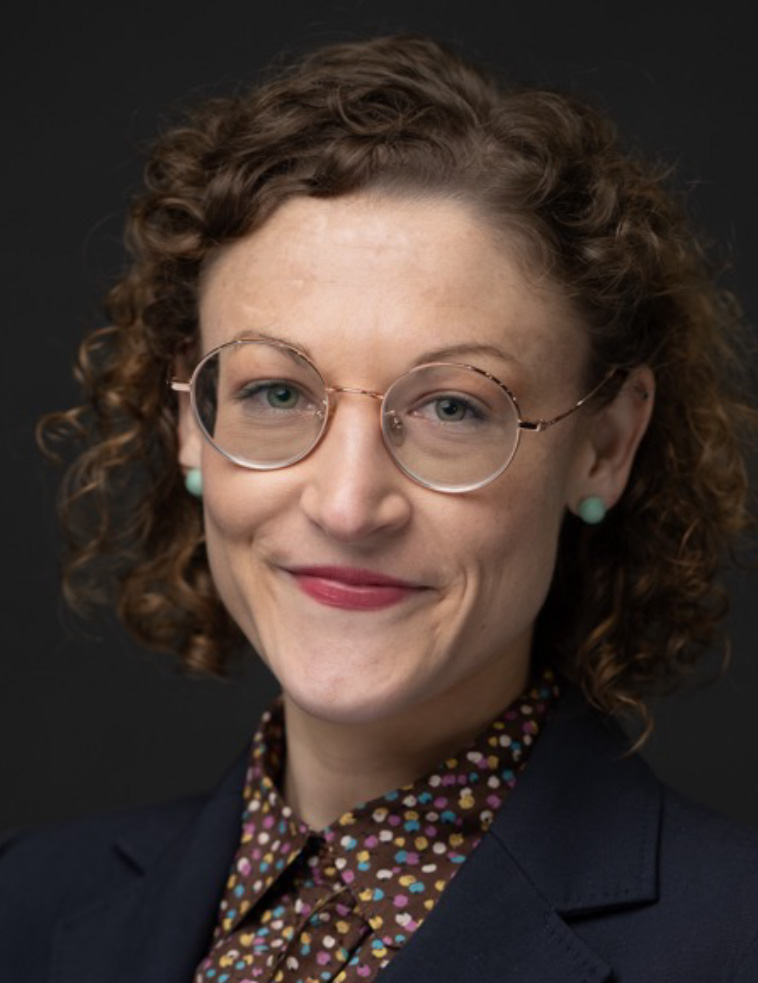
Jennifer Marks, MD
Instructor in Medicine, Harvard Medical School Affiliate Staff, Brigham and Women’s Hospital, Medical Oncologist, Dana-Farber Cancer Institute, Lowe Center for Thoracic Oncology, Boston, MA
Jennifer A. Marks, MD is a Thoracic Medical Oncologist at Dana-Farber Cancer Institute and Brigham and Women’s Hospital and an Instructor in Medicine at Harvard Medical School. She received her medical degree from Tulane University School of Medicine in New Orleans, LA. She completed her internship and residency in Internal Medicine at Emory University School of Medicine in Atlanta, GA, and her Medical Oncology fellowship at MedStar Georgetown University Hospital in Washington, DC. Dr. Marks’ professional interests lie in precision medicine and biomarker identification, thymic tumors, and cellular therapies in lung cancers. Her research in MET Exon 14 Skipping Mutations in Non-Small Cell Lung Cancer earned her prestigious recognitions including an Early Career Education Award at the 2022 World Conference on Lung Cancer and a Conquer Cancer Merit Award at the 2023 American Society of Clinical Oncology Conference. Her recent work investigates SEZ6 expression in neuroendocrine tumors and multicomplex immunofluorescent staining in thymic epithelial tumors. She developed a clinical trial protocol studying sacituzumab govitecan in advanced thymoma and thymic carcinoma at the AACR/ASCO Methods in Clinical Research Workshop, a trial that is actively enrolling. Dr. Marks is dedicated to advancing personalized care in thoracic oncology, driving innovation through clinical and translational research, and improving patient outcomes worldwide.
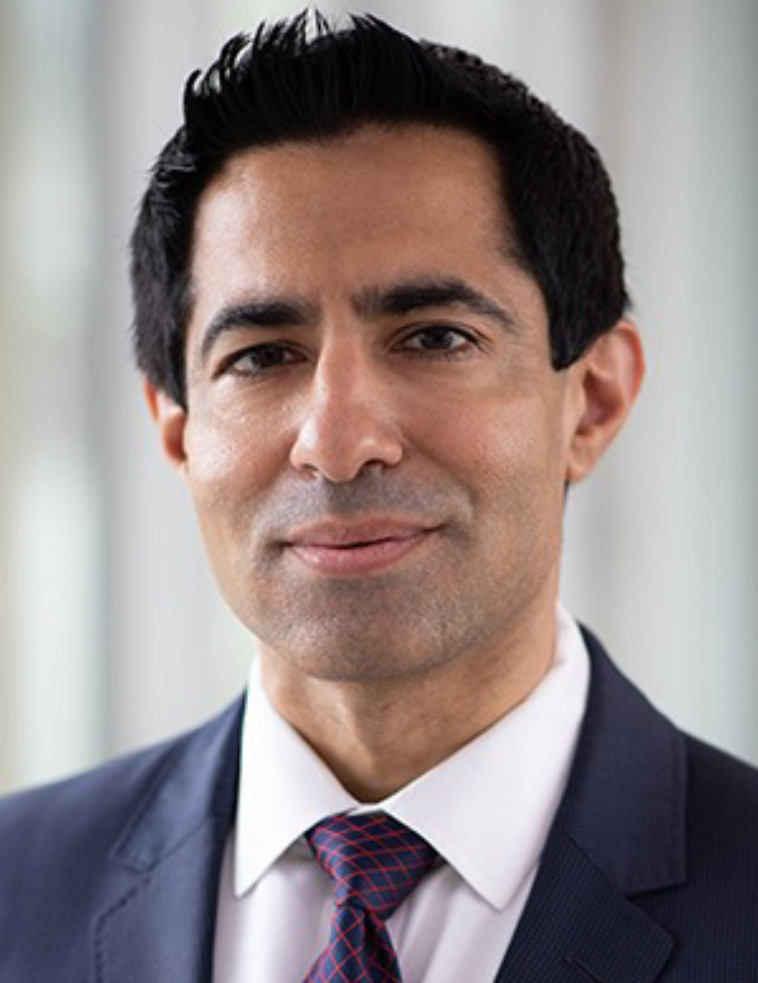
Nitin Ohri, MD, MS
Professor, Radiation Oncology, Montefiore Einstein, Bronx, NY
Dr. Nitin Ohri is Professor, Radiation Oncology at Montefiore Einstein. He is a radiation oncologist with a clinical focus on treating lung and gastrointestinal cancers. Dr. Ohri earned his Doctor of Medicine from Washington University in 2007. He then completed an internship in internal medicine at Barnes-Jewish Hospital in 2008 and then participated in a radiation oncology residency at Thomas Jefferson University, completing it in 2012. Dr. Ohri earned his Master’s degree from the Clinical Research Training Program at Montefiore Einstein in 2015. Dr. Ohri’s research focuses on incorporating novel imaging metrics in the implementation of radiotherapy for non-small cell lung cancer, understanding how physical activity data can be leveraged to enhance the value of cancer care, and exploring novel combinations of immunotherapy and radiotherapy. Dr. Ohri has designed numerous ongoing and completed investigator-initiated trials that test novel functional imaging-based radiotherapy delivery strategies and new combinations of immunotherapy and radiotherapy. He is also leading a series of trials incorporating continuous activity monitoring with wearable devices into the care of cancer patients. Dr. Ohri is board certified in Radiation Oncology by the American Board of Radiology and is a member of the American Society for Therapeutic Radiology and Oncology, the American Society for Clinical Oncology and the American Association for Cancer Research. He has won multiple awards, including numerous “Outstanding Reviewer” Awards from the International Journal of Radiation Oncology, Biology, Physics, the Cancer Care Delivery Research Pilot Project Award from NRG Oncology and the Fellowship Award from the Empire Clinical Research Investigator Program.
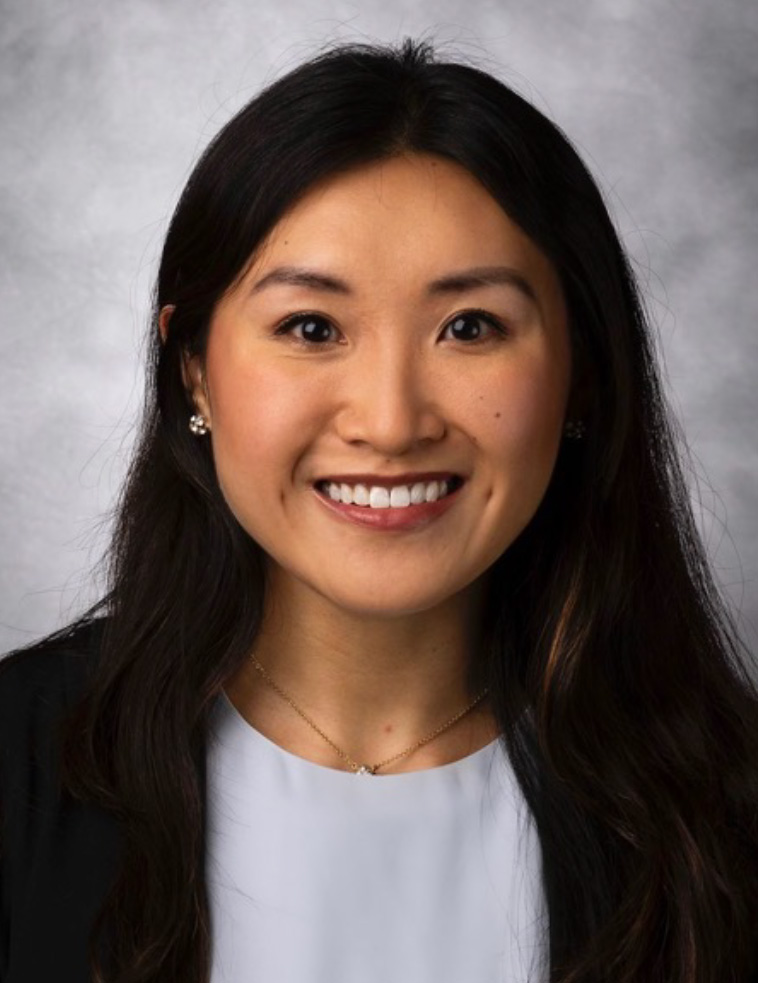
Kelsey Pan, MD, MPH
MD Anderson Chief Fellow of Education, Hematology/Oncology Fellow, PGY-6, Division of Cancer Medicine, MD Anderson Cancer Center, Houston, TX
Kelsey Pan is currently a third-year Hematology/ Oncology fellow at MD Anderson Cancer Center with a primary focus on clinical/ translational research in non-small cell lung cancer. Her interests within thoracic malignancies include clinical outcomes of novel targeted therapies, CNS metastases and LMD in oncogene-driven NSCLC. She will be joining Emory University Winship Cancer Center this fall as a thoracic medical oncologist and clinical investigator. She is interested in continuing her work in treating CNS metastases in NSCLC by designing clinical trials of intrathecal therapies and novel TKIs with enhanced CNS penetrance.

Cathleen Park, MD
Assistant Clinical Professor (Thoracic Oncology), Division of Hematology/Oncology, University of California Irvine Health, Orange, CA
Cathleen Park is a board-certified Medical Oncologist with expertise in treating thoracic malignancies at the Chao Family Comprehensive Cancer Center at the University of California, Irvine. Her research interests encompass targeted therapy, early phase clinical trials, and the application of plasma-based cancer biomarkers.
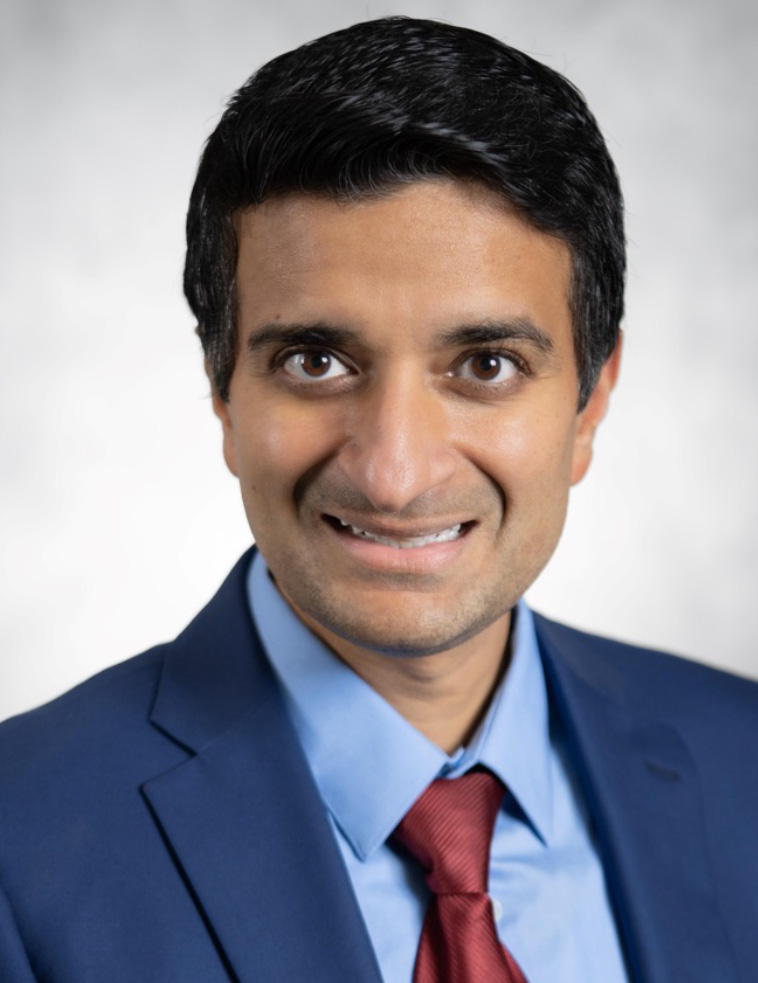
Sandip P. Patel, MD
Professor, Member Thoracic Oncology, Cancer Immunotherapy Programs, Department of Medicine, Division of Hematology/Oncology UC San Diego Moores Cancer Center, La Jolla, CA
Sandip Patel, MD is a Professor at UCSD and a Medical Oncologist focusing on early phase clinical trials of immunotherapy and thoracic oncology. He is the leader for the Experimental Therapeutics (Phase 1) Program and Deputy Director for the Center for Precision Immunotherapy at UCSD. He is co-leader of the NRG Developmental Therapeutics Committee and co-leader of the University of California Lung Cancer Consortium.
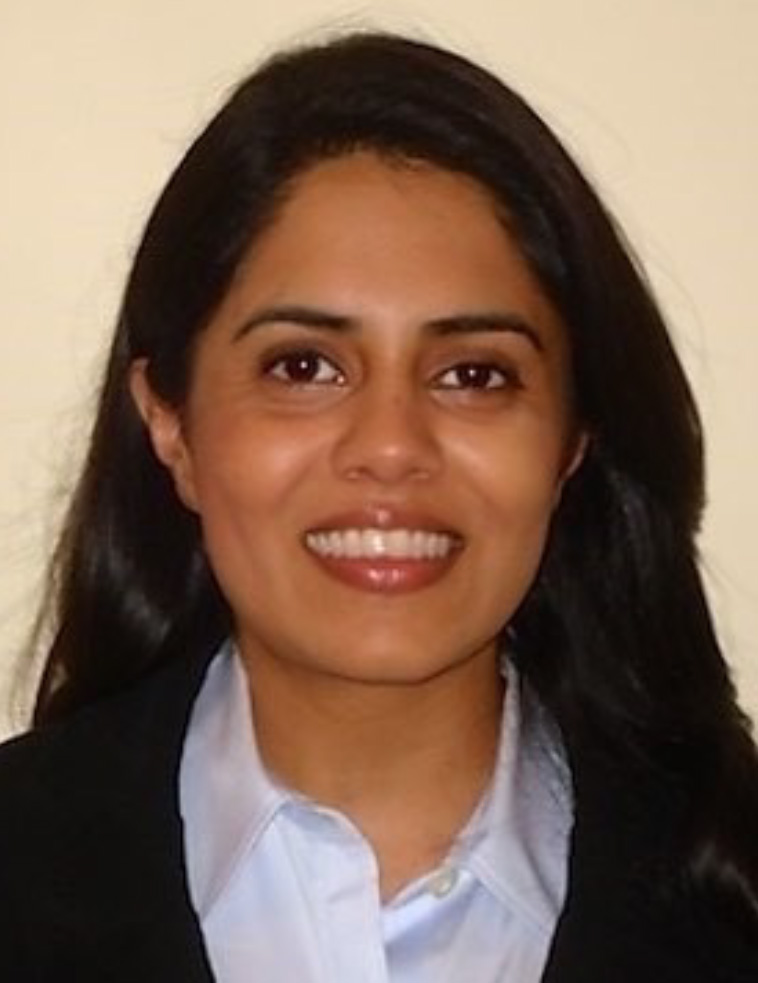
Shetal A. Patel, MD, PhD
Assistant Professor, Division of Oncology, University of North Carolina at Chapel Hill, Lineberger Comprehensive Cancer Center, Chapel Hill, NC
Shetal Patel, MD, PhD, has a clinical focus in treating patients with thoracic and head/neck malignancies. Her research interests include translational studies and clinical trials to improve treatment options for patients, with a particular focus on novel immunotherapy combinations, genomic profiling, and targeted therapies. She leads the lung cancer clinical trials research group and co-leads the Precision Oncology Program at UNC Lineberger Comprehensive Cancer Center.
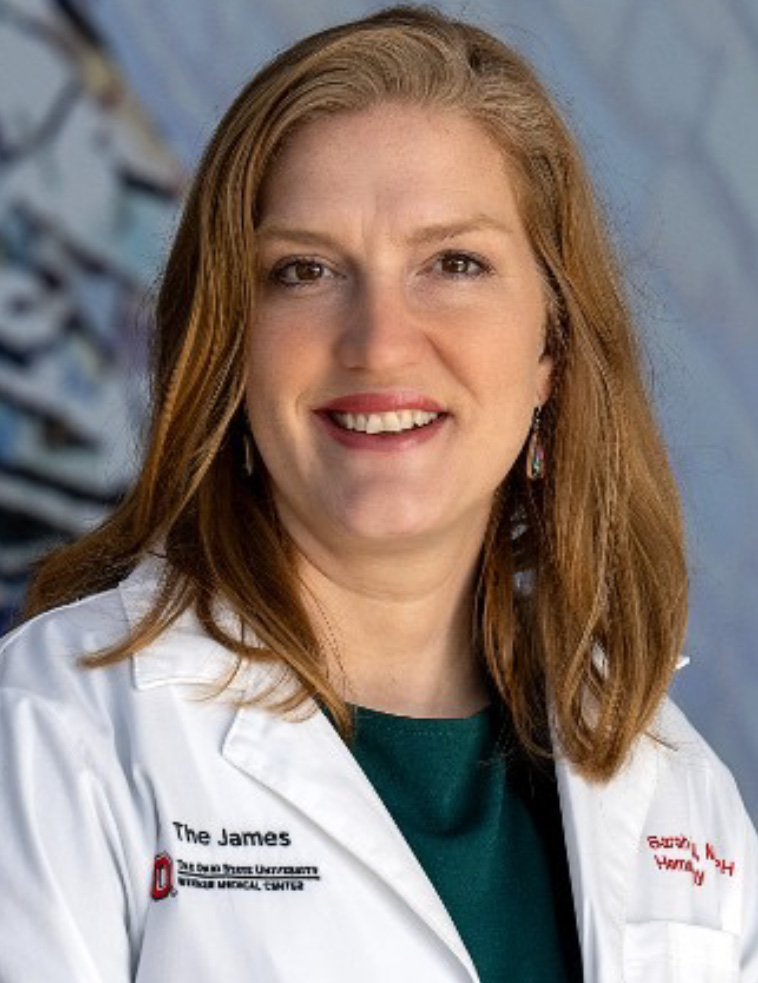
Carolyn J. Presley, MD MHS
Associate Professor with Tenure Section, Chief, Thoracic Medical Oncology, Thoracic Oncology/Geriatric Oncology, Co-Director of the Cancer and Aging Resiliency (CARE) Clinic Associate Medical Director of the Oncogeriatrics Program, The Ohio State University Comprehensive Cancer Center, The James Cancer Hospital/Solove Research Institute, Columbus, OH
Dr. Carolyn Presley is an Associate Professor on the tenure track in the Division of Medical Oncology/Department of Internal Medicine at The Ohio State University, Comprehensive Cancer Center and The James Cancer Hospital/Solove Research Institute. She earned her medical degree from Dartmouth Medical School and completed residency in Internal Medicine and combined fellowship in Geriatric Oncology and Hematology at Yale University. Dr. Presley is an active member of the Ohio State University Comprehensive Cancer Program, The American Geriatrics Society, and the American Society of Clinical Oncology. She has been a long-time member of the international Cancer and Aging Research Group (CARG). She currently leads studies focused on maintaining functional independence among older adults with lung cancer. These studies incorporate geriatric assessment, embedded palliative care, and interventions to improve risk factors for treatment toxicity and functional decline.
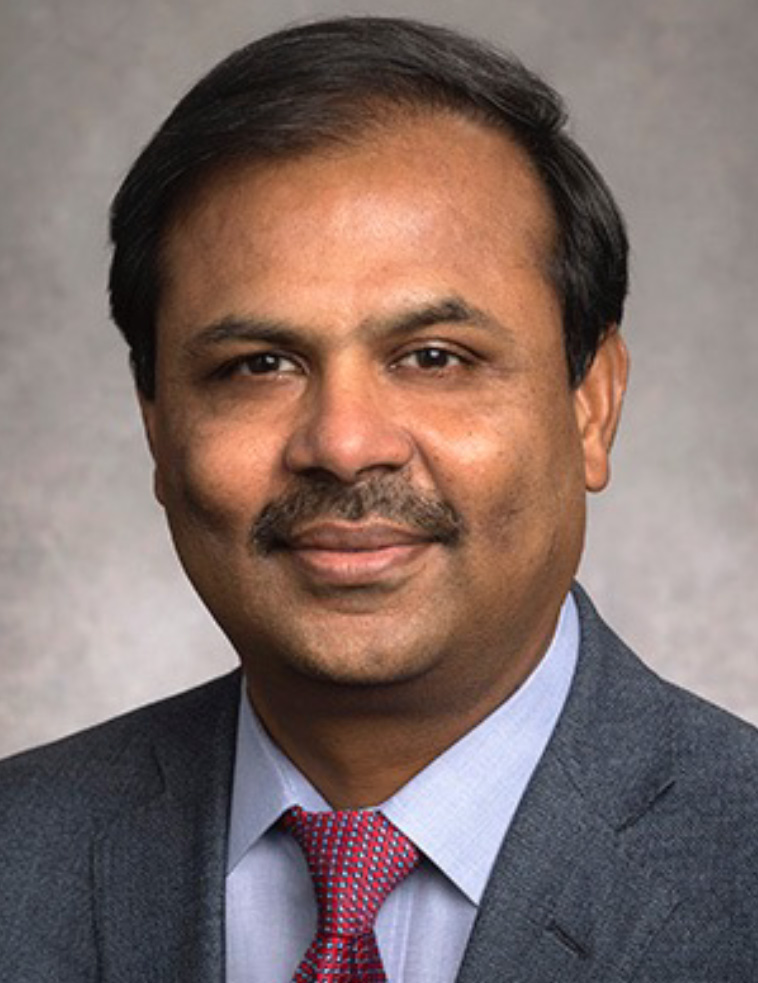
Suresh Ramalingam, MD, FACP, FASCO
Professor, Department of Hematology and Medical Oncology Roberto C. Goizueta, Distinguished Chair for Cancer Research, Winship Cancer Institute, Emory University School of Medicine, Atlanta, GA
Board certified in medical oncology, Suresh S. Ramalingam, MD, FACP, FASCO, is nationally recognized as an investigator and a physician in the area of small cell and non-small cell lung cancer. Dr. Ramalingam serves as executive director of Winship Cancer Institute of Emory University and associate vice president for cancer of Woodruff Health Sciences Center. He is past-president of the Georgia Society of Oncology and a member of the board of Georgia CORE. He is a Fellow of the American Society of Clinical Oncology and a Georgia Cancer Coalition Distinguished Cancer Scholar. Dr. Ramalingam holds professional memberships with American Society of Clinical Oncology, American Association for Cancer Research, and International Association of Lung Cancer Study. He plays an active role in the ECOG-ACRIN Cancer Research Group as the Chair of the Thoracic Malignancies Committee and as the Deputy Chair of Therapeutics Programs. He serves on several international, national and institutional committees. He is a member of the Medical Oncology Board Exam Committee for American Board of Internal Medicine.
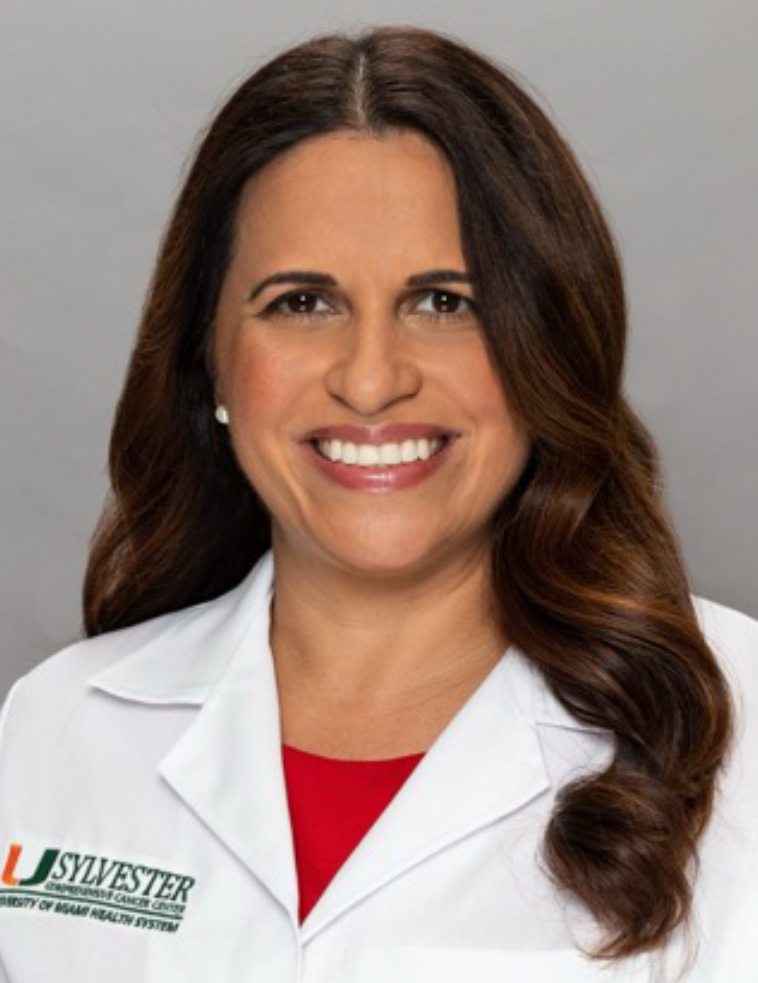
Estelamari Rodriguez, MD, MPH
Clinical Research Lead Thoracic Site Disease Group, Associate Director for Community Outreach, Sylvester Comprehensive Cancer Center, University of Miami Miller School of Medicine, Aventura, FL
Dr. Estelamari Rodriguez is Co-Lead of the Thoracic Site Disease Group and Associate Director of Community Outreach and of the NCI-designated Sylvester Comprehensive Cancer Center at the University of Miami Miller School of Medicine. She is an active member of the Sylvester Experimental Therapeutics Program and has served as principal investigator of several early phase and cooperative group clinical trials. Dr. Rodriguez received her bachelor’s degree from Columbia College and her medical degree from State University of New York (SUNY) Downstate College of Medicine. She completed her internal medicine residency at Columbia University’s New York- Presbyterian Hospital and her medical oncology fellowship at the University of Pennsylvania. Dr. Rodriguez also has a master’s degree in Public Health from the Universidad Autonoma de Madrid, Spain. She has given numerous lectures as invited speaker on issues related to lung cancer and healthcare disparities.
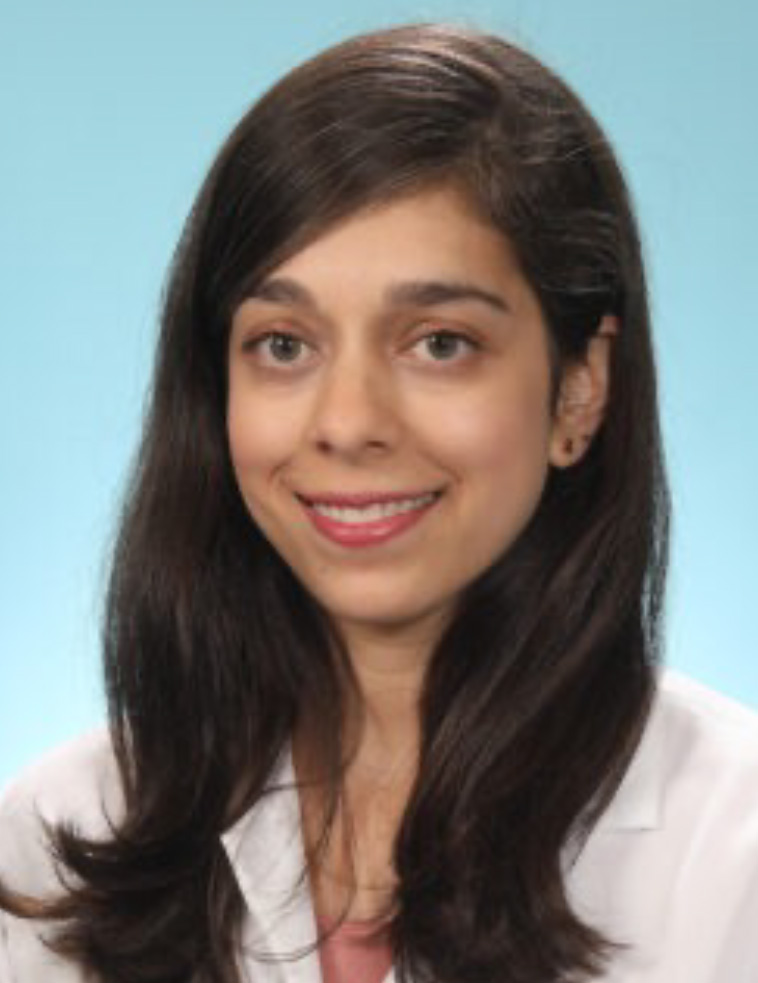
Anjali Rohatgi, MD, PhD
Assistant Professor, Medicine, Division of Internal Medicine, Section of Medical Oncology, Washington University, St. Louis, MO
Dr. Anjali Rohatgi is an Assistant Professor of Medicine in the Division of Medical Oncology at Washington University. She received her MD and completed her residence in Internal Medicine from Washington University in St. Louis School of Medicine. Following which, she completed her fellowship in Hematology/Oncology from University of Pittsburgh Medical Center. Dr. Rohatgi has clinical interest in applying targeted therapies and immunotherapy to improve survival outcomes for patients with metastatic non-small cell lung cancer.
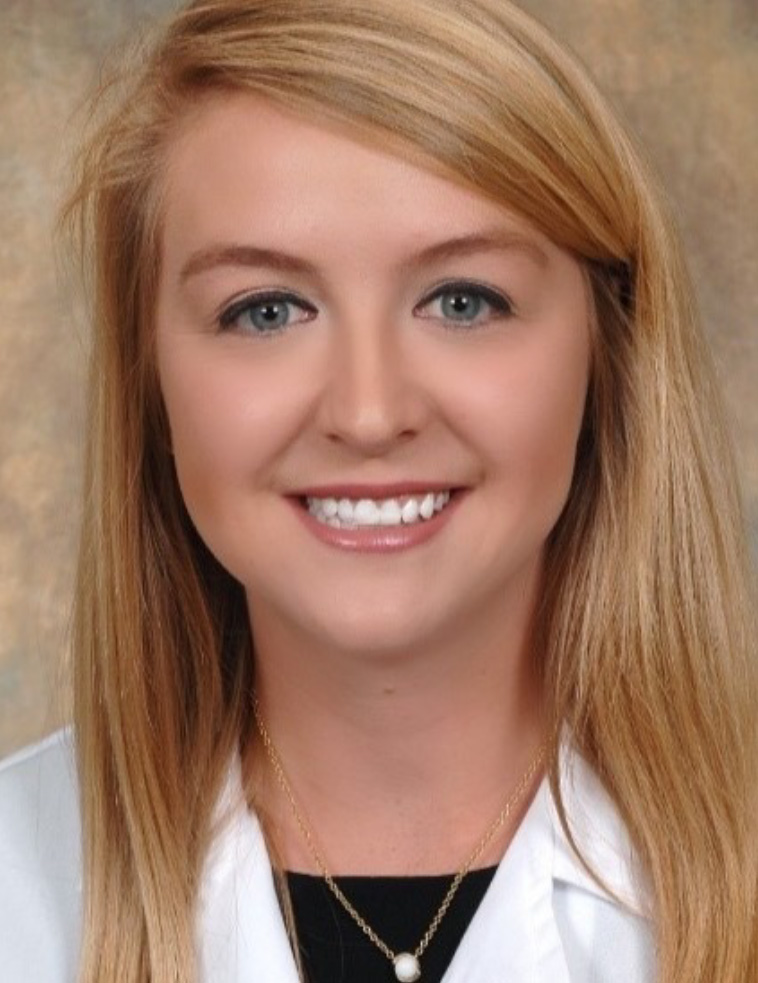
Logan N. Roof, MD, MS
Assistant Professor, Thoracic Medical Oncology, The Ohio State University Comprehensive Cancer Center, Columbus, OH
Dr. Logan Roof is an Assistant Professor in Thoracic Medical Oncology at The Ohio State University Comprehensive Cancer Center. She graduated from Medical University of South Carolina College of Medicine and completed her residency in Internal Medicine and fellowship in Hematology/Oncology from University of Cincinnati and Cleveland Clinic Foundation, respectively. Dr. Roof’s research is focused on advancing care for patients with mesothelioma, improving immunotherapy and targeted therapy techniques, and expanding access to lung cancer screening. She specializes in thoracic malignancies including lung cancer, mesothelioma, and thymic cancers. She has a particular interest in treating patients with malignant pleural mesothelioma.
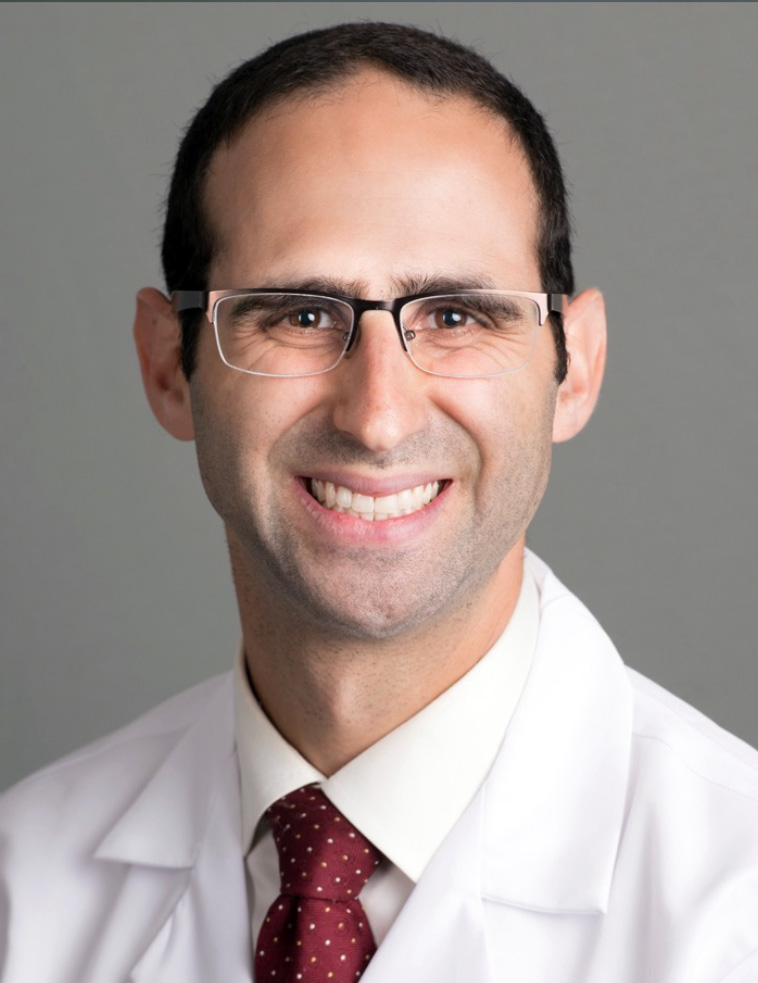
Ari J. Rosenberg, MD
Assistant Professor of Medicine, Section of Hematology/Oncology, Department of Medicine, University of Chicago, Chicago, IL
Dr. Rosenberg is currently an Assistant Professor of Medicine at the University of Chicago. He completed his residency in internal medicine at the University of Illinois at Chicago and his fellowship training in medical oncology and hematology at Northwestern University. He is a medical oncologist and clinical investigator focusing on head and neck cancer. Dr. Rosenberg develops and conducts clinical trials that incorporate novel tissue and blood-based biomarkers, and he has a particular focus on novel therapies and immunotherapeutic strategies, as well as developing multimodality treatment paradigms to reduce treatment-related toxicity.
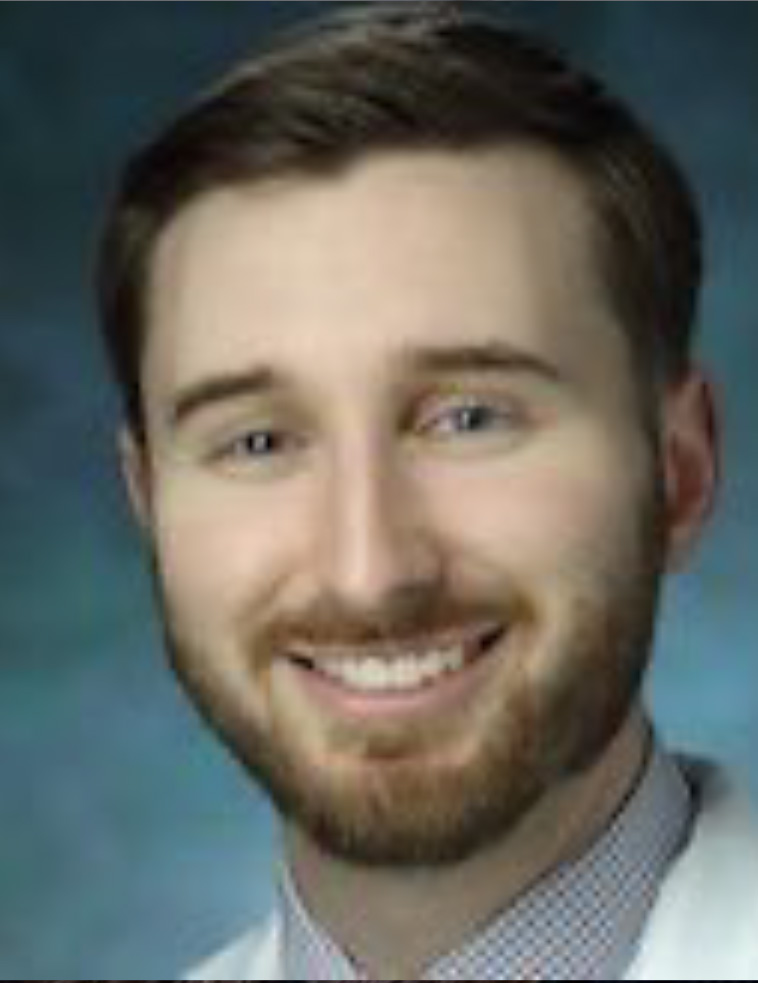
Samuel S. Rosner, MD
Assistant Professor of Medicine, Marlene & Stewart Greenebaum Cancer Center, University of Maryland, Baltimore, MD
Dr. Rosner is a thoracic oncologist with expertise in peri-operative clinical trial design and immunotherapeutic drug development for early and advanced non-small cell lung cancer (NSCLC). Currently, he serves as an assistant professor of medicine at the University of Maryland Marlene & Stewart Greenebaum Cancer Center. In his clinical role, he treats patients with thoracic malignancies. Prior to joining faculty at the University of Maryland, he completed his post-graduate oncology fellowship training at the Johns Hopkins Sidney Kimmel Comprehensive Cancer Center (SKCCC), during which time he served as Chief Oncology Fellow from 2022-2023. One of Dr. Rosner’s research goals focuses on improving peri-operative outcomes for patients with early-stage non-small cell lung cancer (NSCLC). Key research efforts in this treatment space include evaluating the role of immune checkpoint blockade in the perioperative management of early-stage NSCLC, as well as assessing the surrogacy of pathologic endpoints, such as pathological complete response (pCR), in terms of long-term clinical outcomes for patients who receive neoadjuvant therapy. Dr. Rosner is also actively involved in the conception, design and implementation of early-phase clinical trials testing novel immunotherapeutic strategies for both early and advanced stage NSCLC. For his effort evaluating the immunologic responses of KRAS-mutant NSCLC, he was awarded the 2022 ASCO Young Investigator Award. In addition, his work evaluating the response of oncogene-driven NSCLC to neoadjuvant immune checkpoint blockade was recognized with an ASCO Merit award at the 2023 ASCO annual meeting. Dr. Rosner is an active member of the American Society of Clinical Oncology (ASCO) and International Association for the Study of Lung Cancer (IASLC).
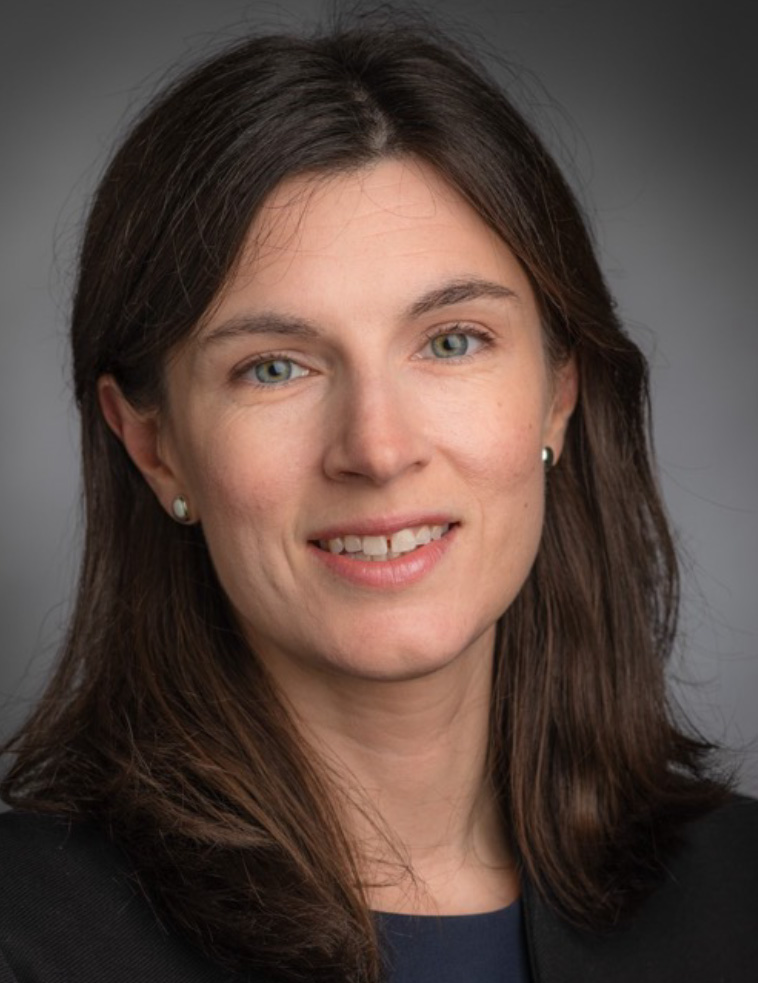
Julia Rotow, MD
Medical Oncologist, Dana-Farber Cancer Institute, Lowe Center for Thoracic Oncology, Assistant Professor of Medicine, Harvard Medical School, Boston, MA
Dr. Rotow received her MD from the UCLA David Geffen School of Medicine. She completed her residency training in Internal Medicine at the Massachusetts General Hospital and her fellowship training in Hematology/Oncology at the University of California, San Francisco. She practices as a thoracic oncologist at the Dana-Farber Cancer Institute where she is and clinical director of the Lowe Center for Thoracic Oncology and an Assistant Professor at Harvard Medical School. Her research interests include the development of targeted therapies for the treatment of oncogene-driven lung cancer.
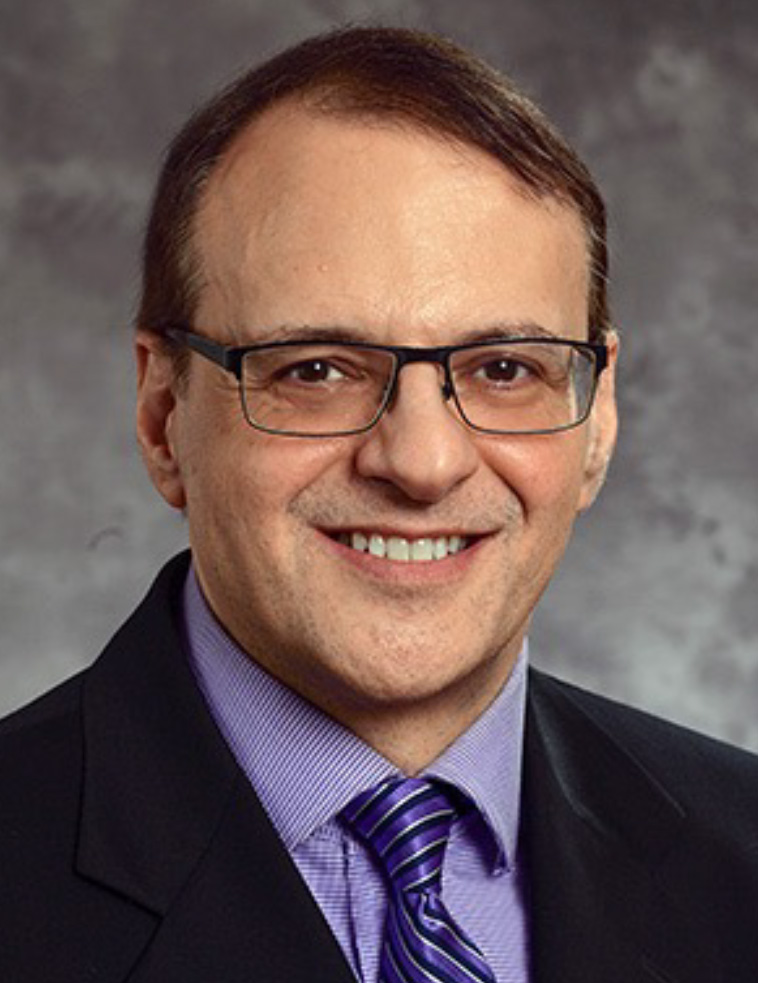
Nabil Saba, MD, FACP
Professor and Vice Chair for Quality and Safety, Department of Hematology and Medical Oncology, Emory University School of Medicine, Co-Director, Head and Neck Cancer Multidisciplinary Program, Winship Cancer Institute of Emory University, Atlanta, GA
Nabil F. Saba, MD, FACP, is an internationally recognized expert in the treatment of head and neck cancers. Dr. Saba is professor and vice chair in the Department of Hematology and Medical Oncology, and the Inaugural Lynne and Howard Halpern Chair in Head and Neck Cancer Research. He holds a joint appointment as professor in the Department of Otolaryngology at Emory University School of Medicine. He serves as director of the Head and Neck Cancer Medical Oncology Program and is co-leader of the Multidisciplinary Head and Neck Program at Winship Cancer Institute of Emory University. Dr. Saba earned his Medical Degree from the American University of Beirut Medical School. He completed a Residency in Internal Medicine at Tufts University School of Medicine in Boston, and a Clinical Fellowship in Hematology and Oncology at Brown University School of Medicine. He subsequently completed a Bone Marrow Transplant Fellowship at the University of Toronto Princess Margaret Hospital in Toronto, Canada. Dr. Saba is a well-recognized expert in immunotherapy for head and neck cancer and upper aero-digestive malignancies. His work is focused on translational research and the study and development of novel therapeutic agents and modalities in these diseases. He has been principal investigator in more than 50 clinical trials and chairs national as well as investigator initiated multi-institution studies focusing on novel approaches for treating head and neck and esophageal cancer. Dr Saba has been instrumental in establishing the head and neck cancer research working group at Winship Cancer Institute and is the contact principal investigator of the Lead Academic Participating Site (LAPS) grant of the NCI’s National Clinical Trials Network (NCTN).

Joshua K. Sabari, MD
Assistant Professor, Department of Medicine, NYU Grossman School of Medicine, NYU Langone Health Director, High Reliability Organization Initiative Perlmutter Cancer Center, New York, NY
Dr. Sabari is an Assistant Professor of Medicine, Thoracic Medical Oncologist and member of the Phase I Experimental Therapeutics Group in the Department of Medical Oncology at New York University School of Medicine, NYU Langone Health Perlmutter Cancer Center. Dr. Sabari’s research focus includes developing new treatments for people with lung cancers. His goal is to develop biomarker-driven clinical trials that offer patients unprecedented access to novel therapies and personalized treatments.
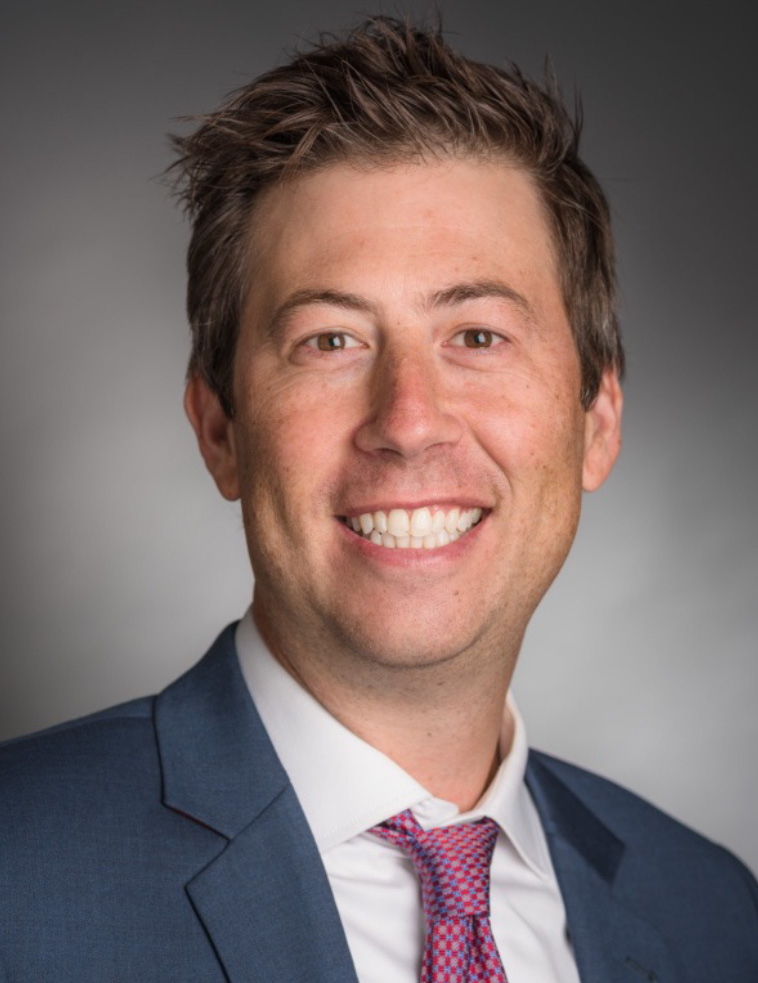
Jacob Sands, MD
Assistant Professor, Medicine, Harvard Medical School Physician, Thoracic Oncology, Dana-Farber Cancer Institute, Boston, MA
Dr. Jacob Sands joined the faculty in the Lowe Center for Thoracic Oncology at Dana-Farber in 2017. He received his MD from the University of Cincinnati in 2005. He completed his residency in internal medicine at the University of California, Davis and fellowship training in hematology/oncology also at the University of California, Davis. His research focuses on improved diagnostics and treatments for small cell lung cancer as well as improving lung screening and assisting in the development of lung screening programs throughout the country. Dr. Sands conducts clinical trials with novel treatment options with particular focus on small cell lung cancer and antibody drug conjugates. He leads the small cell lung cancer clinical research program at DFCI and has helped develop multiple protocols for small cell lung cancer trials. His largest clinical trial is an NCI-sponsored adjuvant non-small cell lung cancer study incorporating immunotherapy either concurrent with chemotherapy or sequential after chemotherapy. Dr. Sands was a member of the committee that developed and oversaw a benchmark lung screening program that has become a model for program development throughout the country. He is a co-founder and President of the Rescue Lung Society, a 501(c)3 non-profit medical society focused on advancing lung cancer screening.
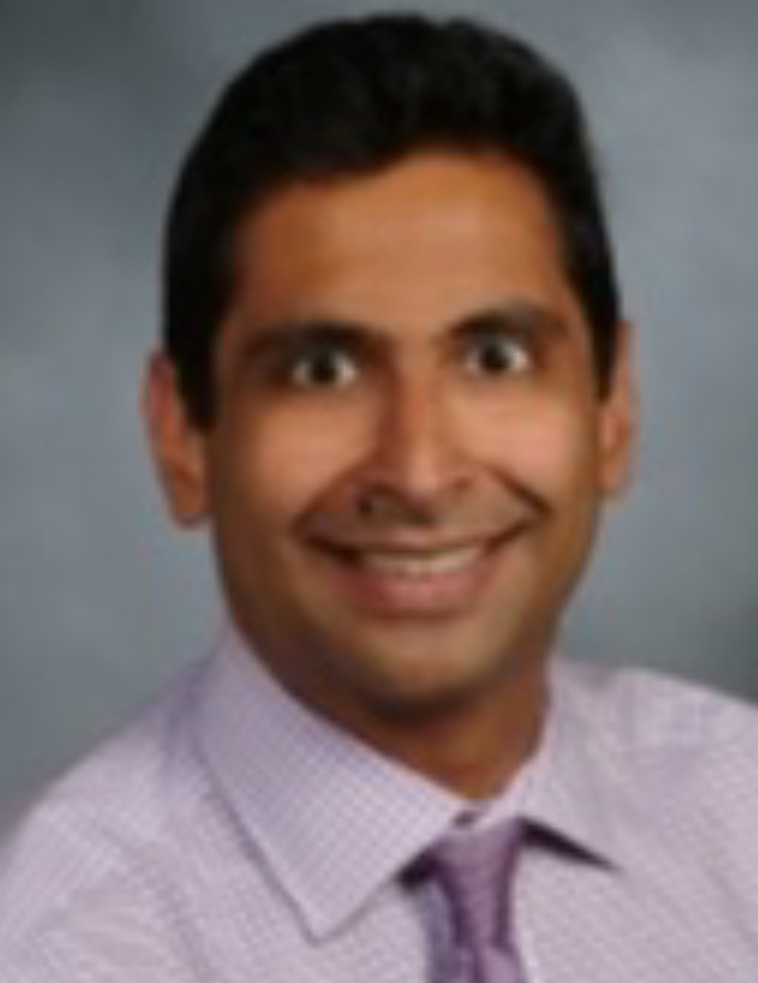
Ashish Saxena, MD, PhD
Associate Professor of Clinical Medicine, Weill Cornell Medical College, New York, NY
Dr. Saxena is an Assistant Professor of Medicine at Weill Cornell Medical College and Assistant Attending Physician at the NewYork-Presbyterian Hospital. He graduated from the Medical Scientist Training Program at Stony Brook University, receiving his MD and a PhD in Genetics. Following this he completed his residency in internal medicine at Montefiore Medical Center and fellowship in Hematology/Oncology at Weill Cornell Medical College-New York-Presbyterian Hospital. After fellowship Dr. Saxena worked as a post-doctoral research fellow at the Sloan Kettering Institute of the Memorial Sloan Kettering Cancer Center where his research focused on the study of exosomes. He returned to Weill Cornell Medical College in 2015 to join the faculty of the Division of Hematology and Medical Oncology in their Thoracic Oncology program. Dr. Saxena’s clinical and research interests have been in the study and management of different forms of lung cancer. He currently treats patients with non-small cell and small-cell lung cancers, mesothelioma, thymoma, and sarcomas of the lung. He is involved in both clinical and laboratory research, collaborating with physicians and scientists at Weill Cornell as well as other institutions.
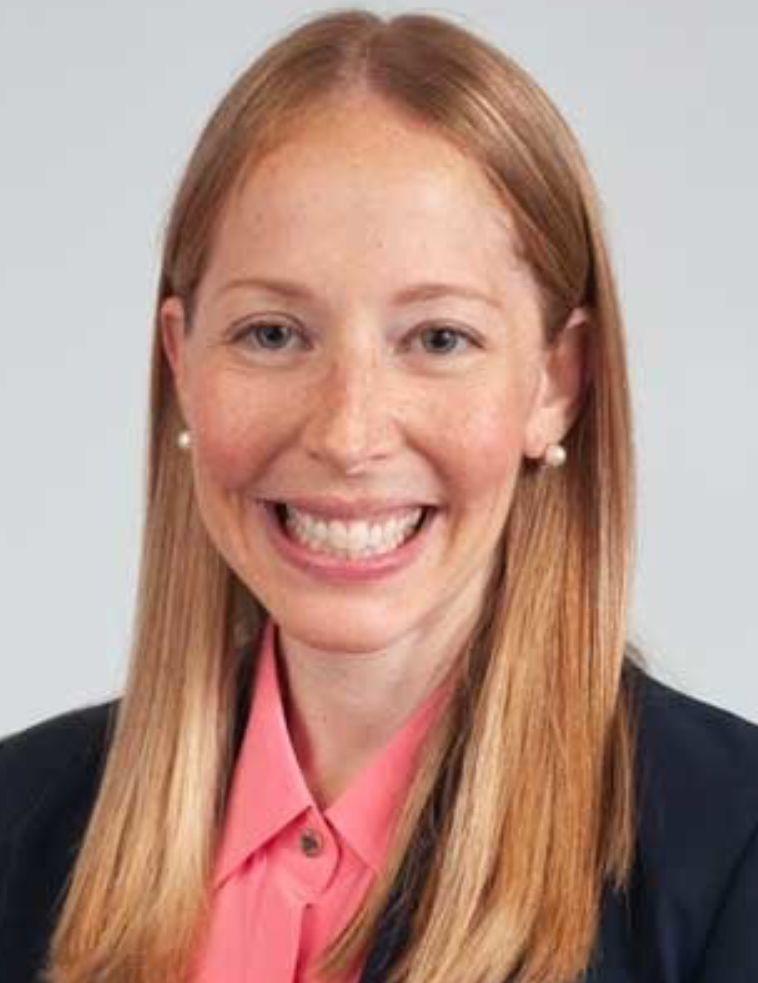
Jaime Schneider, MD, PhD
Attending Physician, Center for Thoracic Cancers, MGH Cancer Center, Assistant in Medicine, Massachusetts General Hospital, Instructor in Medicine, Harvard Medical School, Boston, MA
Dr. Jaime Schneider is a medical oncologist specializing in the care of patients with thoracic malignancies at the Massachusetts General Hospital (MGH) in Boston, MA. She is an instructor in medicine at Harvard Medical School where she uses integrative metabolomics approaches to study metabolic dependencies in lung cancer. Dr. Schneider received her MD and PhD degrees from the Albert Einstein College of Medicine and completed her residency training in Internal Medicine at MGH. Dr. Schneider then matriculated into the Hematology/Oncology fellowship program at Harvard where she trained as a medical oncologist at the Dana-Farber Cancer Institute and MGH Cancer Center. She joined the laboratory of Dr. Marcia Haigis at Harvard Medical School for her post-doctoral work to investigate mechanisms of cancer resistance through metabolic reprogramming. She is the recipient of research awards from organizations including A Breath of Hope Lung Foundation, Lung Cancer Research Foundation, ALK Positive, EGFR Resisters, American Cancer Society, AACR, and the IASLC. The primary focus of Dr. Schneider’s research is to develop novel therapeutic strategies for patients with advanced lung cancers. Her basic/translational research efforts are dedicated to the study of resistance mechanisms in molecularly defined subsets of lung cancer. The ultimate goal of her research is to improve outcomes for patients living with lung cancer.
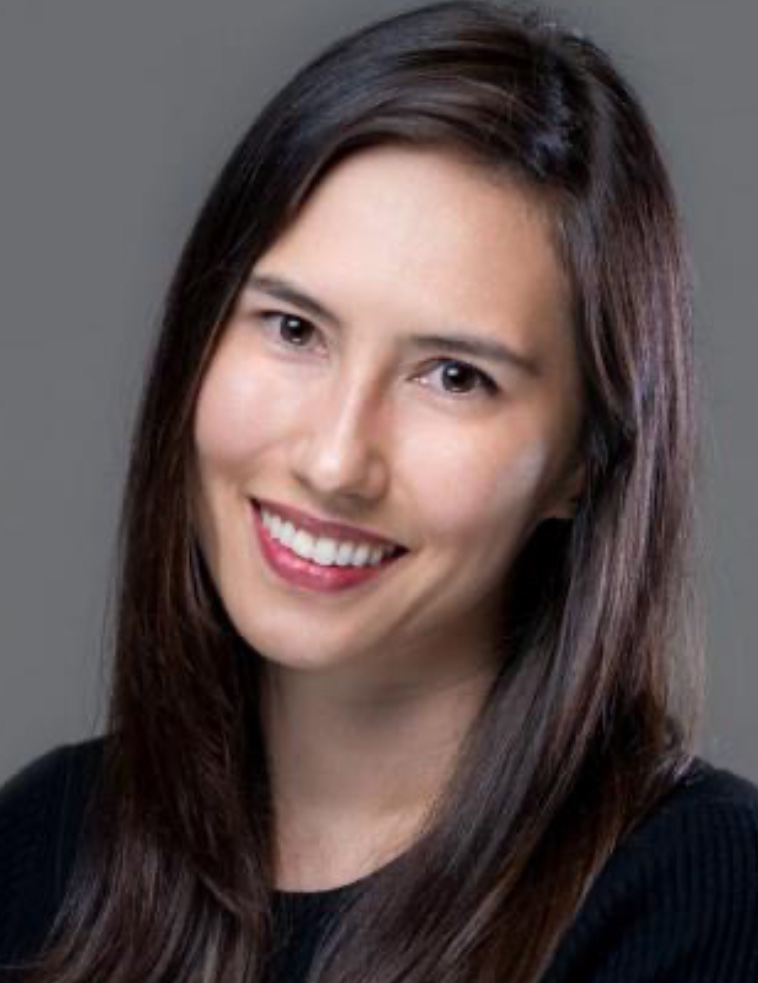
Kasmintan (Intan) Schrader, MBBS, FRCPC, PhD, DABMG
Assistant Professor, Department of Medical Genetics, The University of British Columbia, Program Medical Co-Director, Hereditary Cancer BC Cancer, Vancouver, BC, Canada
Dr. Kasmintan Schrader works as Program Medical Co-Director at the BC Cancer agency’s Provincial Hereditary Cancer Program. She received her medical degree from the University of Melbourne (2003), and completed her residency in Medical Genetics at the University of British Columbia, Canada. Dr Schrader undertook the Royal College of Physicians and Surgeons of Canada Clinician Investigator Program to undertake graduate studies in the Department of Pathology and Laboratory Medicine to investigate the association between germline mutations in CDH1 and lobular breast cancer. Her PhD work evolved to include use of next-generation sequencing technology to identify Mendelian disease genes. She was subsequently awarded a Canadian Institutes of Health and Research training award to pursue her interests in using next-generation sequencing (NGS) technology to determine novel susceptibility genes in familial colon cancer as a research fellow at MSKCC. Dr Schrader utilized NGS to co-discover PAX5 as a novel susceptibility gene to Pre-B cell acute lymphoblastic leukemia. She has also utilized NGS to analyze DNA of multiple primary tumors in parallel with the germline DNA and successfully determined the underlying cancer susceptibility in the patient. In addition to looking for novel susceptibility genes, in view of the rapid sequencing advances in oncology, Dr. Schrader’s research involves assessing the scope and impact of incidental findings identified in the course of next generation sequencing in the research and clinical setting.
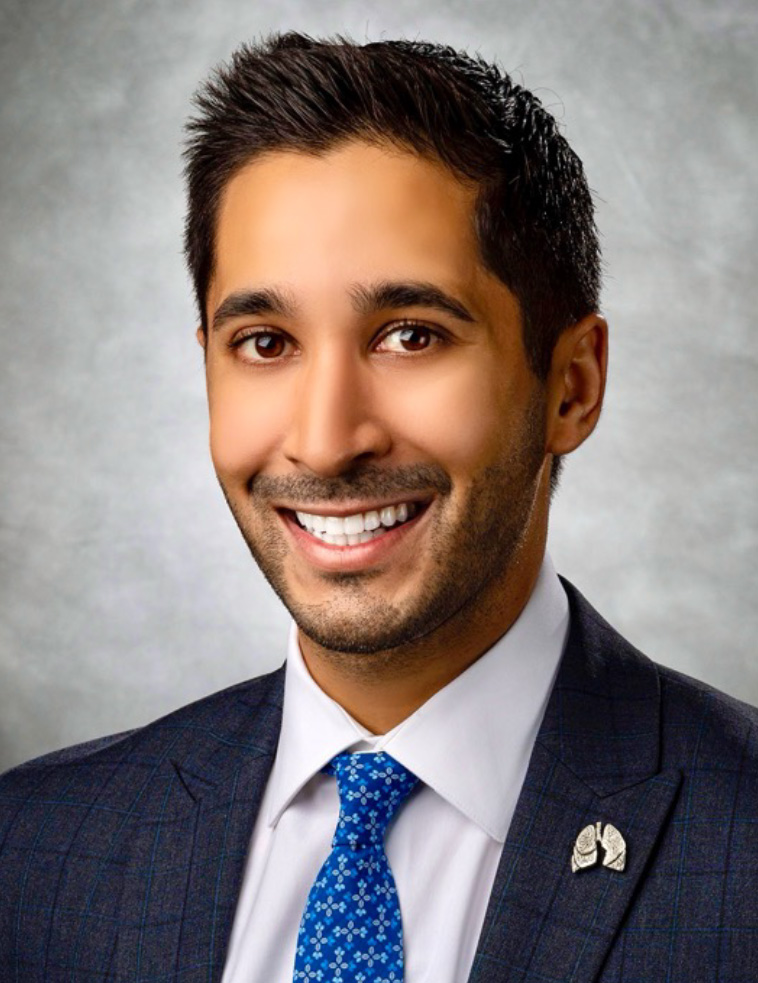
Eric Kumar Singhi, MD
Assistant Professor, General Oncology, Assistant Professor, Thoracic/Head and Neck Medical Oncology, The University of Texas MD Anderson Cancer Center, Houston, TX
Dr. Eric K. Singhi is an Assistant Professor and Thoracic Medical Oncologist at the University of Texas MD Anderson Cancer Center. He completed his Internal Medicine residency at Vanderbilt University and served as Chief Hematology/Oncology fellow at MD Anderson during his training. As faculty at MD Anderson, Dr. Singhi specializes in patient education research and young onset lung cancer research. He serves as the Patient Safety and Quality Officer for the Thoracic Medical Oncology Service Line, and as Co-Director of the Thoracic Medical Oncology rotation for the MD Anderson medical oncology fellowship program.
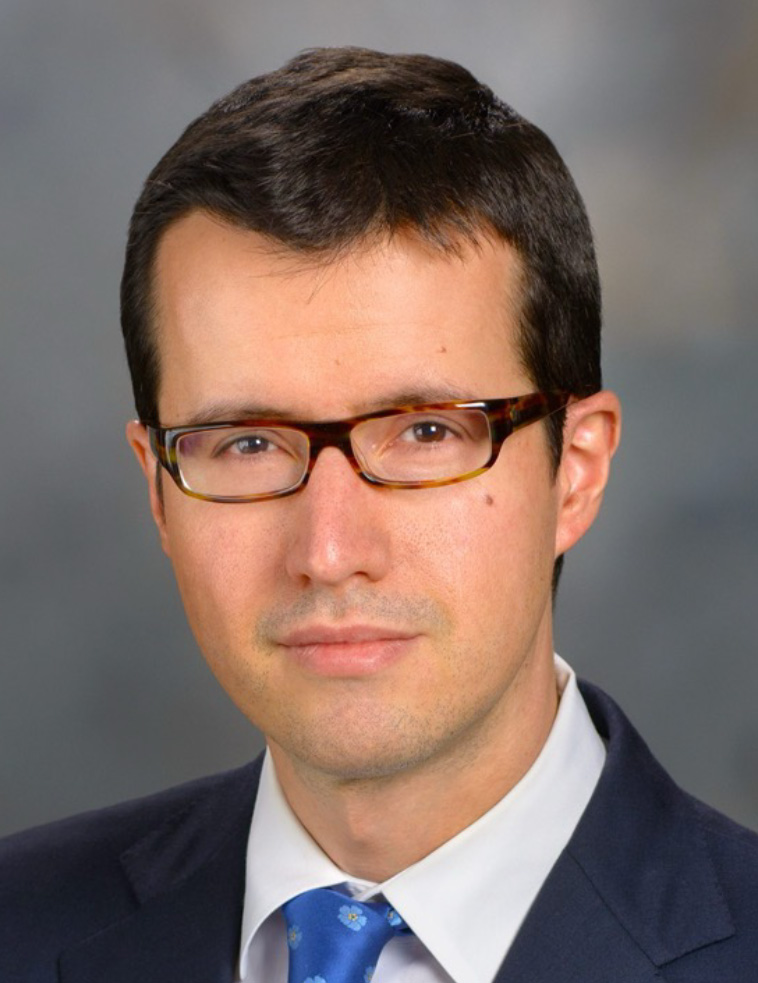
Ferdinandos Skoulidis, MD, PhD, MRCP
Associate Professor, Department of Thoracic/Head and Neck Medical Oncology, The University of Texas MD Anderson Cancer Center, Houston, TX
Dr. Ferdinanados Skoulidis is currently a Tenured Associate Professor (Physician Scientist) at the Department of Thoracic/Head and Neck Medical Oncology at the University of Texas MD Anderson Cancer Center. He obtained a Medical Degree from the Aristotle University of Thessaloniki, Greece in 2000 and a PhD from the University of Cambridge, UK in 2011. He completed general medicine residency and medical oncology fellowship training in Cambridge and London, UK. Dr Skoulidis’ laboratory is focused on (a) unraveling the molecular and clinical heterogeneity of KRAS-mutant non-small cell lung cancer (NSCLC) and developing novel therapeutic strategies to target KRAS-mutant lung tumors; (b) maximizing the therapeutic potential of direct KRAS inhibitors and (c) elucidating the impact of individual somatic genomic alterations on the NSCLC immune contexture and immunotherapy response, with the goal of developing novel precision oncogenotype-tailored immunotherapeutic strategies. Dr Skoulidis has received several awards for his research including a 2019 AACR NextGen Star award. His work has been published in high-impact scientific journals including The New England Journal of Medicine, Cancer Discovery, Cancer Cell, Nature Reviews Cancer and his research has attracted research funding from the NIH/NCI, the Cancer Prevention and Research Institute of Texas and the US Department of Defense.

Fangdi Sun, MD
Fellow, Hematology & Medical Oncology, Stanford University School of Medicine, Stanford, CA
Dr. Fangdi Sun is Hematology & Medical Oncology Fellow at Stanford University School of Medicine. She completed her undergraduate studies in Biological Engineering at the Massachusetts Institute of Technology, followed by her medical degree at Harvard Medical School. She then completed a residency and chief residency in Internal Medicine at the University of California, San Francisco as part of the PRIME clinical research pathway, working with Dr. Caroline McCoach to study clinical outcomes of novel tyrosine kinase inhibitors in oncogene-addicted non-small cell lung cancer (NSCLC). As a fellow at Stanford, she hopes to hone her interests in thoracic oncology as a clinical trial investigator, with a focus on mechanisms of resistance to targeted therapies in NSCLC.
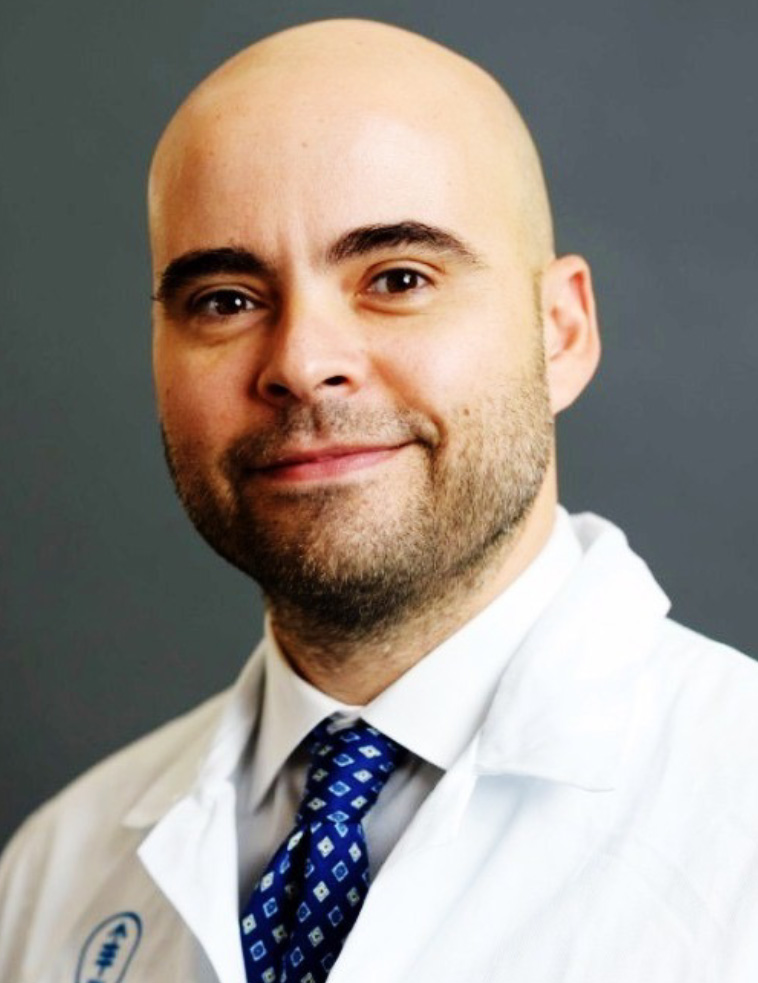
Salomon Tendler, MD, PhD
Advanced Medical Oncology Fellow & Research Associate, Memorial Sloan Kettering Cancer Center, New York, NY
Dr. Salomon Tendler, MD, PhD, is a medical oncologist and research fellow at Memorial Sloan Kettering Cancer Center (MSKCC) in New York City. He is affiliated with both the Jason Lewis Lab and the Charles Rudin Lab at MSKCC . Dr. Tendler earned his PhD in Oncology-Pathology from the Karolinska Institutet in 2020, where his doctoral research focused on the epidemiology of small-cell lung cancer (SCLC) and the analysis of clinical and tumor-specific prognostic biomarkers . He is currently licensed to practice medicine in New York State and is board certified in medical oncology . Dr. Tendler’s research interests center on thoracic oncology, particularly small-cell lung cancer and neuroendocrine tumors. His recent work includes a first-in-human imaging study using a zirconium-labeled anti-DLL3 antibody to detect high-grade neuroendocrine tumors of the lung and prostate, published in The Lancet Oncology in August 2024 . Additionally, he co-authored a commentary on the potential of tarlatamab, a DLL3-targeted therapy, for treating SCLC, published in the Journal of Clinical Oncology in June 2023 . Dr. Tendler’s contributions to oncology research, particularly in the development of novel imaging techniques and targeted therapies, underscore his commitment to advancing cancer diagnosis and treatment.
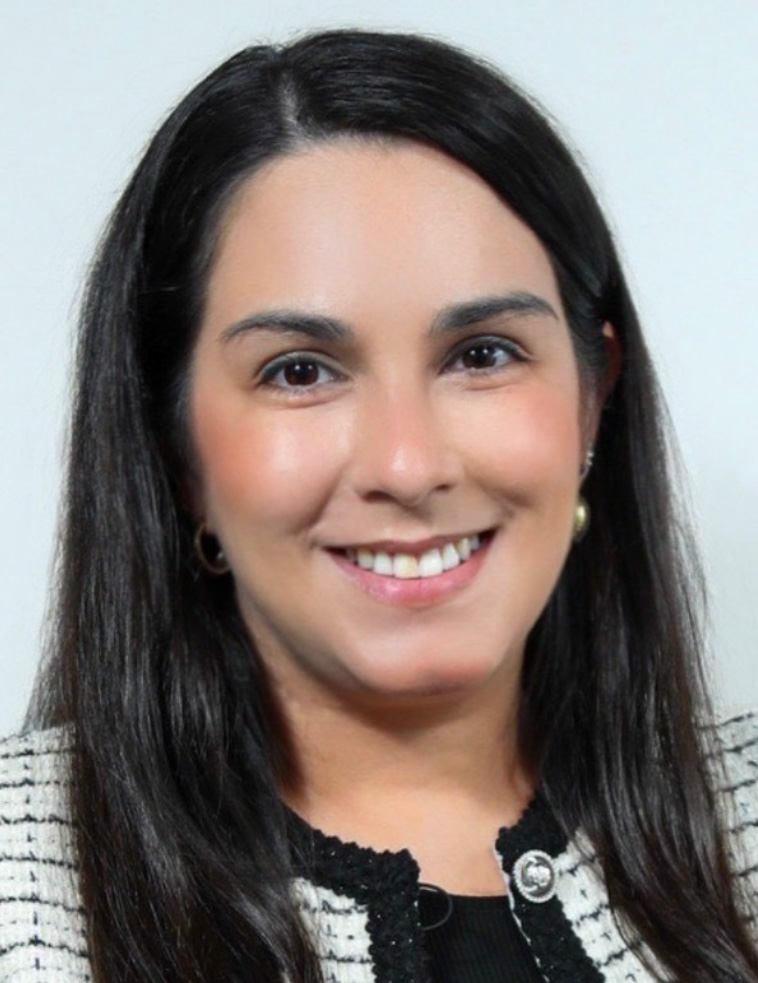
Ana I. Velázquez Mañana, MD, MSc, FASCO
Assistant Professor of Medicine | UCSF Division of Hematology/Oncology at ZSFG, Assistant Director of DEIA for Training | UCSF Helen Diller Family Comprehensive Cancer Center, John A. Watson Scholar, University of California, San Francisco, San Francisco, CA
Dr. Ana Velázquez Mañana, MD, MSc, is an Assistant Professor of Medicine in the UCSF Division of Hematology/Oncology at Zuckerberg San Francisco General and a thoracic oncologist at the UCSF Helen Diller Family Comprehensive Cancer Center. She also serves as Assistant Director of Diversity, Equity, Inclusion, and Accessibility for Trainees of the UCSF Helen Diller Family Comprehensive Cancer Center and co-chairs the UCSF Department of Medicine Fellowship Diversity Committee. She completed her MD at the University of Puerto Rico School of Medicine, and Internal Medicine residency at Mount Sinai Beth Israel. She joined UCSF in 2018 to complete her clinical fellowship in Medical Oncology. Dr. Velazquez’s research portfolio centers on the use of health services and cancer disparities research to decrease barriers to clinical trial participation, improve the quality of care delivered to underserved and racial minority patients with cancer, and evaluate the unmet social and supportive care needs of patients with lung cancer from vulnerable backgrounds. Her goals are to develop interventions that improve healthcare access and cancer care delivery for vulnerable populations. Dr. Velazquez’s research is supported by the American Association for Cancer Research, Conquer Cancer Foundation of ASCO, Stavros Niarchos Foundation, LUNGevity, National Institute on Aging, National Cancer Institute, and pilot funds from the Helen Diller Family Comprehensive Cancer Center.
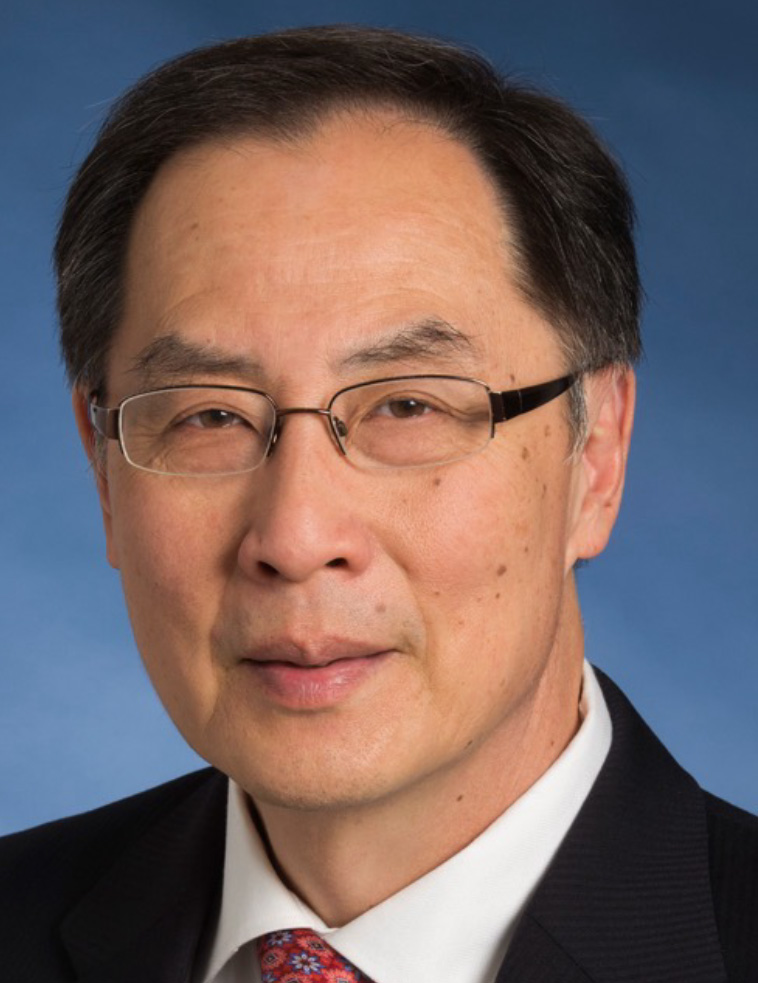
Ming Sound Tsao, MD, FRCPC, FRSC, FCAHS
Senior Scientist and Consultant, Thoracic Pathologist, University Health Network, Princess Margaret Cancer Centre, Professor of Laboratory Medicine and Pathobiology, Professor of Medical Biophysics, University of Toronto, Toronto, ON
Dr. Tsao is a Thoracic Pathologist and Senior Scientist at the Princess Margaret Cancer Centre in Toronto, Canada, Professor of Laboratory Medicine and Pathobiology and Professor of Medical Biophysics at the University of Toronto. He is the current Secretary and a member of the Board of Directors, member of the Staging and Prognostic Factor Committee, and member and past Chair of the Pathology Committee of the International Association for the Study of Lung Cancer (IASLC). He has published extensively in the pathology, prognostic and predictive biomarkers, and molecular pathobiology of lung cancer. Dr. Tsao was a member of the Standing Editorial Board for the 5th Edition of the WHO Classification on Tumours, and past Chair (2006-23) of the Canadian Cancer Trials Group (CCTG) Correlative Science and Tumor Biology Committee. He is globally known as a leader in molecular testing for lung cancer and has led several multi-center projects to standardize lung cancer biomarker assays in Canada. Dr. Tsao was a recipient of the Canadian Cancer Society O. Harold Warwick Award, the IASLC Mary Matthew Pathology and Translational Research Award, and the CCTG Dr. Joseph Pater Founder’s Award for Excellence in Clinical Trials Research. He is an elected Fellow of the Royal Society of Canada and of the Canadian Academy of Health Sciences.
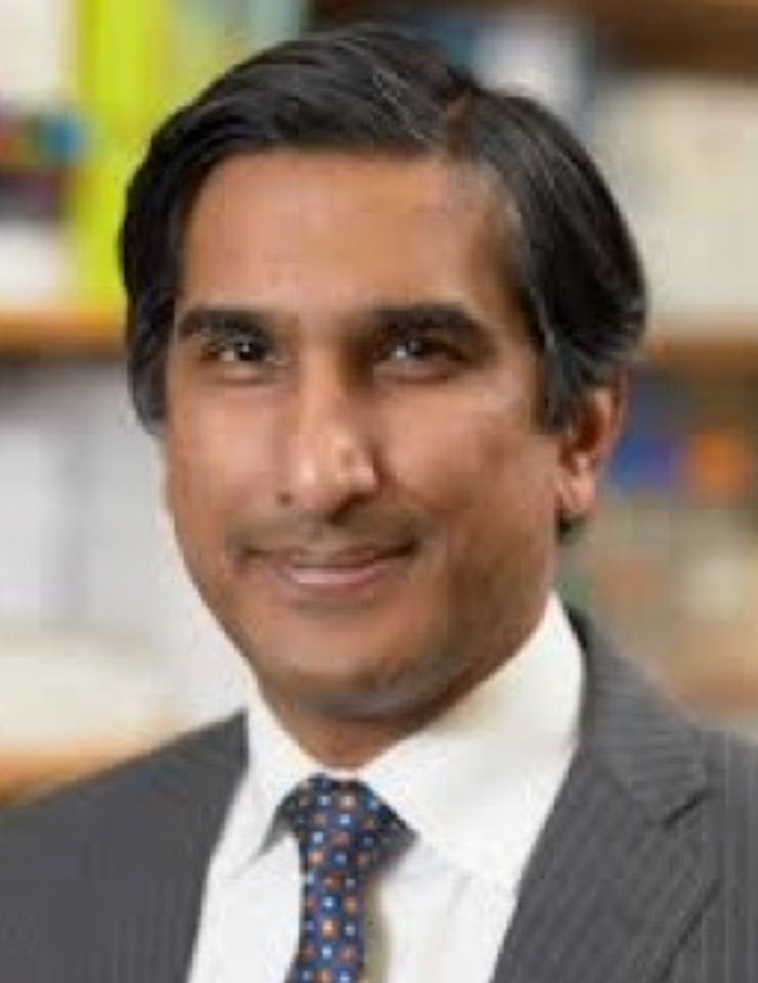
Rajwanth Veluswamy, MD
Associate Professor of Medicine, Perlmutter Cancer Center, NYU Langone Health,
New York, NY
Dr. Rajwanth Veluswamy is an Associate Professor of Medicine at Perlmutter Cancer Center – NYU Langone Health. He is a board-certified medical oncologist who specializes in the treatment of lung cancer and other thoracic malignancies. He earned his M.D. from the University of Szeged and a Masters of Science in Clinical Research at Mount Sinai. Following which, he completed residency in Internal Medicine at Methodist Dallas Medical Center, and a research internship at MD Anderson Cancer Center in Houston. He then, completed both a clinical fellowship in Hematology and Medical Oncology and a General Medicine research fellowship at the Icahn School of Medicine at Mount Sinai. Dr. Veluswamy’s research focuses on understanding the factors responsible for clinical outcomes in lung cancer patients, from patterns of care to differences in therapeutic drug efficacy. He has published extensively and presented his research at international meetings where he has received numerous merit awards. He received a prestigious ASCO Young Investigator Award in recognition and support of his research during fellowship. Dr. Veluswamy’s clinical interest is to provide personalized treatment that best fits each patient. He collaborates with a multidisciplinary team of experts and scientists that are highly active in the treatment and research of thoracic malignancies.
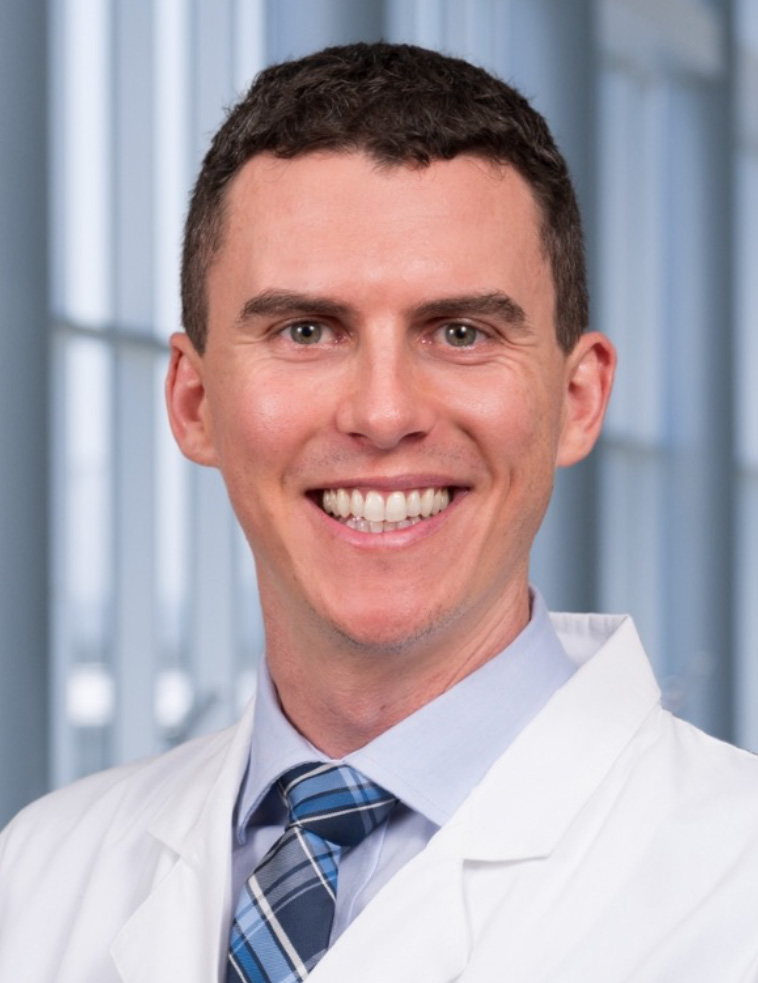
Mitchell von Itzstein, MD
Assistant Professor, Department of Internal Medicine, Division of Hematology and Oncology, UT Southwestern Medical Center, Dallas, TX
Mitchell von Itzstein, M.D., is an Assistant Professor in the Department of Internal Medicine’s Division of Hematology and Oncology at UT Southwestern Medical Center. He specializes in lung cancer, thoracic oncology, and cancer immunotherapy. Dr. von Itzstein earned his medical degree at Griffith University in Queensland, Australia. He completed both his residency in internal medicine and fellowship in medical oncology at UT Southwestern. Certified by the American Board of Internal Medicine in medical oncology and internal medicine, he joined the UT Southwestern faculty in 2024.Dr. von Itzstein is a member of the American Society of Clinical Oncology and the International Association for the Study of Lung Cancer, and he serves as Review Editor for Frontiers in Immunology and Frontiers in Oncology.He has delivered invited lectures and published peer-reviewed academic articles, reviews, editorials, and case reports related to his areas of expertise. He also has intellectual property related to his studies on genetic predictors of immune-related adverse events. He serves as site principal investigator on several studies.
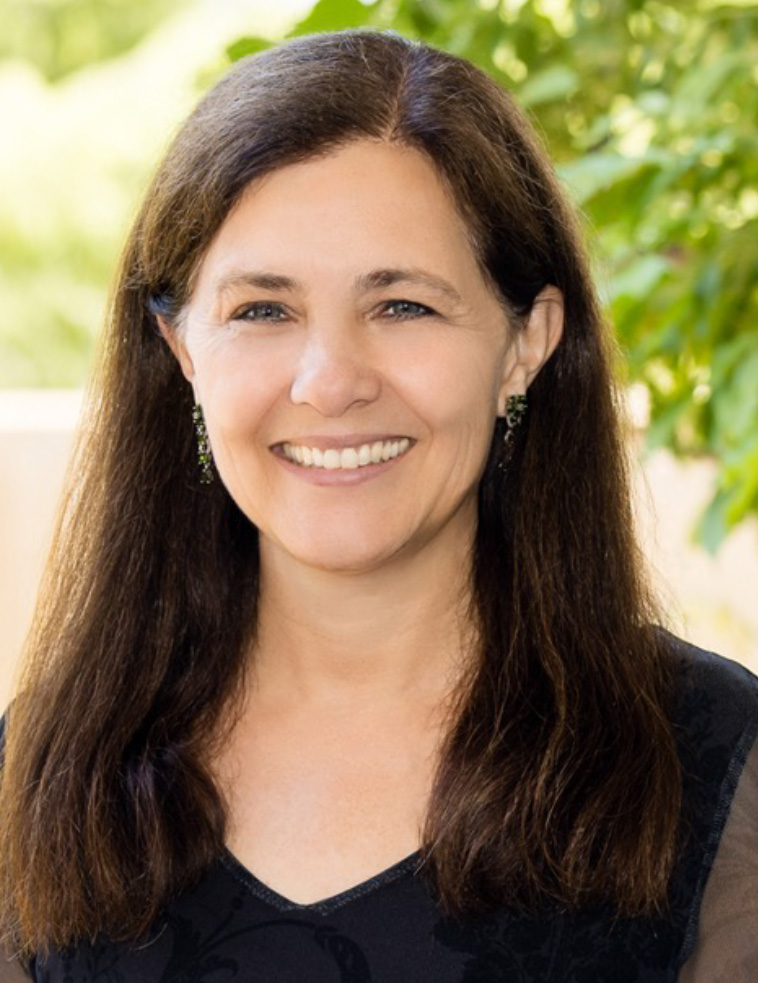
Heather Wakelee, MD, FASCO
Winston Chen and Phyllis Huang, Professor, Professor of Medicine/Chief-Division of Oncology, Stanford University School of Medicine, Deputy Director, Stanford Cancer Institute, Past President, International Association for the Study of Lung Cancer (IASLC), Stanford, CA
Dr. Heather Wakelee is a Professor of Medicine and Chief of the Division of Oncology at Stanford University, and Deputy Director of the Stanford Cancer Institute. Dr. Wakelee serves as the Past President of the International Association for the Study of Lung Cancer (IASLC) and she is a Fellow of the American Society of Clinical Oncology (FASCO). She is a graduate of Princeton University and Johns Hopkins University School of Medicine and completed her post-graduate training at Stanford University. As an experienced lung cancer investigator, Dr. Wakelee has authored or co-authored over 300 medical articles on lung cancer and thymic malignancies and is involved in dozens of clinical trials involving adjuvant therapy, immunotherapy, and anti-angiogenesis agents. Her research focuses on many specific lung cancer subtypes defined by specific mutations in EGFR, ALK, ROS1, RET, BRAF and others. Her translational efforts to date have involved collaborations with colleagues in medical oncology, thoracic radiation oncology, thoracic surgery, radiology, pulmonary medicine, and population sciences.
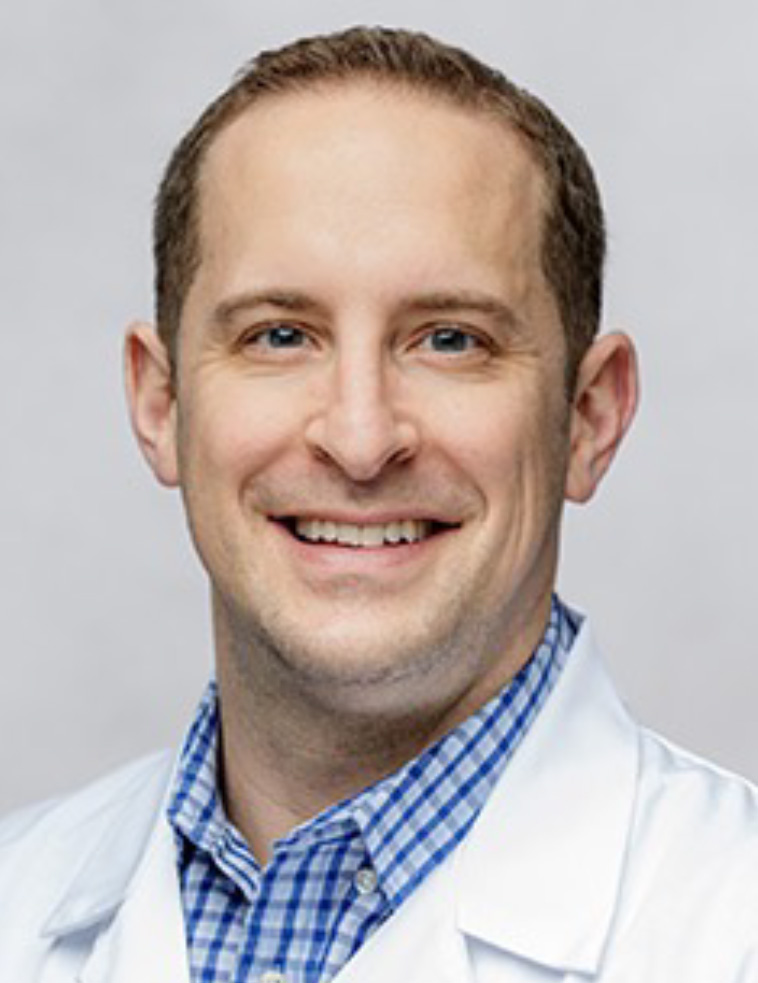
Frank Weinberg, MD, PhD
Assistant Professor, Department of Medicine, Division of Hematology and Oncology, University of Illinois College of Medicine, Chicago, IL
Frank Weinberg, MD, PhD, is a physician-researcher, Assistant Professor in the Division of Hematology and Oncology at the University of Illinois College of Medicine Chicago and a medical oncologist at UI Health focused on providing the best care for patients with lung cancer. He graduated from University of Illinois and completed his residency and fellowship from University of Michigan. In his research, Dr. Weinberg focuses on improving outcomes for patients undergoing immunotherapy, with a particular interest in advancing the understanding of cancer biology and metabolism. As a member of the University of Illinois Cancer Center, his contributions to these fields have led to important discoveries that inform clinical practice. Under his leadership, UI Health’s lung cancer immunotherapy trials are establishing new benchmarks in cancer treatment, further advancing the standard of care in this area.
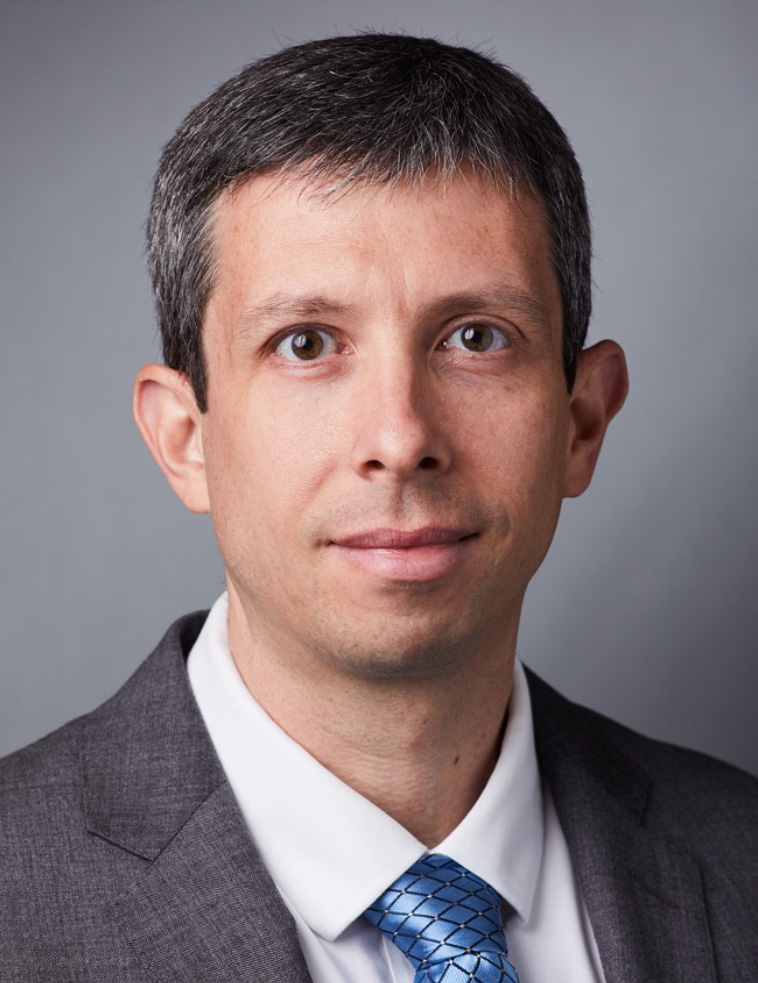
Frederick Wilson, MD, PhD
Assistant Professor of Medicine, Yale School of Medicine, Yale University, New Haven, CT
Dr. Frederick Wilson, MD, PhD, is an Assistant Professor of Medicine (Medical Oncology) at Yale School of Medicine. He is affiliated with the Smilow Cancer Hospital Thoracic Oncology Program and the Yale Cancer Center. Dr. Wilson earned his PhD from Yale University in 2002 and his MD from Harvard Medical School in 2007. He completed his internship and residency at Brigham and Women’s Hospital, followed by a fellowship in medical oncology at the Dana-Farber Cancer Institute and Massachusetts General Hospital. Additionally, he undertook a research fellowship at Dana-Farber Cancer Institute and the Broad Institute of Harvard and MIT. Dr. Wilson’s research focuses on identifying and characterizing genetic vulnerabilities in cancer, as well as understanding resistance mechanisms to targeted therapies. His recent work includes the identification of RASGRF1 gene fusions as oncogenic drivers in non-small cell lung cancer, pancreatic ductal adenocarcinoma, and sarcoma, demonstrating sensitivity to MAP kinase pathway inhibition. He has also investigated PRMT5 pathway inhibition as a therapeutic strategy in cancers with MTAP loss, providing a rationale for the development of PRMT5 and MAT2A inhibitors. Furthermore, Dr. Wilson has explored resistance to targeted therapies in lung cancer, identifying novel genetic drivers of resistance to ALK inhibitors in ALK-dependent lung cancer models. His work aims to inform the development of treatment paradigms to delay or overcome resistance to targeted therapies in patients with advanced lung cancers.
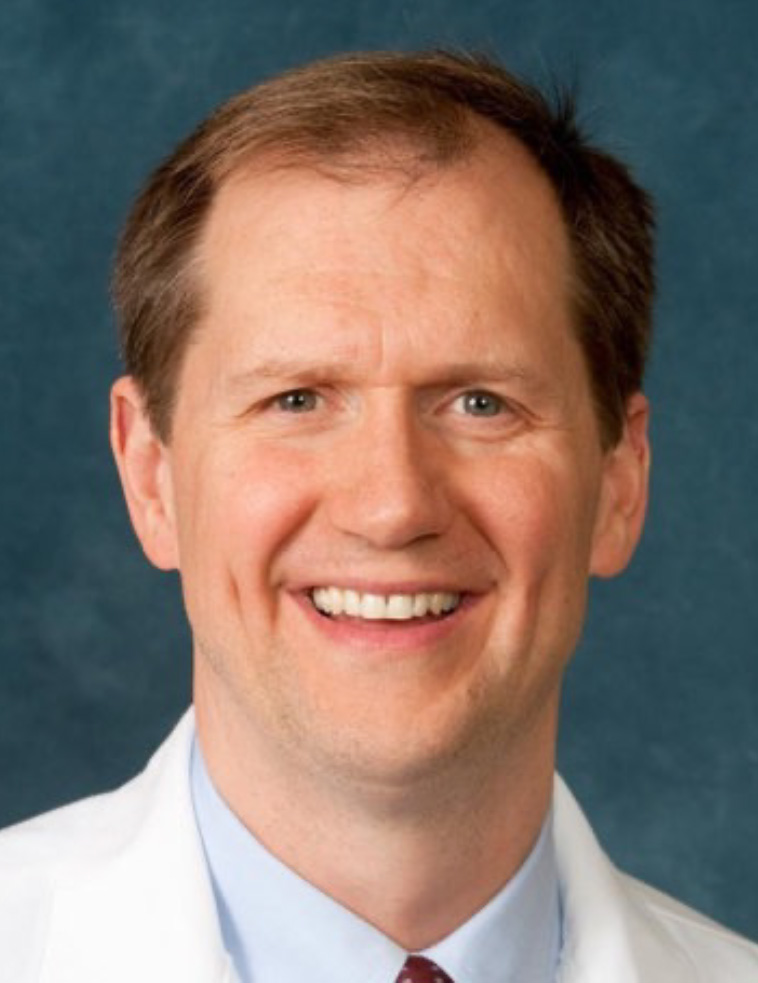
Francis Paul Worden, MD
Clinical Professor, Endocrine Oncology Clinic, Roger Cancer Center, University of Michigan Health, Ann Arbor, MI
Dr Frank Worden is a Clinical Professor of Medicine at the University of Michigan Rogel Cancer Center. Dr Worden earned a degree in pharmacy and pharmaceutical sciences from Purdue University and is a graduate from the Indiana University School of Medicine. He then completed a residency in Medicine and Pediatrics at the Detroit Medical Center. Following residency, Dr Worden completed a fellowship in hematology and oncology at the University of Michigan and joined the faculty in 2000. Dr Worden is the director of the Michigan Medicine Head and Neck Clinical Research Team and lead endocrine oncologist for the Michigan Medicine Endocrine Oncology Program. He is the former fellowship program director for hematology/oncology at Michigan Medicine. In 2019, Dr Worden was named the Nancy Wigginton Endowed Chair of Thyroid Cancer Research. His clinical interests include organ preservation strategies for locally advanced, HPV-related head and neck cancers and clinical trials research for thyroid cancers.
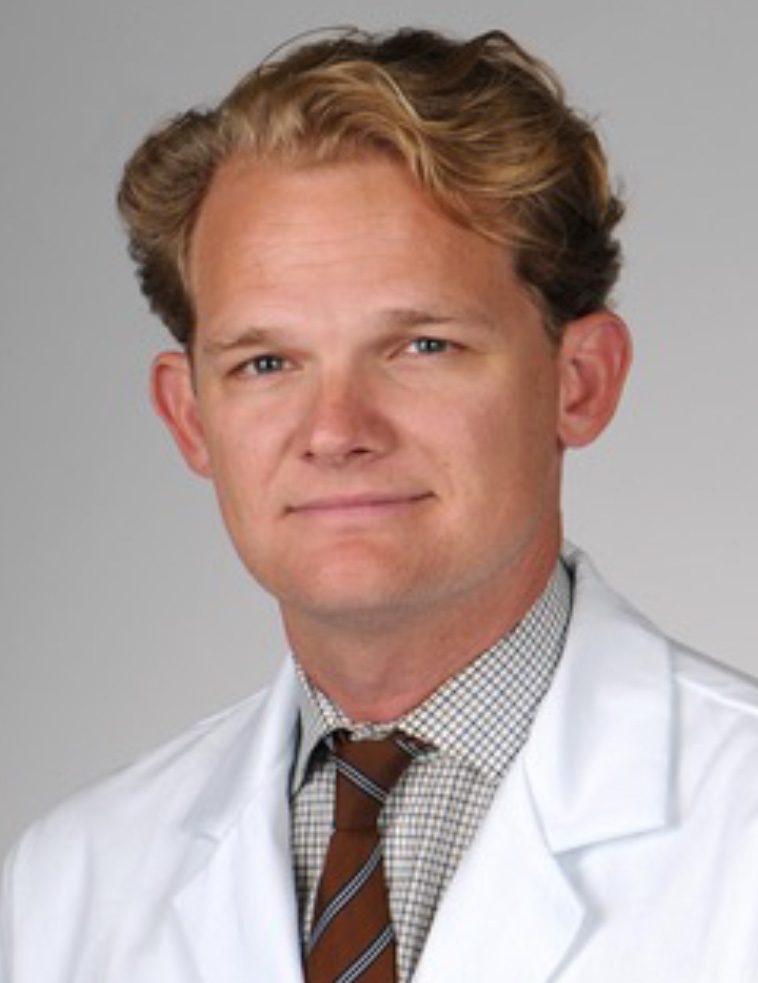
John Wrangle, MD, MPH
Associate Professor, MUSC Hollings Cancer Center, Medical University of South Carolina,
Charleston, SC
Dr. John Wrangle is a thoracic medical oncologist who specializes in treating non-small cell and small cell lung cancer as well as other thoracic malignancies at the Medical University of South Carolina (MUSC). His medical degree was awarded by Tulane University School of Medicine. He completed a residency in internal medicine at Emory University School of Medicine, followed by fellowship training at Johns Hopkins Hospital. Dr. Wrangle is dedicated to bringing novel combination immunotherapy treatments to patient care and has developed precision medicine protocols designed to create additional options for patients so they can avoid poorly tolerated, low-efficacy chemotherapy treatment. Dr. Wrangle is actively involved in clinical trials and research examining the use of immunotherapy drugs in the treatment of lung cancer and other thoracic malignancies.
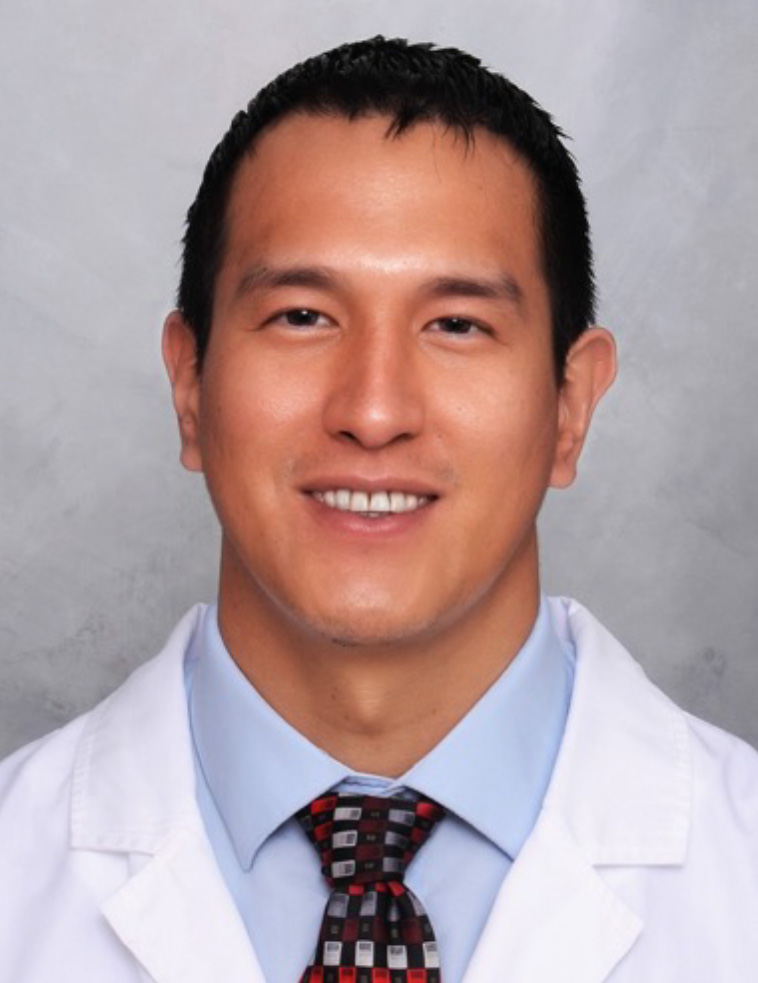
Evan Wu, MD, PhD
Director of Thoracic Oncology, Hawaii Pacific Health, Assistant Professor, Translational and Clinical Research Program, University of Hawaii Cancer Center, Hawaii, HI
Dr. Evan Wu earned his Medical Degree from the University of Miami and Ph.D. in Biostatistics from Johns Hopkins University. Dr. Wu attended Johns Hopkins School of Medicine, Division of Hematology and Oncology, where he was fellowship trained in medical oncology. Dr. Wu is a board-certified medical oncologist and clinical researcher focusing on thoracic cancers, including lung cancer and mesothelioma. Dr. Wu previously worked as a Medical Director in early oncology at AstraZeneca, where he led the development of targeted therapies for lung cancer.
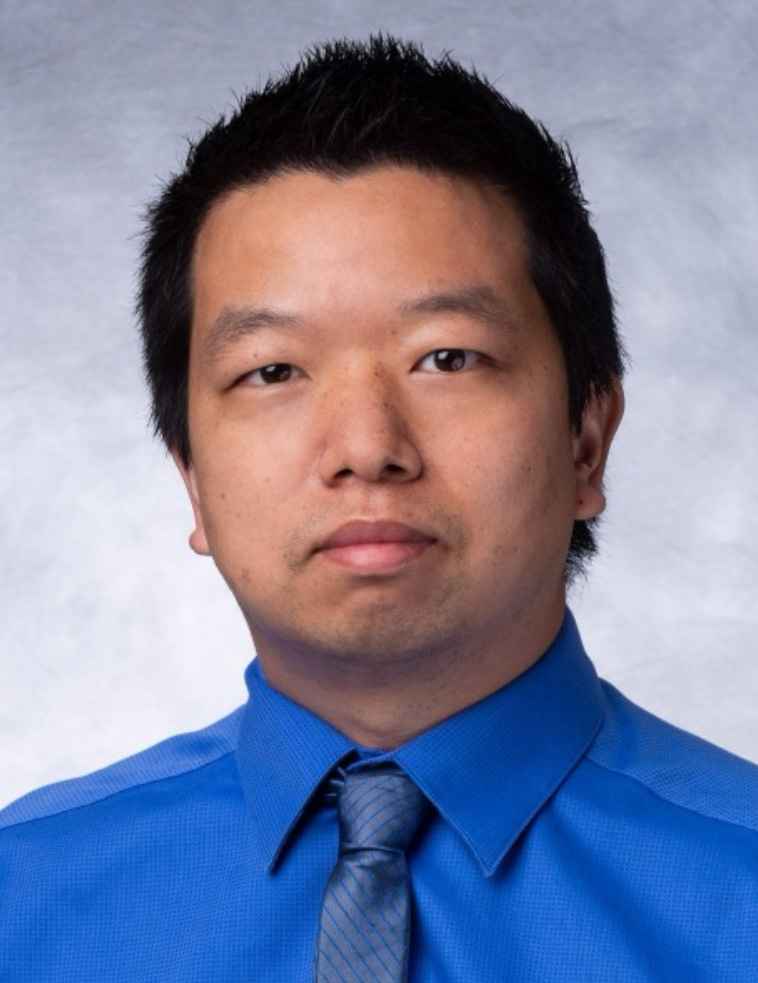
Jia Wu
Associate Professor, Department of Thoracic-Head & Neck Medical Oncology, Division of Diagnostic Imaging, Associate Professor, Department of Imaging Physics, The University of Texas MD Anderson Cancer Center, Houston, TX
Dr. Wu is an NIH-funded Principal Investigator and an Associate Professor in the Department of Imaging Physics and in the Department of Thoracic/Head & Neck Medical Oncology at the University of Texas MD Anderson Cancer Center. He is a trained computational scientist and obtained a Ph.D. in Bioengineering and Civil Engineering from the University of Pittsburgh. He was a Postdoctoral Research Fellow at the University of Pennsylvania and an instructor at Stanford University. His Laboratory is focused on the development and application of innovative computational and analytical approaches to improve the diagnosis, treatment, early detection and prevention of cancer.
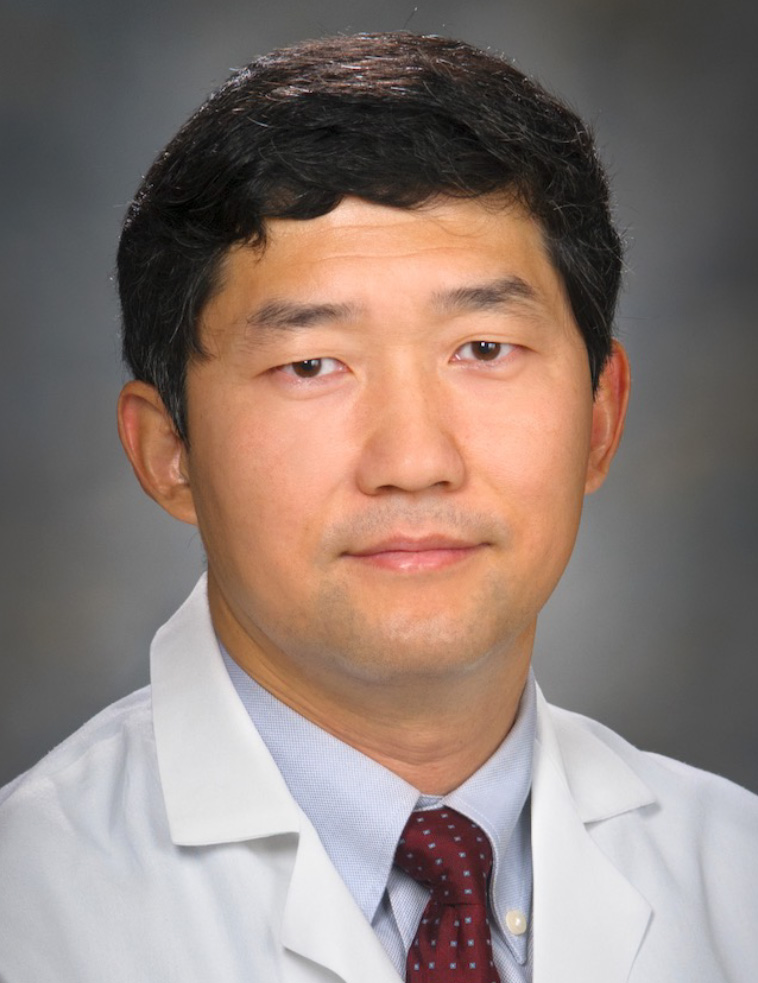
Jianjun Zhang, MD, PhD
Professor, Department of Thoracic/Head and Neck Medical Oncology, Professor, Department of Genomic Medicine Division of Cancer Medicine, The University of Texas MD Anderson Cancer Center, Houston, TX
Jianjun Zhang is Professor of Thoracic/Head and Neck Medical Oncology at MD Anderson Cancer Center. He serves as the Chair of Lung Moon Shot GEMINI database, the Director of Lung Cancer Interception Program and Director of Lung Cancer Genomics Program. He is a physician scientist with research focusing on elucidating the impact of cancer molecular features on host anti-tumor immune surveillance during cancer evolution with or without anti- tumor therapy and the molecular mechanisms underlying the transformation of premalignancy into invasive lung cancer. His group has made critical contributions to understand the molecular evolution during early lung carcinogenesis. His group has led a series of studies that demonstrated progressive genomic/epigenomic alterations from normal lung cells to lung premalignancies, preinvasive lung cancers and invasive lung cancers accompanied by a gradually less effective and more intensively regulated immune response; driver mutations, chromosomal copy number aberrations (CNAs) and aberrant DNA methylation may collectively impinge host immune responses and facilitate immune evasion, promoting the outgrowth of fit subclones in preneoplasia into dominant clones in invasive lung cancer; complex molecular heterogeneity is associated with impaired T cell response and inferior survival. He published >200 peer-reviewed papers in high-impact journals including Nature, Science, Cell, Lancet Oncology, Journal of Clinical Oncology, etc. His studies have led to the development of two unique clinical trials in a completely novel clinical research field: targeting tumor immune microenvironment for lung cancer prevention: IMPRINT-Lung and Can-Prevent-Lung.